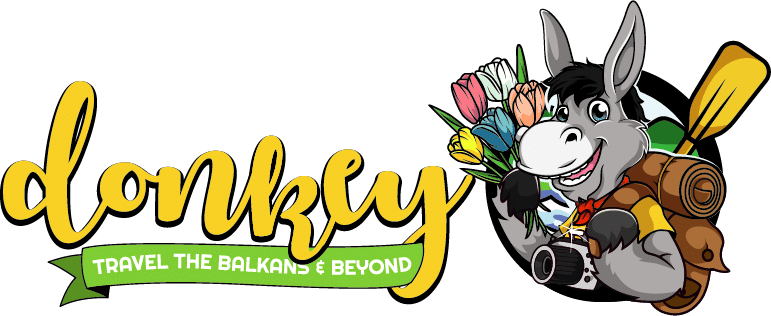
- Living In Croatia
- Croatian Recipes
- Balkan Recipes

Home > Medical Tourism In Istanbul- What You Need To Know

Medical Tourism In Istanbul- What You Need To Know
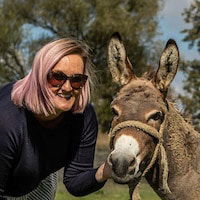
Written by our local expert SJ
Sarah-Jane has lived in Croatia for 10+ years. SJ, as she is known, has been traveling the Balkans & beyond since 2000. She now shares her passion for traveling with her husband & kids.
Thinking of going to Istanbul, Turkey, for some work to be done? Medical tourism in Istanbul is a booming new industry; here is what you need to know.
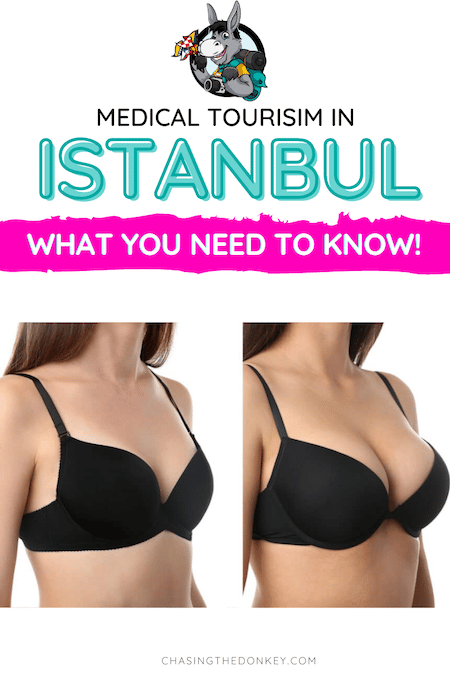
Türkiye is one of the top 10 countries for medical tourism these days, and the fact that the prices are much lower than the equivalents you’d find in the EU, USA, and UK means that more and more people are choosing to fly to Istanbul and have their treatments.
Izmir is another popular city in Turkey for medical procedures, but Istanbul is, without a doubt, the top destination. Of course, that also means you can pair your procedure with a little sightseeing once you’ve recuperated.
With lower prices, high quality of treatment and care, and packages available that combine flights, transfers, and hotels with the treatment, it’s no wonder more and more people are choosing Türkiye for their medical needs.
While prices depend upon the treatment and any anomalies, you can usually expect to pay between 50-70% less than what you would pay in the EU. That’s a huge saving.
Skip Ahead To My Advice Here!
What Are The Most Popular Procedures?
There are a huge range of medical procedures on offer for patients who travel to Turkey but the most common include:
- Botox and fillers
- Hair transplants
- Dental work
- Rhinoplasty (nose job)
- Breast surgery
- Liposuction and weight loss surgery
Of course, you should always do careful research before you choose a clinic and before you decide to have any procedure done. Check in with your doctor at home and talk to them about the procedure and whether it’s a good choice for you.
You should also remember to take copies of your medical records with you so that the doctors in Türkiye and check over things before agreeing to do your desired surgery.
You should expect to have a consultation before the surgery, and there is no guarantee that your surgery will go ahead until you’ve had this consultation and the doctor has checked everything out. If they agree, you can expect to have your procedure done within days.
You only have to Google ‘medical tourism in Turkey’, and you’ll see countless entries, but remember, some are better than others. This is your health, so you need to make sure that you’re attending a clinic that is top-class and offers a high level of service. Don’t always go for the lowest price – quality is always what you should be looking for.
To help you out, let’s check out some of the most popular procedures in Türkiye and a few recommendations of places to contact.
Brands We Use And Trust
Hair transplants.
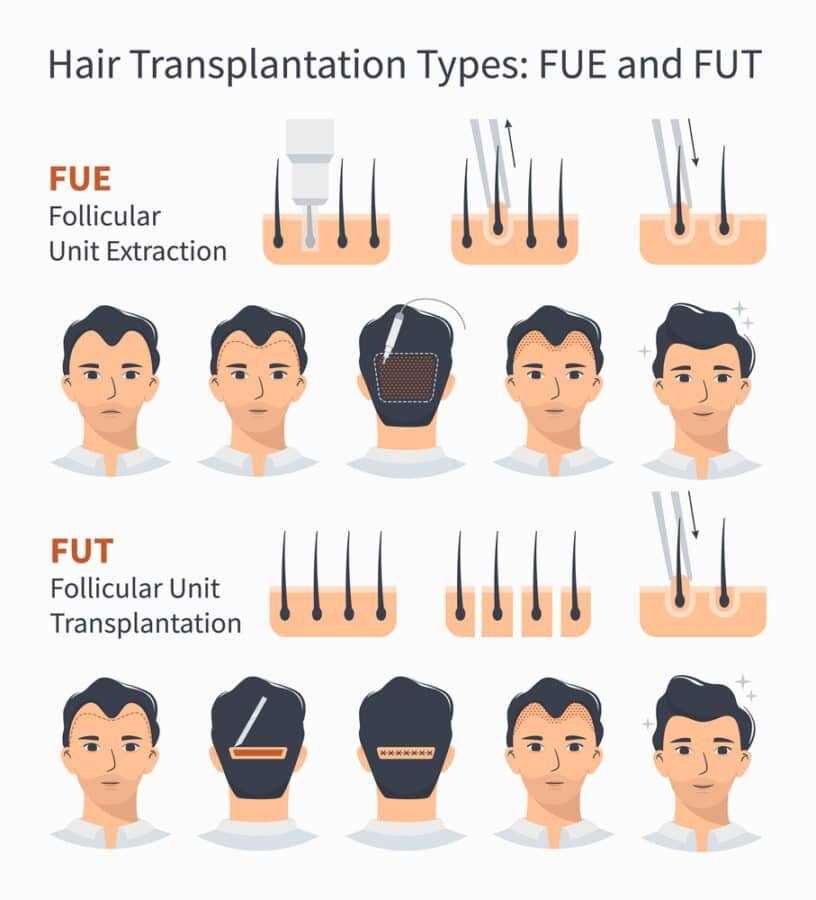
The sheer number of men you see walking around Taksim with the tell-tale band around their head to say they’ve had a hair transplant that day or the day before is astounding. That tells you a lot about how popular this procedure is. Turkey is also among the top three countries in the world for this procedure. With low prices, it’s no wonder.
You can expect to pay somewhere in between $1500 – $3000 for a procedure, but that will vary depending upon your personal circumstances. You can also book pages that include accommodation and transfers, etc.
- Sapphire Hair Clinic in Sisli
- Taksim Acibadem Hospital in Taksim (Dr Karaaltin Hair Istanbul)
- Hermest Hair Transplant Clinic Istanbul in Uskudar
Rhinoplasty (Nose Job)
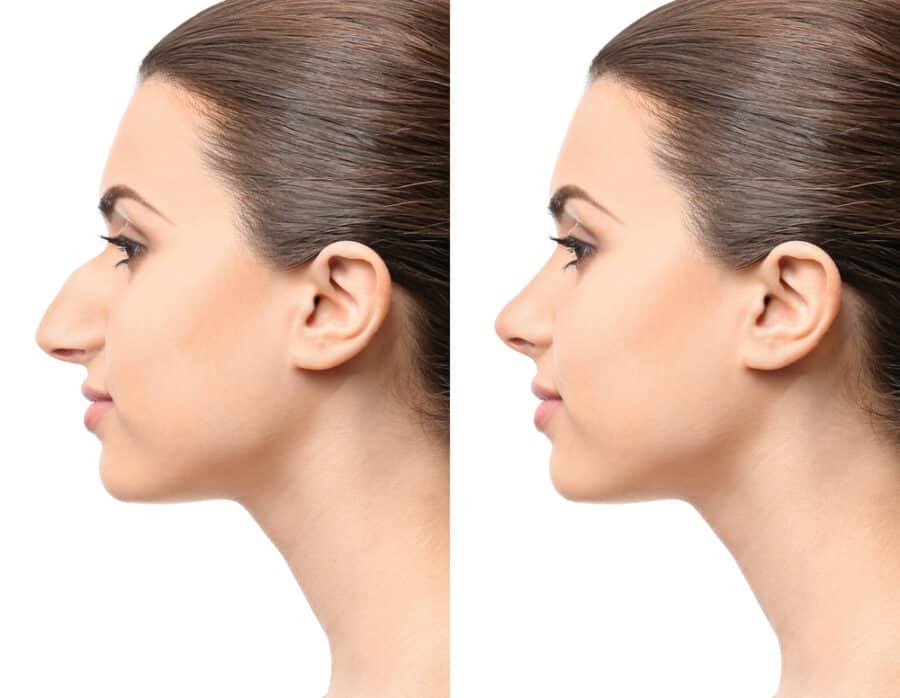
Whether you want to change the shape of your nose for aesthetic reasons or you have problems breathing, nose jobs are very popular in Istanbul. This is a procedure which is rising in popularity year upon year and after a detailed consultation, your procedure will be carried out, with extensive after-care.
- Dr Salih Onur Basat at ClinicPlast Istanbul in Nisantasi
- Dr Mehmet Emre Dinc in Sisli
- Dr Ayse Sezim Safak in Pendik
Breast Surgery
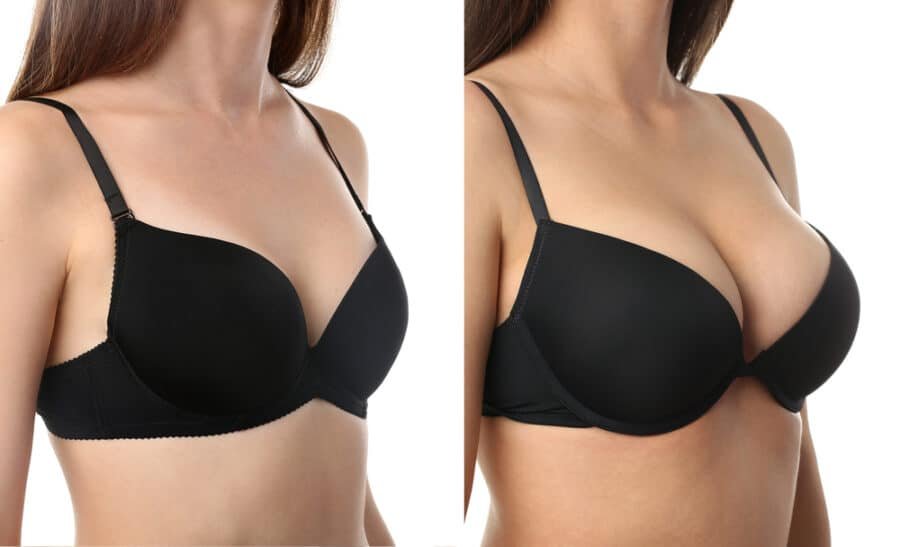
Breast augmentation, lifts and reductions are much lower cost in Türkiye than in most countries the world over. Many women attend for a consultation and explain their needs to their surgeon and with detailed aftercare available, it’s a very popular option.
- ClinicPlast in Nisantasi
- Dr Asu Deniz Burhanoglu in Etiler
- M.D. Huseyin Kandulu at the Private Acibadem Hospital
Laser Liposuction, Obesity & Weight Loss Treatment
Laser liposuction is extremely popular in Turkey and it’s considerably cheaper than you will find in EU countries, the UK and USA. Due to the fact that obesity is on the rise worldwide, weight loss treatment is regularly requested and many people choose to travel to Türkiye for their procedure.
- Dr Ceylon Aydogan in Maltese
- Dr Firat Tutal in Sisli
- Istanbul Bariatric Center in Sisli
Dental Treatments
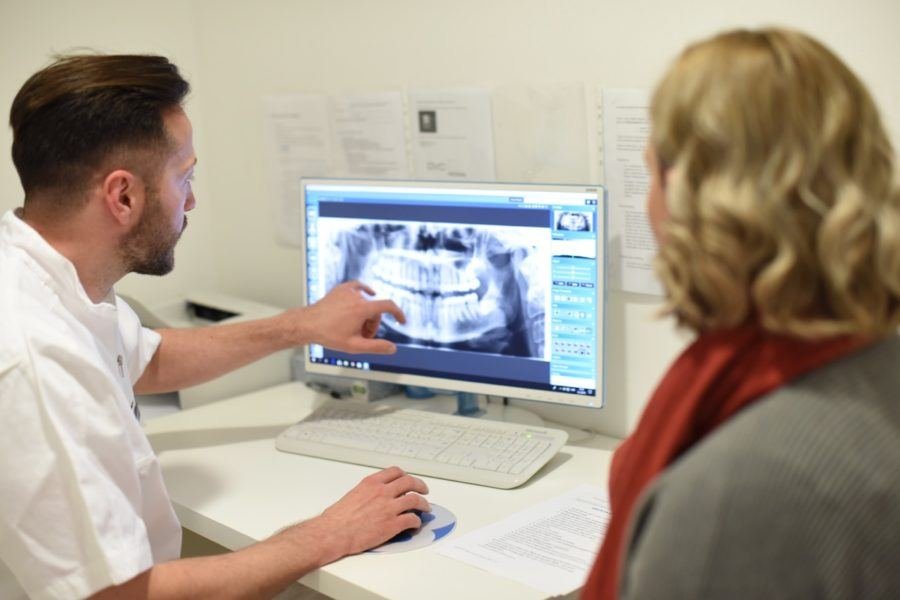
One of the most popular reasons that people travel to Istanbul for medical work is on their teeth. You’ve no doubt heard of the fact that dental work, including implants and veneers, is much cheaper in Turkey than anywhere else. Depending upon the procedure and how much extra work may be required, you can expect to pay around $500 – $750, which is a huge 70% cheaper than the EU, USA, and UK.
There are countless clinics offering teeth whitening and other procedures and it’s important to do your research beforehand. However, these are three of the best and ones you might like to check out:
- Dentfix Istanbul Dental Clinic, Sisli
- Eternes Dental Clinic Istanbul, Sisli
- Esthedent Dental Clinic, Sisli
What To Watch Out For
Again, always be very careful when choosing which clinic to attend. The clinics we’ve mentioned are all very highly regarded, but simply Googling your desired treatment isn’t going to give you the best results. There are many scams out there and you’ll find people attempting to show you lower prices than they will actually charge you in the end.
Basically, if you see a price that’s too good to be true, that’s because it is. However, do bear in mind that prices for medical treatments are lower in Türkiye compared to other countries. Simply do your research and ask as many questions as you need to, before making a decision. If the clinic is a reputable and professional one, they will have no problems answering as many questions as you want to ask and they will reassure you of their quality.
There are some fantastic clinics in Istanbul. It’s really not a surprise that it’s one of the best places in the world for medical tourism. So, if you’ve been thinking about having a procedure for a while and you’re sure that it’s the right thing for you, maybe Istanbul could be the destination for you .
- Best Hotels In Cappadocia Turkey
- Best Places To Visit In Turkey For Every Type Of Traveler
- Incredible Black Sea Resorts
- Hotels In Cappadocia Turkey
- What To Pack For Turkey
- 5 Reasons To Visit Gallipoli, Turkey
- How To Get From Istanbul To Cappadocia
- Cappadocia Hot Air Ballon Ride Tips
- Greek Island Day Trip From Southern Turkey
- What To Know When Traveling To Turkey During COVID-19
- Turkish Hammam Tips To Know Before You Go
- Tips For Traveling Turkey On A Budget
Comments (2)
Looking for treatment (meds) for high blood pressure, I’ve just been diagnosed with hypertension. Also would like meds for high cholesterol – can you recommend a dr/hospital? 13 Oct – 21 Oct visit.
For this, you’d need to go to the ER.
Leave a Reply Cancel reply
Your email address will not be published. Required fields are marked *
Save my name, email, and website in this browser for the next time I comment.
This site uses Akismet to reduce spam. Learn how your comment data is processed .
Move This Adventure To Your Inbox & Get An Instant Freebie
Subscribe To Unlock Your FREE Customizable Travel Packing List & All Our Best Tips!
Unlock Your FREE Customizable Travel Packing List!
Subscribe Now For Instant Access To Stress-Free Packing

Destinations

As Turkey’s largest city, Istanbul constitutes the center of Turkey’s economic, cultural, intellectual, and social life. With a spectacular geographic location on the Bosporus Straight, Istanbul is the only city in the world that is situated on top of two continents, Europe and Asia. Istanbul has been at the cultural crossroads of East and West and uniquely surrounded by thousands of years of historical and cultural heritage. Istanbul has served as the capital to four of the world’s greatest empires including the Roman Empire, the Byzantine Empire, the Latin Empire and the Ottoman Empire. In 2010, Istanbul was named a European Capital of Culture, and has gone through dramatic increases in visitor arrivals with over 11 million foreign visitors in 2012, making Istanbul the world’s fifth most popular tourism destination. Istanbul also serves as Turkey’s biggest medical establishment, with the greatest number of hospitals, education and research institutions, the highest number of JCI-accredited medical facilities and largest tourist arrivals for medical treatment in the country. Health Tourism in Istanbul, Istanbul remains Turkey’s economic and cultural center as well as the place continuously developing and leading Turkey’s innovations in the healthcare industry. Investments in the health care system have provided Istanbul with the medical infrastructure necessary to accommodate international patients, mostly stemming from the private health sector. Foreign patients are drawn to Istanbul, Turkey’s main medical hub, since it holds the highest concentration of JCI-accredited health care facilities, wide variety of high quality medical treatments and best availability for medical professionals to provide sophisticated treatments to international visitors. Istanbul Health Tourism Service Areas Are:
- Orthopedics
- Brain Surgery
- Radiotherapy
- Plastic Surgery
- Transplantation (bone-marrow transplantation, kidney transplantation, liver transplantation)
- Hair Transplantation
- Eye Treatment
- Dental Treatment
- Weight Loss
- Physical Treatment
- Dialysis for tourists
Why Istanbul for Medical Travel
- Geographical location
- Easy access via direct flights from Turkish Airlines
- Scientific and medical infrastructure
- Tourist infrastructure
- The welcoming and hospitable culture
- The value for money of the care
- Visa facilities
- Shopping (More than 120 shopping centers)
- One of the most visited destination in the world
- Of course, you always benefit from on-site assistance of our multilingual speaking medical team 24 hours a day.
Other Destinations
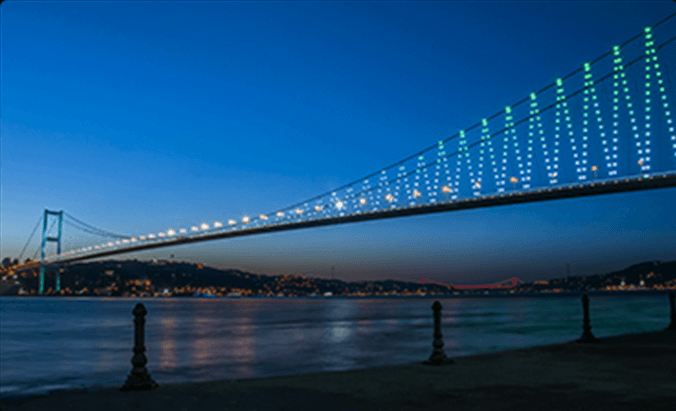

- Bosphorus Cruises
- Princes’ Islands
- Places of Worship
- Dinner Cruises
- Whirling Dervish Show
- Turkish Bath
- Audio Guides
- Best City Pass
- Istanbul Airport
- Sabiha Gökçen Airport
- Nightlife Guide
- Public Transport
- Best Restaurants
- Shopping Guide
- Taksim Area
- 5-Star Hotels
- With Bosphorus View
- For Honeymoon
- 4-Star Hotels
- Convention and Meeting
- For Weddings
- 3-Star Hotels
- Airport Hotels
- Port Hotels
- Group Hotels
- M.I.C.E. Services
- Wedding Offers
- Plastic & Aesthetic Surgery
- Medical Check-Ups
- IVF – İn Vitro Fertilisation
- Orthopedic Treatments
- Cancer Treatments
- Wrinkle Treatment
- Injectable Dermal Fillers
- Plasma Therapy
- Mesotherapy
- Skin Renewal
- Non Surgery Operations
- Wellness & SPA
- Care Facilities
- Tours & Tickets
Latest Covid Restriction Updates in Istanbul: All You Need To Know

On this page, we have listed the general sanitary Covid 19 rules in Turkey , as well as additional specific measures that apply in Istanbul.
To take control over the coronavirus outbreak and reduce the number of new Covid-19 cases, Turkey has implemented a series of preventive measures. Another important effort by the government is Covid-19 vaccination program . Currently, over 85% of the Turkish population at the age of 18 and above has received 2 doses of COVID-19 vaccine.
The Turkish Ministry of Health has categorized the provinces of Turkey in four risk zones : low risk (blue zone), medium risk (yellow zone), high risk (orange zone) and very high risk (red zone) that are shown in a color-coded vaccination map. See the updated map on the official governmental website .
Istanbul is classified as a "blue zone" by the Turkish Ministry of Health, indicating that at least 77% of the population has been vaccinated with two doses and is at "low risk".
Let’s have a look at the general rules that apply throughout Turkey. After that, we will continue with Istanbul specifically.

1. General Regulations that apply Nationwide
Many Covid 19 rules and measures, such as the lockdown, have been lifted over time, leaving most services available in Turkey without restrictions . The following regulations are currently still in place:
Social (Physical) Distancing
You need to maintain social distancing (at least 3 steps) from others in public areas.
Wearing a face mask is no longer required. Only in medical establishments is it still necessary to wear masks.

The use of the HES ( Hayat Eve Siğar ) Code, the coronavirus contact tracing system, has been lifted in all institutions. The HES code, which was automatically generated when filling out the entry form, is no longer required for entry into the country as of March 2022.
Dining establishments
Dining establishments (cafés, bars, restaurants etc.) are open without restrictions.
Opening Hours
Grocery shops, shopping malls, boutiques and stores are open during the normal operation hours throughout the week.
Smoking in public areas is banned, but not very respected by the public.
Please remember that fines will be imposed on those who do not comply with the regulations imposed to prevent the spread of the COVID-19 virus.

2. Additional Measures & Rules only in Istanbul
Vaccination rate with two doses (persons over 18 years of age): With a vaccination rate more than 77%, Istanbul, currently classified as a blue zone (low risk province).
Hotels in Istanbul: In Istanbul, more than 500 hotels and accommodation facilities have received a "Safe Tourism Certification" from the Turkish Ministry of Tourism and Culture. Read More about Hotels in Istanbul .
Disinfection: Mosques, museums, tourist attractions, government buildings, and hotels in Istanbul are disinfected periodically against the COVID-19 virus. Read more about Museums in Istanbul .
Airports in Istanbul: To ensure that passengers can travel safely to Istanbul, Istanbul Airport and Sabiha Gökcen Airport, the main arrival points for foreign travelers, have implemented numerous measures against the COVID-19 virus. See below the most important measures taken to protect travelers from the coronavirus:

- The same entry requirements apply to Istanbul as to the rest of the country. You will either need a negative Covid-19-PCR-Test , a negative rapid antigen test, proof of vaccination, or a documentation of recovery from COVID-19 to enter Istanbul.
- PCR and antigen testing is available 24/7 at the testing center of Sabiha Gökcen and Istanbul Airport for all passengers for a fee of 250 TL. Be sure to arrive at least 6 hours before your flight, as test results take up to 5 hours. To get a PCR test easily in town, please book it now in Istanbul Welcome Card Shop .
- Only passengers who have a valid ticket are granted access to the terminal. An exception is made only for passengers who require assistance.
- Inside Istanbul and Sabiha Gökcen Airport, wearing face masks is mandatory for everyone.
- At the entrance to the terminal, as well as at the check-in desk, there are thermal cameras which carry out body temperature measurements of all arriving passengers. Passengers departing from international lines are also monitored with thermal cameras. If necessary, passengers will be subjected to a COVID-19 test.
- Foreign passengers who test positive for COVID-19 upon landing will be referred to a private hospital by the Ministry of Health-Border Health Unit. Turkish passengers will be admitted to a state hospital.
- At Istanbul airport, an ultraviolet light is used to disinfect all baggage that passes through the X-rays.
- A hygiene team helps remind passengers inside and outside the airport of hygiene and social distance rules.
- Hand sanitizers are placed at key points throughout both airports.
- The terminal at Istanbul Airport is supplied with fresh air around the clock.
- To ensure social distance, there are social distance markings on the floor at all areas of the airport.
- Istanbul Airport houses pandemic help desks with quarantine rooms located within the terminal building.
- All airport personnel are trained in hygiene and sanitation. Body temperature measurements are also carried out at personnel entrances.
Now you are set to visit Istanbul safely. Don't hesitate to ask us for more questions and to consult our other articles for more help for your journey in Istanbul.
For more amazing pictures and tips about Istanbul, follow our official Instagram account @istanbul.tourist.information
Follow us on
Plan your trip to Istanbul with experts
Let us help you design your trip to Istanbul according to your unique situation and desires. With our experience of 25 years and our network, we will get you the best prices for hotels and activities .
Related Articles
Plan your trip to istanbul, guide of istanbul airport ist [transfers, hotels, flights – layover], turkey sim card for tourists.
Second Medical Opinion
Always Get an Expert Second Opinion, Before you decide for your Treatment/Surgery
Please fill out the form below!
And we will contact you shortly!

WHY SECOND OPINION?
Obtaining an expert second opinion for medical needs can provide you with valuable insights, options, and reassurance, ultimately leading to more informed healthcare decisions and potentially better outcomes.
HEALTH SERVICES IN ISTANBUL
Specialized doctors.
Hospitals provide the highest quality healthcare services to patients by working with specialist and experienced doctors. At the same time, high-tech medical devices and diagnostic tools are used.
Latest Technologies
Fast diagnosis and treatment provides health tourists with the use of modern medical technologies to quickly and accurately diagnose diseases and, accordingly, prompt interventions, surgical operations or other treatment methods.
High Quality Services
It provides economic advantages by offering internationally competitive prices. It cares not only for medical treatment, but also for patient comfort and well-being.
How It Works?
Consultation request, treatment plan, travel arrangements.
The first step is to express your interest in seeking a second medical opinion. you will need to gather and provide relevant medical records, including test results, imaging scans, pathology reports, treatment history, and any other pertinent information. These records will provide the new healthcare provider with a comprehensive understanding of your medical condition, enabling them to provide an informed opinion.
We will review your medical records and connect you with a specialist who is best suited to provide a second medical opinion. We will also provide you with the doctor’s resume and information about the healthcare facility where they practice.
During the consultation, the second-opinion specialist will carefully review your medical history, examine your records. They will then provide their evaluation and opinion regarding your diagnosis, treatment options, and any alternative approaches that may be available. With this new information, you can compare the opinions, weigh the pros and cons, and make an informed decision about your healthcare journey. It's important to maintain open communication with both your primary healthcare provider and the second-opinion specialist throughout the process.
If you decide to proceed with recommended course of action, you will need to make travel arrangements. Healthcare facility located in Istanbul will help you with travel logistics, including flights, accommodation, transportation, and any necessary visa requirements. It's important to ensure that your travel arrangements align with your healthcare needs and any post-treatment recovery plans.
What is Health Tourism?
Why do people choose health tourism, who are the doctors providing second medical opinion, are language barriers a concern in health tourism, what is the cost of health tourism, get a second medical opinion.
Fill out the form and we will contact you shortly.
Thank You for Reaching Out!
Your request for a second medical opinion has been successfully submitted.
Our team is dedicated to providing you with comprehensive and personalized medical solutions tailored to your needs.
Want a Faster Response?
Connect with us on WhatsApp for immediate assistance!

Joyful Health Travel Agency
Your Joyful Health Journey
We will call you back!

Accommodation
A reliable, convenient and comfortable accommodation awaits you in our contracted 4 and 5 star hotels.

Transfer Services
We meet our patients at the airport with our private chauffeur-driven vehicles and transfer them safely.

Organization
We offer you the appropriate ticketing service by making the most accurate time planning for the arrival and return dates.
Before your trip, we make the necessary arrangements together with you and make your travel planning.

During the treatment, joyful tours are organized for you to visit the pleasant and historical places of the city.

During the treatment, our special translators will accompany you in line with your request to make you feel comfortable.
Your Joyful Health Journey…
As Joyful Health Travel Agency, we provide services to patients from foreign countries at the contracted hospitals and medical centers in Istanbul; We support our customers with our services in the fields of eye treatments, hair transplantation and dental treatments.
We offer the most advanced technologies, the best hospitals, the most experienced medical team and the greatest VIP service in order to provide you a joyful journey in İstanbul, Turkey.

Join Our Newsletter
Join our email list and get access to specials deals exclusive to our subscribers.
Thanks for submitting!

Health Services We Mediate
As Joyful Health Travel Agency, we mediate services to patients from various countries at the contracted hospitals and medical centers in Istanbul. We support our customers with our complimentary services from airport transfer, accommodation to touristic trips in order to give them a seamless travel experience together with our experienced team fluent in English, German and Arabic.
Contracted Institutions
As Joyful Health Travel Agency, it is our policy to work with health institutions and doctors who provide only the best and highest quality service to our customers.

İstanbul Göz Hastanesi
Hayatı görerek yaşayın

Kolan Hastanesi

Silivri Anadolu Hastanesi
Herşey sağlığınız için

Have a question?
Contact us now. Let us introduce you our solutions. Our team is available 24/7 for your service.

CULTURE | Shopping | FOOD & BEVERAGE | NIGHT LIFE
Connecting the continents of Asia and Europe and being the only metropolis in the world with in this regard, Istanbul has a unique cultural diversity due to this quality. Istanbul, which has hosted many different civilizations such as Greeks, Romans, and Ottomans from the past to the present, has a magnificent history worthy of the magnificence of the city. Thanks to this historical background, Istanbul also brings together different religions, cultures, and other structures such as palaces, mosques, churches, and museums.
Connecting the continents of Asia and Europe and being the only metropolis in the world with in this regard, Istanbul has a unique cultural diversity due to this quality. Istanbul, which has hosted many different civilizations such as Greeks, Romans, and Ottomans from the past to the present, has a magnificent history worthy of the magnificence of the city. Thanks to this historical background, Istanbul also brings together different religions, cultures, and other structures such as palaces, mosques, churches, and museums. Reflecting Istanbul’s cultural past and serving first as a church, then a mosque, and now as a museum, Hagia Sophia and the Blue Mosque, which is the only six-minaret mosque in the world, have an essential place in the art world in terms of their architecture and grandeur. The historical sites of Istanbul, which have a history dating back to several ages and cultures and host unique works, are also included in the UNESCO World Heritage List.
In addition to its unique cultural diversity, Istanbul also fascinates with the shopping opportunities it offers. With its shopping centers and colorful bazaars, Istanbul offers shopping-lovers an unforgettable shopping experience. Revealing the historical texture of the city in terms of architecture, the Grand Bazaar is one of the oldest and largest covered bazaars in the world. Thousands of products from bags to souvenirs, from carpets to jewelry, and many other things are exhibited and offered for sale in the Grand Bazaar. Spice Bazaar, another historical covered bazaar of Istanbul, is renowned for herbal products, dried fruits, and spice shops. Istanbul is the center of shopping experience with its big shopping centers as well as its historical bazaars. Large shopping malls such as Zorlu Center, which features the leading brands of fashion, Istinye Park, which has made a name for itself with innovations brought into the shopping concept, and Mall of Istanbul, which is Turkey’s largest shopping, entertainment, and living center, make Istanbul a city of choice for shopping.
FOOD & BEVERAGE
Turkish cuisine is among the three richest cuisines in the world due to its unique and traditional delicacies. Being the heir of the Ottoman culture, influenced by dozens of great cultures, the rich Turkish cuisine has emerged with hundreds of years of accumulation, making its mark as the cuisine of skilled hands. Even though the first delicacies that come to mind in Turkish cuisine are kebabs, meat dishes, meatballs, and doner kebabs; vegetables and legumes are the indispensable tastes of the cuisine as well. Eggplant ragout, eggplants with minced meat, lahmacun, and sauteed meat, as well as ravioli, raw meatballs, stuffed meatballs, and olive oil with leaf wrap, are among the best-known flavors of the cuisine. If you do not have a dessert with milk such as rice pudding or chocolate pudding, or a dessert with syrup such as baklava or kunefe, the dinner is not finished. Finally, a cup of tea or Turkish coffee that you have right after the meal is a sine qua non tradition. In every corner of Istanbul, you can find a taste of Turkish cuisine that suits your budget.
Istanbul is also famous for its lively nightlife. It is possible to find entertainment for all tastes in venues spread all over the city, spearheaded by Beyoglu, Besiktas, Ortakoy, and Kadikoy. From jazz to classical, from rock to electronics, all kinds of music meet with music lovers in Istanbul’s nightlife. Suada Club, which is one of the most privileged venues in the world with its unique location in the Bosphorus, hosts events and celebrations with its various restaurants. 360 Istanbul, with its breathtaking views of the Bosphorus, Golden Horn and the Sea of Marmara, is the highlight of the nightlife of entertainment lovers with DJ performances and live shows. Featuring many more venues, such as Babylon, a center of national and international music culture, and Dorock XL with its huge indoor live concert area, Istanbul is the heart of entertainment.
We're not around right now. But you can send us an email and we'll get back to you, asap.
- Things to Do Guide
- Top 10 Attractions
- Shopping Master Guide
- Top Shopping Malls
- Grand Bazaar (Kapalicarsi)
- Egyptian Spice Market
- Historical Bazaars & Markets
- Top Street Markets
- Dining Master Guide
- Best Restaurants
- Michelin-starred Restaurants
- Best Kebab Restaurants
- Best Meat & Steak Restaurants
- Best Ottoman Cuisine Restaurants
- Best Seafood Restaurants
- Best Italian Restaurants
- Best Japanese Restaurants
- Best Sushi Restaurants & Bars
- Best Veggie Restaurants
- Best Bosphorus Restaurants
- Best Restaurants in Sultanahmet
- Best Restaurants in Taksim
- Best Restaurants in Karakoy
- Best Restaurants in Besiktas
- Best Restaurants in Sisli
- Best Restaurants in Fatih
- Best Restaurants in Sariyer
- Best Restaurants in Kadikoy
- Breakfast & Brunch
- Best Street Food
- Turkish Coffee
- Nightlife Master Guide
- Best Pub Crawl
- Best Rooftop Rest. & Bars
- Best Irish Pubs
- Best Wine Houses
- Best Night Clubs
- Theme Parks
- Families & Kids
- Bosphorus Cruises
- Turkish Bath – Hammam
- Best Beaches
- Cruise Ship Passengers
- Istanbul on a Budget
- Bosphorus Strait
- Best of Bosphorus Cruises
- Bosphorus Dinner Cruise
- Bosphorus Sunset Cruise
- Best Cruise Companies
- Which Cruise to Take?
- Cruise Prices
- Bosphorus Cruise with Kids
- Private Bosphorus Yacht Cruise
- Princes’ Islands Yacht Cruise
- Tips for Booking
- Hagia Sophia
- Topkapi Palace
- Basilica Cistern
- Dolmabahce Palace
- Galata Tower
- Maiden’s Tower
- Whirling Dervishes Show
- Rhythm of the Dance Show
- Istanbul Tourist Pass
- Istanbul E-Pass
- Istanbul Museum Pass
- Best English Guided Tours
- Best Sightseeing Tours
- Best Attraction Tickets
- Top 15 Bosphorus Cruises
- City Sightseeing Bus
- Best City Walking Tours
- Istanbul Aquarium
- Miniaturk Museum
- Sea Life Aquarium
- Madame Tussauds Wax
- Must do day trips
- Cappadocia from Istanbul
- Pamukkale from Istanbul
- Ephesus from Istanbul
- Gobeklitepe from Istanbul
- Places to See Guide
- One Day Itinerary
- 3-Days Itinerary
- Top 10 Sights
- Best Views of the City
- Instagrammable Places
- Top Hidden Gems
- Top Museums
- Palaces & Pavilions
- Towers & Fortresses
- Fountains & Cisterns
- Squares & Streets
- Parks & Gardens
- Hair Transplant
- Top Treatment & Services
- Dental Implants
- Dental Veneers
- Hollywood Smile
- Plastic Surgery Aesthetics
- Rhinoplasty (Nose Job)
- All Breast Aesthetics
- Breast Augmentation
- Breast Lift
- Breast Reduction
- Facelift & Necklift
- Eyelid Surgery
- Tummy Tuck (Abdominoplasty)
- Mommy Makeover
- Brazilian Butt Lift (BBL)
- Laser, Vaser Liposuction
- Post-Bariatric Body Lifting
- Bariatric Surgery
- Gastric Balloon
- Gastric Botox
- Sleeve Gastrectomy
- Botox & Fillers
- Stem Cell Treatment
- PRP Treatment
- Beauty Centers & Care
- Laser Hair Removal
- IVF & Fertility
- Aesthetic Gynecology
- Hymenoplasty
- Labiaplasty
- Urology Treatments
- Laser Eye Surgery
- Where to Stay Master Guide
- Top Luxury Istanbul Hotels
- Top Sultanahmet hotels
- Top Taksim Hotels
- Top Galata & Karakoy Hotels
- Top Besiktas Hotels
- Top Kadikoy Hotels
- Top Hostels Backpackers
- Hotels Near Galata Tower
- Hotels near New Istanbul Airport
- Hotels near Sabiha Gokcen Airport
- Istanbul in a Nutshell
- Top Reasons to Visit
- Best Time to Visit
- Cost of Visit
- Hours & Admissions
- Istanbul by Months
- Top Festivals & Events
- Top Event Venues
- Public Holidays
- New Year’s Eve
- Istanbul during Ramadan
- Public Transportation
- IstanbulKart (Public Transport)
- Istanbul Taxi Guide
- Car Rentals
- Galataport (Cruise Port)
- Luggage Storage Service
- New Istanbul Airpt. (IST)
- Sabiha Gokcen Airpt. (SAW)
- Airport Transfers
- Istanbul Airport to City Center
- Sabiha G. Airport to City Center
- HAVAIST Airport Shuttles
- WiFi, Internet & Phones
- Accessible Istanbul
- Moving to Istanbul
© 2009-2024 Istanbul Travel Guide. All Rights Reserved.
- Privacy & Cookie Policy
- Accessibility
Be Healthy In Istanbul

A. Candy Tourism Travel Agency

- Treatment in Turkey
- Our Doctors
- Patient Rights
Plastic Surgery
Dental surgery.
- Cardiovascular Surgery
- Orthopedics
- Special For You
The Most Reliable Way to Your Health
For all your health-related needs, contact us..

International Health Services
One of the world's most popular healthcare destinations: istanbul.
We provide the most appropriate service in the fields of face, body and breast aesthetics at affordable costs.
All analyzes are carried out using modern equipment.
Services are provided for the treatment of many types of cancer.
Obezite Cerrahisi
All analyzes are carried out using modern equipment
Our Mission
To produce fast and professional solutions for all organizations before and after treatment

As Be Healthy In Istanbul, our foreign patients coming from more than 10 countries are privileged in Istanbul. We host them to receive service. Our privileged services that we offer to our patients, From the moment our patients and their accompanying relatives get off the plane and enter our country we are starting. Our patients and their relatives accompanying them after the welcome at the exit of the area They are placed by our professional team primarily to rest in their hotels. 1 day After the accommodation, we take our patients and their relatives from the hotel and introduce our patient to the doctor and we deliver it to the hospital to provide it. Our patients and their relatives who are accepted and treated by the hospital and their relatives are and let them return to their country.

MAKE AN APPOINTMENT
Be Healthy In Istanbul Turkey plan as you can get from us the highest quality health care you most ideal and you will get the right services are forwarding to the health care provider.
HEALING PATIENT
Turkey arrival and transfer, treatment and post-treatment assistance services. We are with you in all processes!
PATIENT SATISFACTION
During our service, we shared the happiness of all our patients who chose us for health tourism.

MEET OUR DOCTORS WHO EXPERT IN THEIR FIELD
You can ask our doctor assistants free of charge questions about aesthetics or hair transplantation.
FREQUENTLY ASKED QUESTIONS
1. what are the advantages of getting service through be healthy in istanbul compared to your direct service.
There is no surprise billing. All doctors we work with have professional liability insurance. In case of excuse, you will receive a 100% refund. All our procedures are transparent. Besides your medical treatment, it also coordinates your social programs. All your services are managed from a single source without intermediaries. You will be notified of your treatment plan and pricing within 3-5 days at the latest after your application.
2. Health Tourism Economic Midi in Turkey?
Yes, definitely. Health-care services are 70-80% cheaper than in Europe and the USA.
3. Is The Reason To Get Health Tourism Service Abroad Only Cost?
No. There is no waiting period in Turkey. There are world-class, high-tech medical equipment. There are many specialist healthcare professionals in their fields. In your home country, you can access uninsured transactions easily and at affordable prices. Access to modern medical services requiring expertise, socio-cultural similarity and traditional tourism opportunities are other reasons.
4. Hospital Quality in Turkey, How are you?
Turkey was # 1 in the world with 52 JCI accredited hospitals in 10 hospitals have been accredited by TEMOS. Because physical condition and equipment standards in the world, with 53 countries of Turkey Ministry of Health, there are 87 cooperation agreements in the field of health.

Scarlett Lawrence

Prf. Dr. Burhan Dadaş
Ear nose throat, nose aesthetics, dr. sibel özdemir, dr. nazlı özkan, tempromandibular joint diseases specialist, prf. dr. mehmet mihmanlı, oncology and obesity surgery, prof. dr. kamil yalçın polat, general surgery specialist & hepatobiliary surgery.

Son Haberler

Final Situation at Covid-19
Create appointment.
Welcome to MedicalTour Official Site
Opening Hours : Monday to Friday 09:00 - 18:00
Health & Tourism
Turkey has recently become one of the world’s favorite health Country. Especially in Istanbul, Experienced doctors, well-equipped hospitals and research centers, natural beauty, deep-rooted history and the blend of cultures between east and west make Istanbul a special health center. Located between two continents, Asia and Europe, Istanbul offers an impressive atmosphere to all people, especially tourists. In Turkey, especially in Mega City Istanbul, there are many touristic objects that can steal the heart of the tourist.
MedicalTour understands that traveling outside of your home country for Medical care can be confusing and even overwhelming. Our commitment to our clients starts from the moment of inquiry and goes beyond post-medical travel requirements. Our team is ready to assist you with any questions that arise so that you can enjoy your safe, premium, cost-effective, fully customized idyllic wellness holiday in Istanbul.
You are using an outdated browser. Upgrade your browser today or install Google Chrome Frame to better experience this site.
Turkey Traveler View
Travel health notices, vaccines and medicines, non-vaccine-preventable diseases, stay healthy and safe.
- Packing List
After Your Trip

Be aware of current health issues in Turkey. Learn how to protect yourself.
Level 1 Practice Usual Precautions
- Updated Global Measles May 21, 2024 Many international destinations are reporting increased numbers of cases of measles. Destination List: Afghanistan, Angola, Armenia, Azerbaijan, Benin, Burkina Faso, Burundi, Cameroon, Central African Republic, Chad, Côte d'Ivoire (Ivory Coast), Democratic Republic of the Congo, Djibouti, Equatorial Guinea, Ethiopia, Gabon, Ghana, India, Indonesia, Kazakhstan, Kyrgyzstan, Lebanon, Liberia, Libya, Malaysia, Mauritania, Nepal, Niger, Nigeria, Pakistan, Philippines, Qatar, Republic of South Sudan, Republic of the Congo, Romania, Russia, Senegal, Somalia, Sri Lanka, Sudan, Syria, Tajikistan, Togo, Turkey, United Arab Emirates, Uzbekistan, Yemen, Zambia
⇧ Top
Check the vaccines and medicines list and visit your doctor at least a month before your trip to get vaccines or medicines you may need. If you or your doctor need help finding a location that provides certain vaccines or medicines, visit the Find a Clinic page.
Routine vaccines
Recommendations.
Make sure you are up-to-date on all routine vaccines before every trip. Some of these vaccines include
- Chickenpox (Varicella)
- Diphtheria-Tetanus-Pertussis
- Flu (influenza)
- Measles-Mumps-Rubella (MMR)
Immunization schedules
All eligible travelers should be up to date with their COVID-19 vaccines. Please see Your COVID-19 Vaccination for more information.
COVID-19 vaccine
Hepatitis A
Recommended for unvaccinated travelers one year old or older going to Turkey.
Infants 6 to 11 months old should also be vaccinated against Hepatitis A. The dose does not count toward the routine 2-dose series.
Travelers allergic to a vaccine component or who are younger than 6 months should receive a single dose of immune globulin, which provides effective protection for up to 2 months depending on dosage given.
Unvaccinated travelers who are over 40 years old, immunocompromised, or have chronic medical conditions planning to depart to a risk area in less than 2 weeks should get the initial dose of vaccine and at the same appointment receive immune globulin.
Hepatitis A - CDC Yellow Book
Dosing info - Hep A
Hepatitis B
Recommended for unvaccinated travelers younger than 60 years old traveling to Turkey. Unvaccinated travelers 60 years and older may get vaccinated before traveling to Turkey.
Hepatitis B - CDC Yellow Book
Dosing info - Hep B
Cases of measles are on the rise worldwide. Travelers are at risk of measles if they have not been fully vaccinated at least two weeks prior to departure, or have not had measles in the past, and travel internationally to areas where measles is spreading.
All international travelers should be fully vaccinated against measles with the measles-mumps-rubella (MMR) vaccine, including an early dose for infants 6–11 months, according to CDC’s measles vaccination recommendations for international travel .
Measles (Rubeola) - CDC Yellow Book
Rabid dogs are commonly found in Turkey. If you are bitten or scratched by a dog or other mammal while in Turkey, there may be limited or no rabies treatment available.
Consider rabies vaccination before your trip if your activities mean you will be around dogs or wildlife.
Travelers more likely to encounter rabid animals include
- Campers, adventure travelers, or cave explorers (spelunkers)
- Veterinarians, animal handlers, field biologists, or laboratory workers handling animal specimens
- Visitors to rural areas
Since children are more likely to be bitten or scratched by a dog or other animals, consider rabies vaccination for children traveling to Turkey.
Rabies - CDC Yellow Book
Recommended for most travelers, especially those staying with friends or relatives or visiting smaller cities or rural areas.
Typhoid - CDC Yellow Book
Dosing info - Typhoid
Avoid contaminated water
Leptospirosis
How most people get sick (most common modes of transmission)
- Touching urine or other body fluids from an animal infected with leptospirosis
- Swimming or wading in urine-contaminated fresh water, or contact with urine-contaminated mud
- Drinking water or eating food contaminated with animal urine
- Avoid contaminated water and soil
Clinical Guidance
Avoid bug bites.
Crimean-Congo Hemorrhagic fever
- Tick bite
- Touching the body fluids of a person or animal infected with CCHF
- Avoid Bug Bites
Leishmaniasis
- Sand fly bite
Airborne & droplet
- Breathing in air or accidentally eating food contaminated with the urine, droppings, or saliva of infected rodents
- Bite from an infected rodent
- Less commonly, being around someone sick with hantavirus (only occurs with Andes virus)
- Avoid rodents and areas where they live
- Avoid sick people
Tuberculosis (TB)
- Breathe in TB bacteria that is in the air from an infected and contagious person coughing, speaking, or singing.
Learn actions you can take to stay healthy and safe on your trip. Vaccines cannot protect you from many diseases in Turkey, so your behaviors are important.
Eat and drink safely
Food and water standards around the world vary based on the destination. Standards may also differ within a country and risk may change depending on activity type (e.g., hiking versus business trip). You can learn more about safe food and drink choices when traveling by accessing the resources below.
- Choose Safe Food and Drinks When Traveling
- Water Treatment Options When Hiking, Camping or Traveling
- Global Water, Sanitation and Hygiene | Healthy Water
- Avoid Contaminated Water During Travel
You can also visit the Department of State Country Information Pages for additional information about food and water safety.
Prevent bug bites
Bugs (like mosquitoes, ticks, and fleas) can spread a number of diseases in Turkey. Many of these diseases cannot be prevented with a vaccine or medicine. You can reduce your risk by taking steps to prevent bug bites.
What can I do to prevent bug bites?
- Cover exposed skin by wearing long-sleeved shirts, long pants, and hats.
- Use an appropriate insect repellent (see below).
- Use permethrin-treated clothing and gear (such as boots, pants, socks, and tents). Do not use permethrin directly on skin.
- Stay and sleep in air-conditioned or screened rooms.
- Use a bed net if the area where you are sleeping is exposed to the outdoors.
What type of insect repellent should I use?
- FOR PROTECTION AGAINST TICKS AND MOSQUITOES: Use a repellent that contains 20% or more DEET for protection that lasts up to several hours.
- Picaridin (also known as KBR 3023, Bayrepel, and icaridin)
- Oil of lemon eucalyptus (OLE) or para-menthane-diol (PMD)
- 2-undecanone
- Always use insect repellent as directed.
What should I do if I am bitten by bugs?
- Avoid scratching bug bites, and apply hydrocortisone cream or calamine lotion to reduce the itching.
- Check your entire body for ticks after outdoor activity. Be sure to remove ticks properly.
What can I do to avoid bed bugs?
Although bed bugs do not carry disease, they are an annoyance. See our information page about avoiding bug bites for some easy tips to avoid them. For more information on bed bugs, see Bed Bugs .
For more detailed information on avoiding bug bites, see Avoid Bug Bites .
Stay safe outdoors
If your travel plans in Turkey include outdoor activities, take these steps to stay safe and healthy during your trip.
- Stay alert to changing weather conditions and adjust your plans if conditions become unsafe.
- Prepare for activities by wearing the right clothes and packing protective items, such as bug spray, sunscreen, and a basic first aid kit.
- Consider learning basic first aid and CPR before travel. Bring a travel health kit with items appropriate for your activities.
- If you are outside for many hours in heat, eat salty snacks and drink water to stay hydrated and replace salt lost through sweating.
- Protect yourself from UV radiation : use sunscreen with an SPF of at least 15, wear protective clothing, and seek shade during the hottest time of day (10 a.m.–4 p.m.).
- Be especially careful during summer months and at high elevation. Because sunlight reflects off snow, sand, and water, sun exposure may be increased during activities like skiing, swimming, and sailing.
- Very cold temperatures can be dangerous. Dress in layers and cover heads, hands, and feet properly if you are visiting a cold location.
Stay safe around water
- Swim only in designated swimming areas. Obey lifeguards and warning flags on beaches.
- Practice safe boating—follow all boating safety laws, do not drink alcohol if driving a boat, and always wear a life jacket.
- Do not dive into shallow water.
- Do not swim in freshwater in developing areas or where sanitation is poor.
- Avoid swallowing water when swimming. Untreated water can carry germs that make you sick.
- To prevent infections, wear shoes on beaches where there may be animal waste.
Keep away from animals
Most animals avoid people, but they may attack if they feel threatened, are protecting their young or territory, or if they are injured or ill. Animal bites and scratches can lead to serious diseases such as rabies.
Follow these tips to protect yourself:
- Do not touch or feed any animals you do not know.
- Do not allow animals to lick open wounds, and do not get animal saliva in your eyes or mouth.
- Avoid rodents and their urine and feces.
- Traveling pets should be supervised closely and not allowed to come in contact with local animals.
- If you wake in a room with a bat, seek medical care immediately. Bat bites may be hard to see.
All animals can pose a threat, but be extra careful around dogs, bats, monkeys, sea animals such as jellyfish, and snakes. If you are bitten or scratched by an animal, immediately:
- Wash the wound with soap and clean water.
- Go to a doctor right away.
- Tell your doctor about your injury when you get back to the United States.
Consider buying medical evacuation insurance. Rabies is a deadly disease that must be treated quickly, and treatment may not be available in some countries.
Reduce your exposure to germs
Follow these tips to avoid getting sick or spreading illness to others while traveling:
- Wash your hands often, especially before eating.
- If soap and water aren’t available, clean hands with hand sanitizer (containing at least 60% alcohol).
- Don’t touch your eyes, nose, or mouth. If you need to touch your face, make sure your hands are clean.
- Cover your mouth and nose with a tissue or your sleeve (not your hands) when coughing or sneezing.
- Try to avoid contact with people who are sick.
- If you are sick, stay home or in your hotel room, unless you need medical care.
Avoid sharing body fluids
Diseases can be spread through body fluids, such as saliva, blood, vomit, and semen.
Protect yourself:
- Use latex condoms correctly.
- Do not inject drugs.
- Limit alcohol consumption. People take more risks when intoxicated.
- Do not share needles or any devices that can break the skin. That includes needles for tattoos, piercings, and acupuncture.
- If you receive medical or dental care, make sure the equipment is disinfected or sanitized.
Know how to get medical care while traveling
Plan for how you will get health care during your trip, should the need arise:
- Carry a list of local doctors and hospitals at your destination.
- Review your health insurance plan to determine what medical services it would cover during your trip. Consider purchasing travel health and medical evacuation insurance.
- Carry a card that identifies, in the local language, your blood type, chronic conditions or serious allergies, and the generic names of any medications you take.
- Some prescription drugs may be illegal in other countries. Call Turkey’s embassy to verify that all of your prescription(s) are legal to bring with you.
- Bring all the medicines (including over-the-counter medicines) you think you might need during your trip, including extra in case of travel delays. Ask your doctor to help you get prescriptions filled early if you need to.
Many foreign hospitals and clinics are accredited by the Joint Commission International. A list of accredited facilities is available at their website ( www.jointcommissioninternational.org ).
In some countries, medicine (prescription and over-the-counter) may be substandard or counterfeit. Bring the medicines you will need from the United States to avoid having to buy them at your destination.
Malaria is a risk in some parts of Turkey. If you are going to a risk area, fill your malaria prescription before you leave, and take enough with you for the entire length of your trip. Follow your doctor’s instructions for taking the pills; some need to be started before you leave.
Select safe transportation
Motor vehicle crashes are the #1 killer of healthy US citizens in foreign countries.
In many places cars, buses, large trucks, rickshaws, bikes, people on foot, and even animals share the same lanes of traffic, increasing the risk for crashes.
Be smart when you are traveling on foot.
- Use sidewalks and marked crosswalks.
- Pay attention to the traffic around you, especially in crowded areas.
- Remember, people on foot do not always have the right of way in other countries.
Riding/Driving
Choose a safe vehicle.
- Choose official taxis or public transportation, such as trains and buses.
- Ride only in cars that have seatbelts.
- Avoid overcrowded, overloaded, top-heavy buses and minivans.
- Avoid riding on motorcycles or motorbikes, especially motorbike taxis. (Many crashes are caused by inexperienced motorbike drivers.)
- Choose newer vehicles—they may have more safety features, such as airbags, and be more reliable.
- Choose larger vehicles, which may provide more protection in crashes.
Think about the driver.
- Do not drive after drinking alcohol or ride with someone who has been drinking.
- Consider hiring a licensed, trained driver familiar with the area.
- Arrange payment before departing.
Follow basic safety tips.
- Wear a seatbelt at all times.
- Sit in the back seat of cars and taxis.
- When on motorbikes or bicycles, always wear a helmet. (Bring a helmet from home, if needed.)
- Avoid driving at night; street lighting in certain parts of Turkey may be poor.
- Do not use a cell phone or text while driving (illegal in many countries).
- Travel during daylight hours only, especially in rural areas.
- If you choose to drive a vehicle in Turkey, learn the local traffic laws and have the proper paperwork.
- Get any driving permits and insurance you may need. Get an International Driving Permit (IDP). Carry the IDP and a US-issued driver's license at all times.
- Check with your auto insurance policy's international coverage, and get more coverage if needed. Make sure you have liability insurance.
- Avoid using local, unscheduled aircraft.
- If possible, fly on larger planes (more than 30 seats); larger airplanes are more likely to have regular safety inspections.
- Try to schedule flights during daylight hours and in good weather.
Medical Evacuation Insurance
If you are seriously injured, emergency care may not be available or may not meet US standards. Trauma care centers are uncommon outside urban areas. Having medical evacuation insurance can be helpful for these reasons.
Helpful Resources
Road Safety Overseas (Information from the US Department of State): Includes tips on driving in other countries, International Driving Permits, auto insurance, and other resources.
The Association for International Road Travel has country-specific Road Travel Reports available for most countries for a minimal fee.
For information traffic safety and road conditions in Turkey, see Travel and Transportation on US Department of State's country-specific information for Turkey .
Maintain personal security
Use the same common sense traveling overseas that you would at home, and always stay alert and aware of your surroundings.
Before you leave
- Research your destination(s), including local laws, customs, and culture.
- Monitor travel advisories and alerts and read travel tips from the US Department of State.
- Enroll in the Smart Traveler Enrollment Program (STEP) .
- Leave a copy of your itinerary, contact information, credit cards, and passport with someone at home.
- Pack as light as possible, and leave at home any item you could not replace.
While at your destination(s)
- Carry contact information for the nearest US embassy or consulate .
- Carry a photocopy of your passport and entry stamp; leave the actual passport securely in your hotel.
- Follow all local laws and social customs.
- Do not wear expensive clothing or jewelry.
- Always keep hotel doors locked, and store valuables in secure areas.
- If possible, choose hotel rooms between the 2nd and 6th floors.
Healthy Travel Packing List
Use the Healthy Travel Packing List for Turkey for a list of health-related items to consider packing for your trip. Talk to your doctor about which items are most important for you.
Why does CDC recommend packing these health-related items?
It’s best to be prepared to prevent and treat common illnesses and injuries. Some supplies and medicines may be difficult to find at your destination, may have different names, or may have different ingredients than what you normally use.
If you are not feeling well after your trip, you may need to see a doctor. If you need help finding a travel medicine specialist, see Find a Clinic . Be sure to tell your doctor about your travel, including where you went and what you did on your trip. Also tell your doctor if you were bitten or scratched by an animal while traveling.
For more information on what to do if you are sick after your trip, see Getting Sick after Travel .
Map Disclaimer - The boundaries and names shown and the designations used on maps do not imply the expression of any opinion whatsoever on the part of the Centers for Disease Control and Prevention concerning the legal status of any country, territory, city or area or of its authorities, or concerning the delimitation of its frontiers or boundaries. Approximate border lines for which there may not yet be full agreement are generally marked.
Other Destinations
If you need help finding travel information:
Message & data rates may apply. CDC Privacy Policy
File Formats Help:
- Adobe PDF file
- Microsoft PowerPoint file
- Microsoft Word file
- Microsoft Excel file
- Audio/Video file
- Apple Quicktime file
- RealPlayer file
- Zip Archive file
Exit Notification / Disclaimer Policy
- The Centers for Disease Control and Prevention (CDC) cannot attest to the accuracy of a non-federal website.
- Linking to a non-federal website does not constitute an endorsement by CDC or any of its employees of the sponsors or the information and products presented on the website.
- You will be subject to the destination website's privacy policy when you follow the link.
- CDC is not responsible for Section 508 compliance (accessibility) on other federal or private website.
We've detected unusual activity from your computer network
To continue, please click the box below to let us know you're not a robot.
Why did this happen?
Please make sure your browser supports JavaScript and cookies and that you are not blocking them from loading. For more information you can review our Terms of Service and Cookie Policy .
For inquiries related to this message please contact our support team and provide the reference ID below.
TravelMEDI in Istanbul, Turkey
TravelMEDI is a medical tourism company, founded by doctors and travel consultants to give a different understanding to the field of health tourism.
Our partner and co-founder Dr. Oyku Celen is a dermatologist and one of the well-known doctors of Turkey.
TravelMEDI is the one and only medical tourism company that possesses the certification of American MTQUA (Medical Travel Quality Alliance) . MTQUA is a special institution that gives consultancy and regulates many medical facilitators and medical tourism companies from all over the world. Whole operation in TravelMEDI is periodically controlled by MTQUA.
TravelMEDI provides a boutique-type service in English, Italian, Spanish, Russian, French, Ukrainian and German languages.
We prepare a personalized travel program for all our patients. Once we receive the flight booking confirmation from the patient, our coordinators prepare a trip program along with a booklet that will be a guide for him/her throughout the journey.
If you wish to extend your trip, we offer alternative hotel options, tour and travel options as well. Starting from the airport pick-up and including the the follow-up procedure, you will be accompanied by our operational team.
How many procedures are available at TravelMEDI?
How is TravelMEDI rated among MyMediTravel patients?
What languages are spoken at TravelMEDI?
How many specialists are there and what accreditation's have been awarded to Hospital?
- JCI Accredited
- ISO Certification - International Organization for Standardization
- EBOPRAS - European Board of Plastic Reconstructive and Aesthetic Surgery
- ISHRS - International Society of Hair Restoration Surgery
- TAOMS - Turkish Association of Oral and Maxillofacial Surgery
Facility Services Available at TravelMEDI
Available Procedures at TravelMEDI
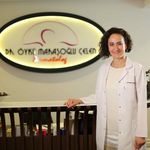
Hospitals and Clinics Nearby TravelMEDI

Harbiye, Hüsrev Gerede Caddesi No:69, Şişli/İstanbul, Turkey

Wander-Lush
42 Things to Know Before You Visit Istanbul: Helpful Istanbul Travel Tips
Istanbul is a magnificent beast.
Thirty-nine districts, 15 million people, and 1700-plus years of history – it’s still difficult for me to wrap my head around a city of this scale.
I never know where to begin with Istanbul. And yet every time I arrive, I somehow feel instantly at ease. Turkey’s biggest metropolis has a way of encircling you, sweeping you up and taking you along for the ride. For me, it’s one of those places where it’s best to relinquish expectations and anxieties and just go with the flow.
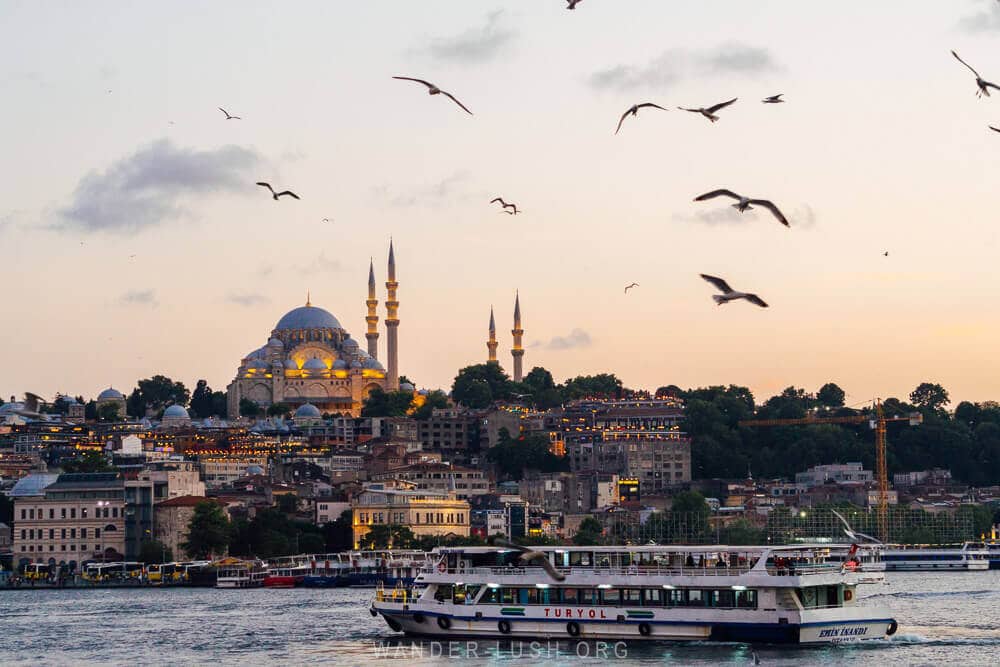
That’s easier said than done, and there are countless tidbits I wish I had known before I visited Istanbul for the first time back in 2019. On my recent re-visit, there were many more things I noticed for the first time.
I struggled to whittle this list down to a digestible size – not because travelling in Istanbul is particularly complicated or difficult, but because when you’re dealing with a city of such incredible breadth and depth, there’s just so much to talk about.
Here are 42 Istanbul tips that I think every traveller will benefit from , including cultural quirks, itinerary planning tips, logistics hints, and common faux pas.
- Also read: The perfect itinerary for 4 days in Istanbul
Please note: This post contains affiliate links, meaning I may earn a commission if you make a purchase by clicking a link (at no extra cost to you). Learn more.
Istanbul quick links
- Istanbul airport transfer: Private transfer from Istanbul Airport or Sabiha Gokcen (from $27)
- Where to stay in Istanbul: Hostel Le Banc (budget); 38 Hotel (mid-range); Hotel Empress Zoe (boutique); Ecole St. Pierre Hotel (luxury)
- Istanbul Official E-Pass: Pre-purchase online here
- Skip the line: Blue Mosque & Hagia Sophia Small-Group Tour (from $40)
- Best Istanbul food tour: Taste of 2 Continents (from $100)
- Top-rated Istanbul city tour: Best of Istanbul in 1 Day (from $60)
- Turkey car hire: Find a low-cost rental on Local Rent (from 28€/day)
Essential Istanbul travel tips
Starting with the basics, here are answers to some of the burning questions I had before my first visit to Turkey (Türkiye) and Istanbul.
1. Avoid visiting in summer
Never underestimate Istanbul’s magnetism. The city pulled in more than 14 million tourists in 2019 (including me), and on my most recent trip in 2022, it felt just as crowded as it had been three years earlier.
I’m willing to bet that most people visit Istanbul during the summer months – June, July and August. This feels a bit hypocritical because I myself have visited Istanbul twice during summer – but because I did, I know what peak season is like.
Istanbul’s climate is quite mild relative to other cities in the region. Temperatures might not go too far beyond 30 degrees Celsius in the shade, but the sun is scorching hot, and it’s very dry.
Aside from the oppressive heat, there are the summer swarms to contend with. (You haven’t really experienced a queue until you’ve stood in line for the Hagia Sophia on an August afternoon.) There are crushing crowds at every landmark during summer, and that gets old pretty quickly. On top of that, accommodation prices are noticeably higher and it can be challenging to get a reservation.
The best time to visit Istanbul is during shoulder season, spring (April to early June) or autumn (mid-September to the start of November). For something different, consider visiting Turkey in winter , when snow covers Istanbul and the city’s charm-o-metre is off the charts.
Take note of the dates for the Holy Month of Ramadan (usually around March-April-May, but it changes every year), which influences the way the city operates.
2. You need at least three days to do Istanbul justice
However many days you give yourself in Istanbul, it will never be enough. You will always feel like you short-changed yourself – there’s always one more neighbourhood to explore, one more ferry trip to take, one more museum to visit, one more restaurant to try…
Three days is the bare minimum for a first-time visitor, but you could easily stay for a week or more.
I recently spent 10 days in Istanbul and found it was a good amount of time to see the city at a relaxed pace. I stayed in the centre for that entire time, though I did have a few ‘down’ days to work. There are dozens of day trip opportunities to break things up if the city gets to be too much.
One of the highlights of Istanbul is the food, so you’d do well to measure the duration of your stay in meals eaten rather than nights slept! Six square meals (and a couple of ‘spread breakfasts’) is ideal for indulging in the best of Istanbul’s food scene .
Plan your time with my 4-day Istanbul itinerary , which covers the must-sees and a few local gems.
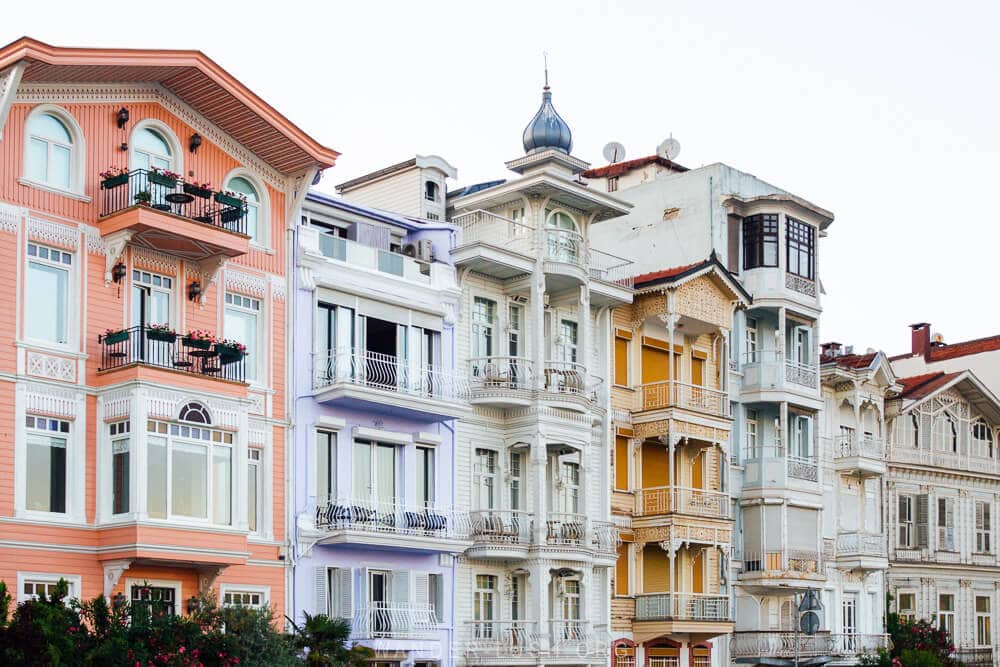
3. Save time (and maybe money) by applying for an e-visa
Most nationalities require a tourist visa to enter Türkiye. The country’s e-visa scheme, which launched in 2013, is available to citizens of 40+ countries, including the States, Australia and Canada. (EU citizens do not need a visa.) A standard multiple-entry visa is valid for a stay of up to 90 days with 180 days validity from the date of issue.
Visa on arrival (VOA) is also available, but if you’re flying in, it requires queueing at the airport – and because of the high volume of flights arriving at IST particularly, it can be a long wait. For some nationalities, it’s also more expensive – 10 USD dearer on average compared to the e-visa according to the official fees (though for US passport holders, VOA is cheaper).
Applying for a Turkish e-visa requires completing a simple online form. The website has English-language support and international card payment, but be warned that sometimes it’s a bit glitchy. Both times I’ve applied, my visa has landed in my inbox almost instantly (within the hour). Be sure to print off the A4 piece of paper to show at immigration.
There are copycat sites out there – the official e-visa portal is located here .
I have never been asked for proof of onward travel or a hotel reservation when entering Turkey. If you want one or both for peace of mind without making an actual booking, then I suggest using OneWayFly .
4. Travel insurance is a must
Travel insurance is mandatory for all foreign visitors to Turkey. Again, you might not be asked to show proof of insurance if you’re travelling on an e-visa (I haven’t), but rules are rules nonetheless.
Istanbul is generally regarded as a safe city, but pickpocketing and crime do occur. More importantly, local health care can be expensive, so it pays to be covered in case of accident or unexpected illness.
For single-policy or annual trip insurance, I recommend HeyMondo. Get 5% off your policy when you sign up using this link .
Read up on these Istanbul safety tips before you go.
5. Use the Havabus (Havaist) shuttle to travel to/from the airport
Update: Since publishing this guide, both Istanbul airports now have an underground metro service. I would definitely look into this option – avoiding traffic could be a real time-saver. Here are more details .
Havabus is a terrific service for travelling between Istanbul’s airports (yes, there is more than one – see the next point) and the downtown area. Shuttles operate 24/7, with departures in both directions every 30-60 minutes.
Tip: At Sabiha Gokcen airport, the shuttle is called Havabus and at Istanbul Airport, it’s called Havaist. I have used both – they operate in much the same way, but they have separate websites for checking the schedule ( here for Havabus and here for Havaist).
When you land in Istanbul, look for the airport bus signage. At Sabiha Gokcen, the bus stand is located on the other side of the car park directly in front of the arrivals terminal. Tickets are purchased using cash on the bus and cost 37.50 TRY (around 2 USD) per person to go to Taksim.
If you prefer a private transfer, airport cars are very well priced (from $27 to/from either airport). Pre-book a door-to-door airport transfer online here .
Eventually the Istanbul metro will extend to IST Airport, but the line has not been completed yet.
6. There are multiple airports in Istanbul – don’t front up at the wrong one!
Istanbul Airport (IST) is the city’s largest and busiest international airport. Located on the European side in Arnavutkoy, 40km / 45 minutes’ drive from Taksim Square, it is sometimes referred to as ‘Istanbul Grand Airport’ or IGA. If you’re flying with Turkish Airlines or from Europe, there’s a high chance you will be landing at IST.
A second airport, Sabiha Gokcen International Airport (SAW), receives flights from the Middle East (Emirates, Qatar ) as well as Turkey’s own Pegasus Airlines. It is located on the Asian side, 40km / 60 minutes’ drive from Taksim Square.
A third airport, Ataturk Airport, closed in 2019.
The two airports are 80km apart and it takes at least 75-90 minutes to travel between them. There are shuttle buses, but if you show up at the wrong one for your flight, there’s a good chance you’ll be left high and dry. Triple-check your reservation and make sure you show up at the correct airport.
We got caught out with this on our first trip and rolled up at the wrong airport for our flight back to Australia. Luckily we had come a day early with the intention of staying the night at the airport hotel, so we still made our flight.
You can use Havabus/Havaist to get back to the airport from the city, too. Buses depart from Taksim Square. Take the metro to Taksim and follow the exit towards Taksim Gezi Park. From there, the station is a short walk (you will see the coaches waiting and two ticket booths on the footpath).
Buses to both airports depart from the same area, so again, triple-check you’re hopping on the right one!
7. Pre-book your accommodation
Hotel platform Booking.com doesn’t work in Turkey, so if this is your preferred way to find accommodation, you’ll need to do your browsing and booking before you arrive. (This can be overcome by using a VPN of course.)
Pre-booking is essential for peak-period travel as properties do fill up and prices can skyrocket for last-minute reservations.
I normally use Airbnb in Istanbul for the simple reason that I prefer to stay in local neighbourhoods. Sisli is my district of choice: It has great access to public transport, fantastic local restaurants, and a more relaxed vibe.
8. Card is widely accepted, but it helps to carry cash
Ninety-nine percent of venues and shops in Istanbul accept credit/debit cards, including Visa and Mastercard, as well as contactless pay. For small markets and convenience stores, local restaurants, bars and taxis – and when dipping into the wonderful world of Istanbul street food – you’ll need cash.
Many smaller shops in Turkey have a primary limit set on card purchases, meaning you need to meet a certain threshold if you want to pay with a card. In these instances, cash is necessary. Small bills also come in handy for tipping (more on that later).
I suggest withdrawing cash when you first arrive and reserving it for smaller purchases and tips. Check out my Istanbul Travel Budget to learn more about budgeting for your trip and the cost of common items and services.
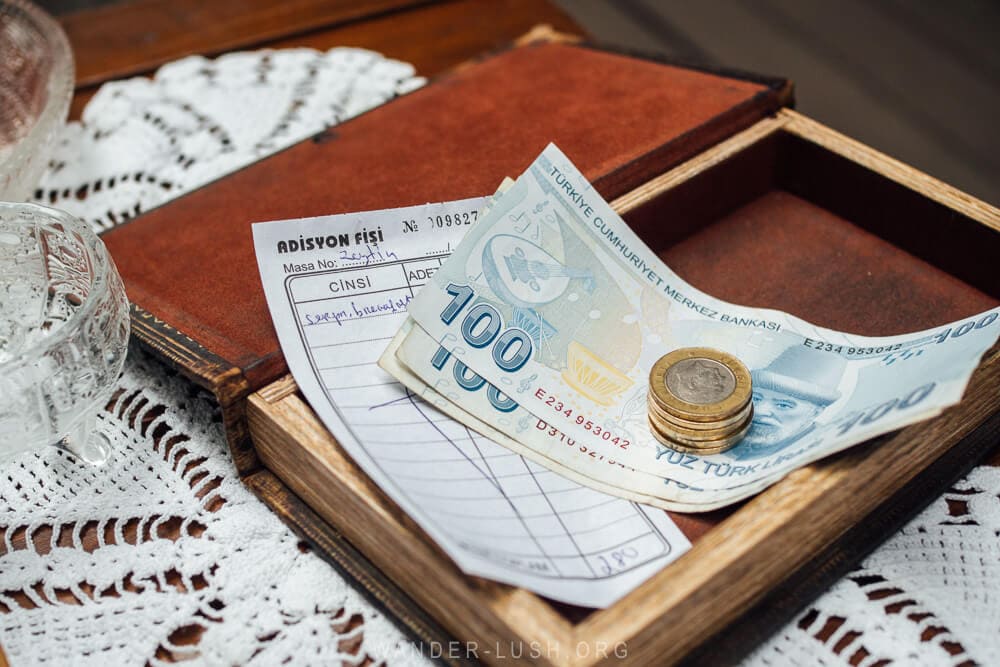
9. Most ATMs in Turkey charge a fee
ATMs are ubiquitous in Istanbul and most of the time, you’ll see half a dozen different cash machines clustered together. Majority charge a withdrawal fee – up to 5% for some banks – and have a transaction limit of between 3000-5000 TRY.
The only no-fee ATM we could find was Ziraat Bank. It’s red with a distinctive wheatear logo. We also used HalkBank, which did not charge us a withdrawal fee, but did hit us with a 13 TRY fee on Wise.
Banks change their fee structure regularly, so you might need to experiment with a few different machines. If the bank does charge a fee – either a flat fee or a percentage – this should always be displayed on the screen before you finalise the transaction.
On our first trip to Turkey, we had issues with our Australian bank cards not being accepted. This time around, I used my Wise card without any issues. I found the best method for withdrawing cash was to exchange stored currency to Turkish lira within the Wise app, then withdraw lira from the ATM.
Wise is great for international travel and offers very competitive exchange rates – if you don’t yet have an account, you can sign up here .
10. Buying a SIM card in Istanbul is easy, but your options are limited
Open WIFI is not readily accessible in Istanbul, which makes buying a local SIM card more or less a necessity.
If you’re not a Turkish citizen and you don’t hold a residency permit, you’ll find you have limited options when it comes to buying a SIM. Low-cost packages are not available to foreigners and most telcos only offer one standard tourist package.
After doing a bit of research, we settled on a Vodafone SIM. Vodafone only has one option for tourists, which includes 20GB of data, calls and texts, and unlimited access to Whatsapp. We paid 350 TRY (around 19 USD).
The process of buying a SIM is very straightforward and only took us about 15 minutes. You need a hard copy of your passport for registration, so make sure you’re carrying it with you. The tourist SIM automatically expires after 60 days.
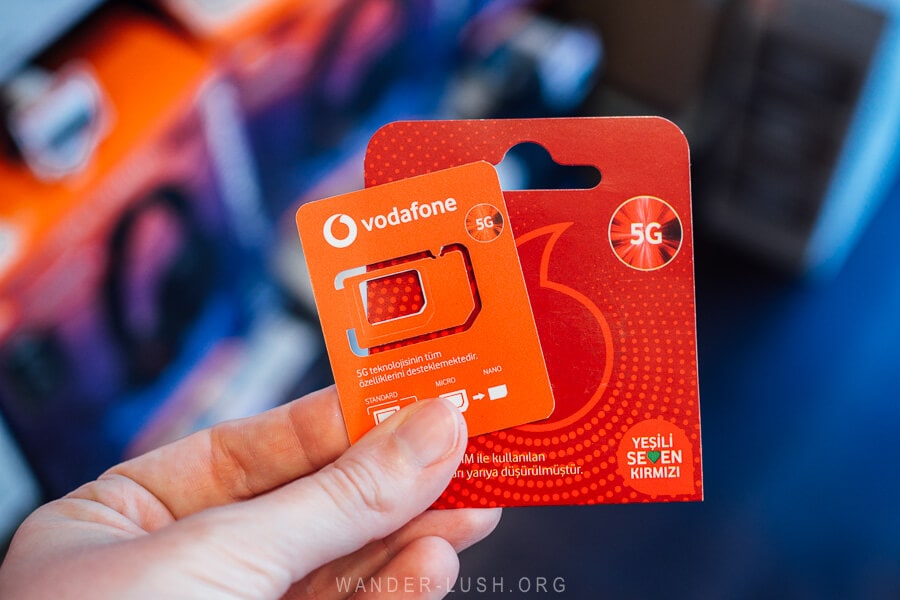
11. The public transport system is phenomenal
If you’re considering hiring a car in Turkey to continue your travels beyond the city, make sure you pick it up on the outskirts of the city (possible when using a company such as Local Rent ). The traffic is maniacal and I would not recommend driving in the city centre.
There’s no reason to drive a car in Istanbul, anyway: The public transport system is affordable, easy to use and reliable. Between the metro, trams, buses, ferries, and my personal favourite, dolmus vans, you can get anywhere you need to go with ease. Google Maps works well for planning your route.
Dolmus minivans – Turkey’s answer to a marshrutka – are a fun experience. The name literally means ‘stuffed’ because passengers are squeezed in like sardines. Keep in mind that the entire transport network is very busy and squishy during peak hour, especially in the morning between about 8-9.30am.
When boarding a bus in Istanbul, enter through the front door and tap your IstanbulKart on the electronic reader. If the bus is very full, you can board through the back doors and pass your card down the line for someone at the front to swipe.
12. You need an IstanbulKart transport pass
On our first trip to Istanbul, we walked a lot and relied on buying single-journey metro tickets for longer trips. This time around, we re-learned that only certain ticket machines inside the metro dispense single tickets – and usually they are the ones with an obnoxiously long line of people.
An IstanbulKart is an essential purchase if you plan to use public transport. There are several different cards available – all are valid for the metro, buses, trams and ferries. The so-called Anonymous IstanbulKart is recommended for tourists and is sold at kiosks and newsstands and inside metro stations for 50 TRY (non-refundable). You can use one card for multiple people (up to five people).
A single IstanbulKart fare costs 7.67 TRY. Compared to the 15 TRY for a single-journey ticket, you’ll end up saving almost 50% on every trip.
Note that metrobus fares vary according to the number of stops travelled, but metro fares are flat. Transfers are charged at 5.49 TRY for the first transfer and 4.17 TRY for the second leg.
Find more information about the public transport system here .
13. Use an app for taxis in Istanbul
Istanbul’s cab system is similarly well organised, with three types of taxis at different price points. Yellow taxis are standard and have the lowest fares (6.3 TL/km plus a switch-on fee of 9.8 TL). Turquoise taxis are a premium service and cost 20% more, while black taxis (always luxury vehicles) are twice as expensive as yellow taxis.
Taxis are metered, so it’s generally considered safe for a tourist to hail a cab on the street. However, scams do happen , which is one of the reasons most people (including many locals) prefer to use an app.
After numerous legal battles, Uber re-launched in Turkey in 2021. We used it on several occasions and found the service to be good – short wait times, friendly drivers, and competitive fares (we always paid in cash rather than hooking up our credit card – make sure you are carrying small bills).
Uber alternatives include BiTaksi and Itaksi. The former has POS contactless payment, which is great for paying by card.
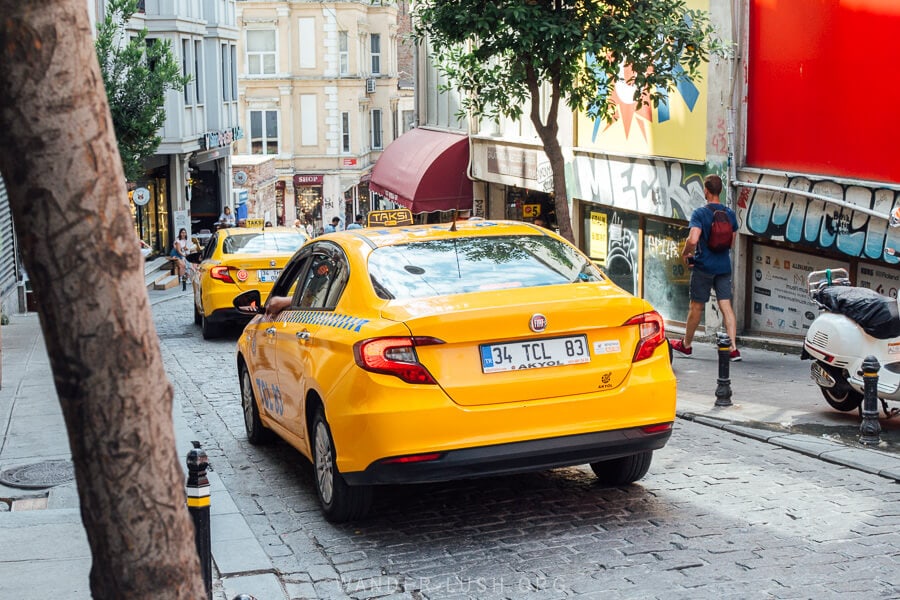
14. Tipping is standard
Tipping is customary in Turkey, with 10% being the standard mark for restaurants and bars. For taxi drivers, it’s normal to round up to the nearest lira when paying in cash.
Of course you should only tip if you’re satisfied with the service. We found the quality of customer service in Istanbul to be pretty good across the board, with the exception of one chain cafe where we had a terrible experience.
Tipping is slightly higher for other service providers: 10-20% goes to your tellak or natir at the Turkish baths, and to your hairdresser or barber.
15. Can you drink the tap water in Istanbul?
This is a rhetorical question, because I’m still not sure what the correct answer is! Locals will warn you off tap water while at the same time, the government is running campaigns to encourage more people to drink from the faucet.
From what I understand, Istanbul tap water was undrinkable a decade ago. Infrastructure improvements (and the addition of chlorine to the water stream) have made tap water safe to drink, but many people still prefer to drink bottled water.
If the building you’re staying in has old, rusty pipes, it might be best to give tap water a wide berth. Try a small quantity and see how it sits with you.
16. Don’t flush your loo paper
Istanbul’s pipes are a bit sensitive, thus most restaurants, cafes and hotels request you place toilet tissue in a bin rather than flushing it down the loo. If this is the case, you’ll likely see a sign and a strategically placed wastepaper bin. If in doubt, don’t flush it.
17. If you need a bathroom, head to the nearest mosque
After chasing after non-existent bathrooms in malls and metro stations, I finally cottoned onto this little Istanbul tip: There are public toilets attached to most mosques and in my experience, they are almost always cleaner than public bathrooms elsewhere. Pan toilets are common. Men’s rooms are marked with bay , and women’s with bayan .
Some bathrooms are free to use, while others charge a small (1-2 TRY) fee. Another good reason to carry some small bills or coins with you.
18. Sip ayran to keep your tummy happy
Ayran is a savoury yogurt drink that has its roots in Turkey, but is popular around the region (I developed my ayran addiction several years ago in Bosnia and Herzegovina and have been sipping it ever since). It’s not too creamy, not too watery, and has just a hint of salty effervescence.
Because it’s yogurt, it’s full of good bacteria that do wonders to keep your gut in balance. Just as you might drink lassis in India, you can drink ayran in Istanbul to help ward off any potential food or water-related bugs.
Food poisoning definitely does occur in Istanbul, so watch what you eat and try to consume street food earlier in the day when it’s fresher (especially fish wraps and seafood).
People drink ayran with breakfast, lunch or dinner, and it is served at virtually every restaurant in Istanbul – either in little plastic tubs or from a fountain. Always go for the fresh option when it’s available: It’s light and aerated and extra delicious, presented with a big scoop of yogurty foam on top.
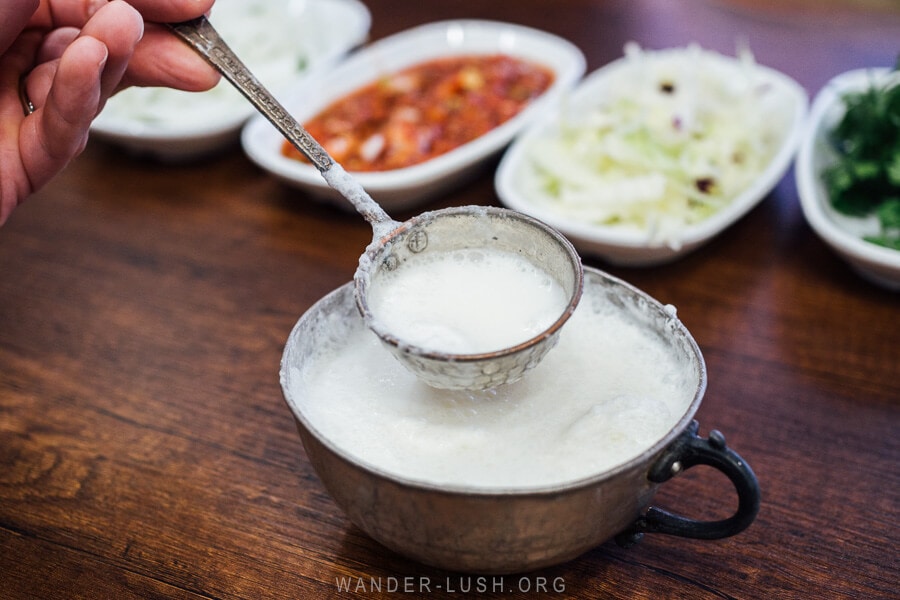
19. Drinking is common, but alcohol is not ubiquitous
The most popular alcoholic drinks in Istanbul are beer, wine and raki , a powerful spirit distilled from grapes or other fruits. Not all restaurants serve alcohol, however, and when you make your way over to the Asian side of Istanbul (which is noticeably more conservative), you’ll find that only a handful of establishments are licensed.
If you prefer to BYO, tekels are Istanbul’s answer to bottle shops. They normally sell a selection of local bottled beers and Turkish wines along with soft drinks, snack foods and cigarettes. It’s illegal to sell alcohol within 100 metres of a mosque or a school, so you won’t find any tekels in some neighbourhoods.
Sales are restricted to certain times of day – you cannot purchase drinks from a bottle shop between 10am and 6am (there are no restrictions on restaurants and bars, though). Alcohol is served as normal during Ramadan.
Excessive drinking is taboo in Turkish culture. Raki, the national drink, is a social beverage consumed slowly with food. It has aniseed notes and is sometimes served over water and ice, which gives it a milky colour.
If you want to try raki, head to a meyhane (meze bar), where alcohol is served with small places of food (also see point #26 on this list). You can order a small 350 mL bottle or a shot (~40 mL). Start slow – some rakis are 80-90 proof.
20. English is widely spoken (sort of)
The number of Turkish people who speak English is somewhere between 15-20% . Of course the rate is much higher in Istanbul, but still, English is not as widespread as you might imagine.
We found a bit of a paradox here: In big shops and phone stores, very little English was spoken, while we encountered staff who spoke perfect English in small restaurants and humble bakeries.
The bottom line is that it’s a bit of a mixed bag, so be prepared to sign and mime your way through some situations. Of course it helps to have some simple Turkish under your belt – knowing a few basic phrases can help to smooth things over.
Istanbul quirks to know before you go
Here are a few unusual quirks that tripped us up in Istanbul.
21. Pharmacies are hard to find
Turkey differentiates between ‘pharmacies’ and ‘cosmetic stores’ in a way that I’ve not noticed in any other country. The latter sells beauty and health products, but there is no pharmacist on staff and nowhere to buy over-the-counter medications or prescription meds.
Chains such as Watsons, Rossmann and Gratis are classified as ‘cosmetics stores’. If you need anything more serious than paracetamol or a revitalising face mask, you need a pharmacy or eczane .
Eczanesi are more difficult to come by. That’s because there are no chain pharmacies in Turkey. All pharmacies are small and owner-operated by a pharmacist – essentially mom-and-pop shops. You won’t find them in malls, only on the streets. Look for the ‘eczanesi’ sign in the window, and when using Google Maps, search for ‘eczane’ rather than ‘pharmacy’.
Pharmacies are worth hunting down if you need them: Many medicines are freely available in Turkey without a prescription, and prices are almost always cheaper than elsewhere in Europe. You do have to ask around, though, as every pharmacy has different stock and different generic brands. My partner spent several days searching for his medication and after asking at a dozen eczanesi, he finally found what he was looking for at a quarter of the price it is in Georgia.
22. Hand cologne is a thing
Istanbulites were sanitising their hands long before it was cool. The first time we had our hands doused in hand cologne by a friendly waiter, we assumed it was hand sanitiser – but no, this tradition far predates the pandemic.
Kolonya harks back to the days of the Ottoman Empire when a pleasant smelling liquid was sprinkled on guests’ hands as they would enter or exit private homes, hotels or hospitals. Today it’s widely used in restaurants after you pay the check. Some places have a little bottle on the table next to the salt and pepper shakers.
Scented with jasmine, lemon, rosewater or dark spice, a dash of hand cologne leaves your paws smelling fragrant fresh. Unlike hand gel, kolonya is very thin and watery – a little bit goes a long way. And because it’s ethanol-based, it does act as a disinfectant as well.
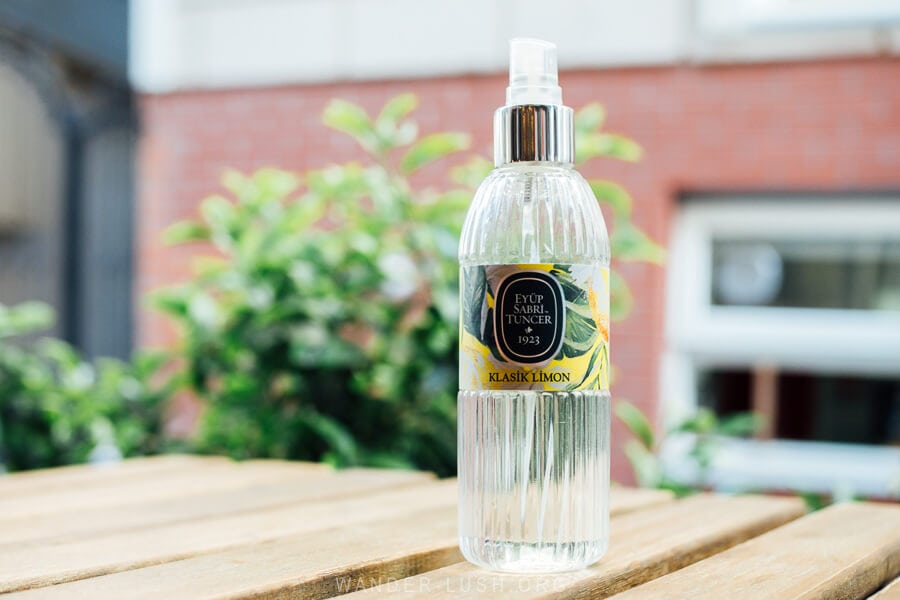
23. Don’t be surprised if you get asked for your phone number
Grocery stores, cosmetic stores, clothing shops and pharmacies alike seem to ask customers for a local phone number – I assume for marketing purposes rather than to track or register anything. This happened to us on a daily basis, and the first few times, the language barrier made it very confusing.
If you don’t have a local SIM (and even if you do), you can always say no and the cashier will copy a random number off the back of an old receipt.
24. Don’t stay too close to a mosque if you like to sleep in
Istanbul has its own backing track, and that is the sound of the call to prayer ( ezan ). The rumble of minarets whispering to each other is incredibly stirring – but your opinion might be slightly different if you happen to be laying your head near a mosque’s speakerbox every night.
The call to prayer happens five times a day, starting with the pre-dawn İmsak ( Fajr ), which reverberates around the city some time between 4-6am depending on the time of year. In July, it can be as early as 3.30am, with a second Sunrise ( Güneş ) call around 2 hours later.
With well over 3,000 mosques, you’ll more than likely have at least one or two nearby. If you’re a light sleeper, it’s worth scoping out the local mosques and choosing accommodation that’s further than earshot from the nearest minaret.
25. Don’t linger too long at a lokanta
Lokanta are a specific type of Turkish restaurant that serve casual, home-style meals to workers and tradesmen. Every neighbourhood has them, and they are a terrific place to sample salt-of-the-earth Turkish cuisine and soak up a bit of local culture at the same time.
When you sit down at a lokanta, a waiter will come to take your order within seconds. Some are cafeteria style, others are a-la-carte. At the end of the meal, empty plates are spirited away and the table sprayed and wiped just as fast as the food came out. Usually you settle the bill at a cash desk rather than requesting a written check.
It’s easy to overstay your welcome at this type of establishment, where the imperative is to turn tables as quickly as possible. They are perfect when you need a quick bite, but if you want a leisurely meal, choose a different sort of restaurant. Sidewalk meyhanes , for example, are the complete opposite. Serving meze and raki, they are designed for long, lingering lunches.
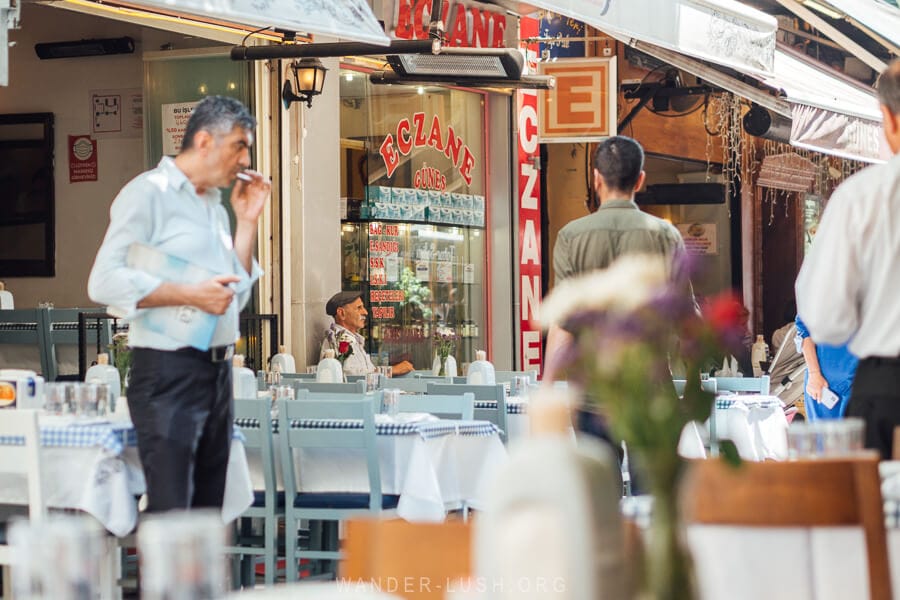
26. Don’t assume those meze plates are free
It’s normal for wait staff at a meyhane to present you with an attractive tray of small plates before they take your order. Turkish meze includes grilled eggplant with yogurt, fava beans, artichoke, and many, many more delicious bites designed for sharing over a bottle of raki.
Don’t make the mistake of assuming these small side salads are free – they are not. (Sides of chopped onion, herbs and chilli served in smaller silver dishes with kebab, on the other hand, are usually included in the price.)
27. Brace yourself for lots of uphill walking
They don’t call Istanbul the ‘City on Seven Hills’ for nothing. After a few days walking the streets, you might think the ‘city of seven million hills’ is a more apt nickname.
Constantinople was laid out in the image of Rome, which was of course built over a septet of hills. On the ground, it feels like all of Istanbul is rippled, with steep streets and vertiginous staircases at almost every turn. There are many advantages to this city plan, the delightfully sloped houses in Balat for one, and the spectacular city views you get from the higher elevations for another.
Comfy shoes and a whole lot of patience are absolutely essential when exploring Istanbul on foot, where it can literally feel like an uphill battle to get from one place to the next.
There are ways to avoid the slog, including using the funicular railways: Taksim-Kabatas and the historic Tunel that links Karakoy and Beyoglu. The latter is the world’s second-oldest subterranean rail line (after the London Underground) and the oldest still-operating underground funicular in Europe.
Istanbul travel tips to feel like a local
While it takes more than a three or four-day stay to feel like a fully fledged Istanbulite, here are a few little tricks to help you fit in.
28. Dress modestly to blend in
Istanbul is a metropolis through and through, with a liberal dress code to match. Almost anything goes, but I still recommend you cover up for comfort and to fit in with the crowd. Women should try to avoid plunging necklines, revealing fabrics, and very short hemlines.
There are noticeable differences between the European and Asian sides of Istanbul, with more modest dress and more hijabs worn in Uskudar compared to Eminonu, for example. Generally speaking, Turkey gets more conservative the further east you go, and this holds true even in the city centre. Keep it in mind if you’re travelling around the country.
One place you definitely must observe the dress code is mosques, where covered arms (to the elbow for men or the wrist for women) and legs (down to the ankles) is required. Women must also cover their hair. Majority of mosques have pull-over muumuus that you can borrow (for free) at the door to fully cover up. Note that there are no dress requirements for young kids.
It’s obligatory to remove your shoes when entering a mosque, so on days when you’re sightseeing, wear kicks that you can easily slip off and on. And if you prefer not to go barefoot, carry a pair of ankle socks in the bottom of your bag. Some mosques provide plastic bags, otherwise you can just leave your shoes outside.
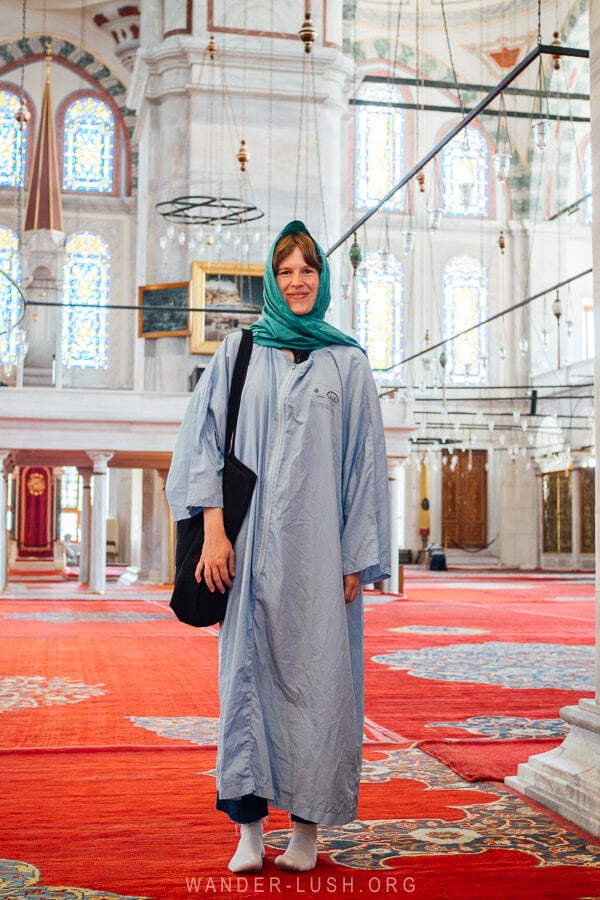
29. Never skip breakfast…
Breakfast is certainly the most important meal of the day in Turkey. Sunday breakfast is the queen of the morning meals, when the famous kahvalti tabagi ‘spread breakfast’ comes into its own.
On a Sunday, some Istanbulites spend the better part of the day between mid-morning and late afternoon gathered around the breakfast table with friends or family, noshing on an extravagant spread of cheeses, olives, cut vegetables and eggs served with supple somun bread. Kahvalti is a daily occurrence in places like Besiktast ‘Breakfast Street’ and in gourmet cafes such as Van Kahvalti.
If you’re on a tight timeline or a budget, breakfast doesn’t have to be drawn-out or expensive: There are faster and more affordable options, such as a pick-and-choose breakfast at Cakmak Kahvalti Salonu, where small plates range from 2-8 TRY each.
Borekcisi (borek bakeries) serve portions of steaming hot filled pastry and chai, or for a simple breakfast snack on the go, grab a simit bagel from a street vendor.
30. …But don’t order coffee first thing
Kahvalti means ‘before coffee’. Breakfast is traditionally accompanied by cay , strong black tea, rather than Turkish coffee. It’s normal to down half a dozen glasses of tea in a single sitting (though two or three is usually enough). Most sit-down kahvalti breakfasts come with two pots of tea.
If you want to do things like a local, save your Türk kahvesi for after lunch and start your morning with cay sade – strong and bitter tea with no sugar – instead.
31. Don’t be afraid to haggle at the bazaar
Haggling is customary and expected at markets in Istanbul and in other commercial settings. You’ll find that most items at the Grand Bazaar or Spice Bazaar have a price tag, but for those that don’t (and even for those that do), it’s quite normal to bargain for a better price. This is especially true if you’re buying more than one of something or multiple items from the same vendor. Rule of thumb is to aim for a 35-50% discount on the sticker price.
There are huge mark-ups at the Grand Bazaar, which seems to be almost exclusively the domain of tourists these days. There are local markets and street markets all over Istanbul where you’ll have a better chance of striking gold for a fair figure. Markets are held on different days of the week and following a rotating schedule, so you can always find something on. Popular food and flea markets take place in Karakoy (Tuesdays), Ortakoy (Thursdays), Uskudar (Fridays), and Besiktas (Saturdays).
If you do decide to brave the Grand Bazaar or another historic market in Istanbul, the best advice I’ve heard is to do your shopping in the mid-morning. It’s more likely that vendors have already made a few sales and met their daily commission targets, so there will be less pressure on you.
32. Don’t fall for the ‘shoe cleaner trick’
This one got us good.
One early morning we were walking down an alleyway in Besiktas when we heard a clack on the cobbles and noticed that someone had dropped a wooden shoe brush. Being the saint he is, my partner rushed to pick it up without a second thought and handed it back to the shoe cleaner whose caddy it had tumbled from.
Expressing his profound thanks, the guy promptly took a seat on the curb at our feet and insisted on shaking my husband’s hand in gratitude. That’s when he grabbed him by the wrist in a monkey grip and tried to pull him down for a coerced shoe cleaning. I should mention that he was wearing joggers, not leather shoes!
Neither of us were aware of this common scam at the time, so we thought the whole situation was quite hilarious. The man had a gorgeous smile and was very friendly – we actually gave him credit for this ingenious trick.
Only later when we heard about the scam did we realise what had (almost) happened to us. Ross managed to talk his way out of it, dirty shoes still intact.
We were not mad in the slightest, but it could have been a different story had we actually been talked into handing over cash. Keep an eye out for this trick, especially in touristy areas.
33. Embrace cat culture
There are up to a million cats and kittens living on the streets of Istanbul. Every cafe is a cat cafe, and every corner has its own posse of cute pusses. A picture-perfect clowder of cats lounging on fence posts and chairs like the princes and princesses they are awaits you at every turn.
Similar to street dogs in Georgia , the cats of Istanbul are regarded as community pets rather than strays and are fed and cared for by the locals. For the most part, they don’t bother people and keep to themselves. We definitely encountered a few fiercer felines on our travels – it’s pretty obvious which cats want pats and which ones need their personal space. They will let you know with a dagger stare or a hiss.
Cat culture can be traced back to Ottoman times, when tabbys helped to quash the city’s mice population. In this respect, cats are an inseparable part of the city’s social fabric.
If you’re an animal lover, it can be distressing to see so many cats living rough, especially when they’re not in the best shape. (Though I must say that every cat I met in Istanbul was plump and rosy.) It helps to know that Istanbul (and all of Turkey) has a no-kill, no capture policy.
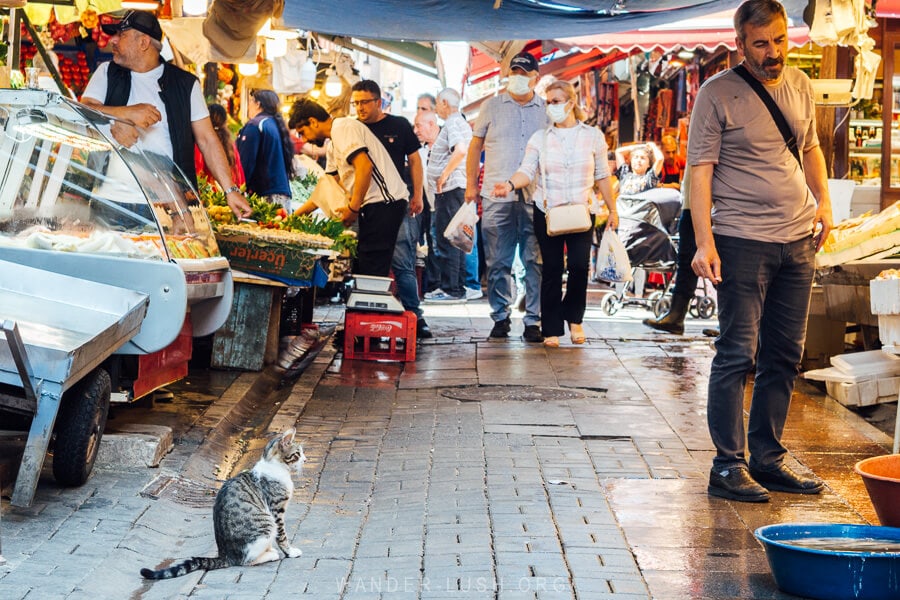
34. Brush up on your basic hammam etiquette
Partaking in a traditional Turkish bath is a must-do in Istanbul. The hammams have aeons of history and custom attached to them – there are definite dos and don’ts, just as there are with the sulfur baths in Tbilisi . It helps to know how to handle things once the towels come out, lest you embarrass yourself.
Regarding nakedness, men normally strip down to nothing while women wear undies (single-use pairs are supplied by most bathhouses) then don a pestemal towel, which stays wrapped around you for the duration of your stay.
The Turkish-style skin peel/massage ( kese ) can be quite rough on the skin and muscles. The therapist, known as a natir or tellak , will always be of the same gender. It’s customary to tip them 10-20% after your treatment.
For more Turkish hammam hints, see this guide .
More helpful Istanbul tips to make the most of your visit
Finally, here are a handful of practical tips for planning your itinerary and getting the most out of your time in Istanbul.
35. Organise your Istanbul itinerary by neighbourhood/district
Istanbul has 39 districts, each with its own character and appeal. From the Instagrammable houses and antique shops in Balat, to the trendy cafes in Cihangir, the rambunctious fish market in Uskudar to the Ottoman-era mansions in Arnavutkoy , every corner of the city has something incredible up its sleeve.
A great way to organise your time in Istanbul is by planning your movements around the different neighbourhoods. Each one is quite discreet, so you can knock out a to-do list before moving onto the next.
Some neighbourhoods naturally pair together thanks to geography and transport logistics: Galata and Karakoy, Fener and Balat, Uskudar and Kadikoy, Cihangir and Cukurcuma. See my Istanbul 4-day itinerary for more ideas on how to plan your visit by district.

38. Consider signing up for a food tour
One thing every Istanbul neighbourhood has in common is its never-ending supply of cafes, restaurants and street food vendors. One of the best ways to discover the city – especially if you’re on a tight timeline – is by signing up for a food tour.
I was lucky enough to join Culinary Backstreets’ Born on the Bosphorus tour during my most recent visit to Istanbul. It was one of the highlights of my trip – not only because of the delicious food, but mainly thanks to our incredible guide, Benoit, who over the course of a full day taught me so much about Istanbul’s food and beyond.
The popular Taste of Two Continents tour, with 11 food stops and a Bosphorus ferry crossing, is a good alternative if you’re looking for a half-day experience.
37. Get an early start to beat the crowds
This is particularly important in summer, when the touristy parts of the city get extremely crowded. One of the best ways to avoid long waits at landmarks such as Galata Tower is by waking up early and arriving as doors open.
The metro starts running at 6am – and from Friday evening to Sunday morning public transport operates 24/7 – so there’s no excuse not to get out in the early AM.
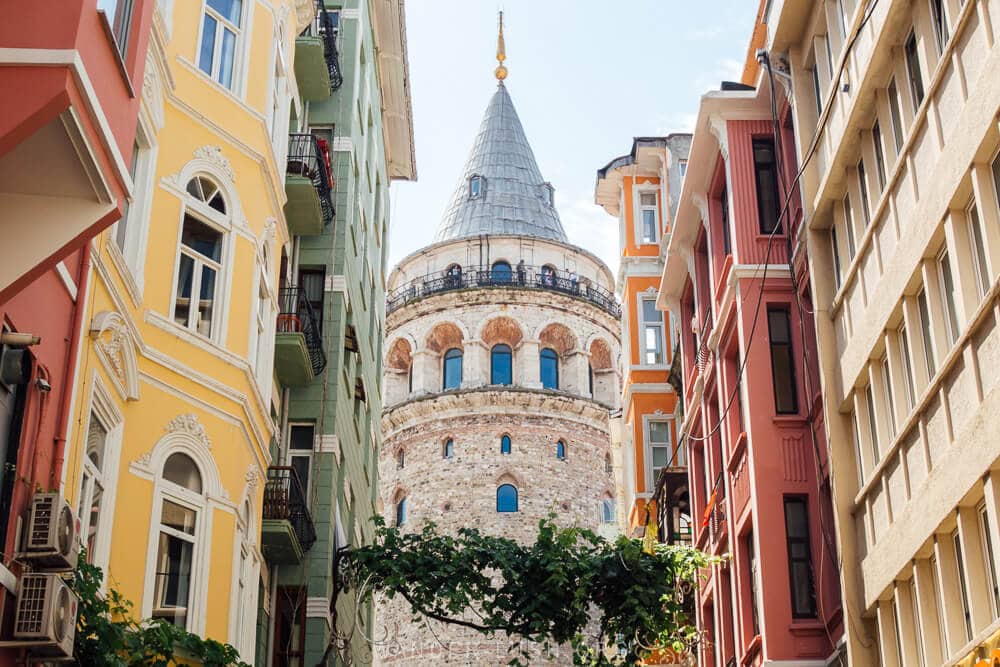
38. Invest in a Museum Pass or Istanbul E-Pass
There is a gamut of different tourist cards and passes available for Istanbul. The 5-day Istanbul Museum Pass or the 2-7 day E-Pass is one of the best investments you can make if you plan on doing the rounds through the city’s best museums and big attractions.
The digital pass gives you skip-the-queue access to 10 of the city’s finest cultural institutions, including Galata Tower, Topkapi Palace and the Harem, the Istanbul Archaeological Museum, the Museum of Turkish and Islamic Arts, and the Galata Mevlevihanesi Museum.
Available to purchase online before you arrive, it uses a simple QR code system. Just show your pass on your mobile – no need to print anything.
Only buy the pass if it makes sense for you, though: You have to visit multiple attractions for it to pay off, though the other perks – particularly the ability to skip the ticket line – are invaluable in a sense.
Purchase the official Istanbul E-Pass here via Viator .
39. Check prayer times in advance
The Blue Mosque and Hagia Sophia are both active mosques, open to visitors 24 hours a day, seven days a week. Except during prayer times, that is.
All of Istanbul’s mosques temporarily close to non-Muslim visitors five times a day for a period of about 90 minutes. For the duration of the Congregational Prayers, no tourists are permitted to enter.
It’s imperative to check prayer times in advance. If you show up while prayers are on, you will be met with a long wait outside. Times are signposted at the bigger mosques or you can check online .
The queue to enter the Hagia Sophia gets very long towards the end of the prayer session. The best time to visit is 30-40 minutes before the mosque is scheduled to close. Don’t try to visit on Fridays when the Jumu’ah prayer takes place – this is one of the busiest times, and it’s always crowded and chaotic.
If your Istanbul visit coincides with Ramadan or another Islamic holiday, prayer times might be different and mosques might be closed for longer periods during the day.

40. Skip the Bosphorus cruise – take advantage of local ferries instead
Some people opt to experience the Bosphorus on board a yacht at sunset with champagne and nibbles. If your budget won’t stretch that far, or you just prefer a local experience, then a ride on the public ferry offers the same ambiance and water views for a fraction of the price.
Hundreds of ferries criss-cross the strait, linking Istanbul’s Asian and European sides. The most scenic ferry routes include Besiktas to Kadikoy, Karakoy to Uskudar, and Karakoy to Kadikoy. Some boats go up the Bosphorus towards the Black Sea, and others head in the opposite direction towards the Princes’ Islands.
Bring a simit bagel to snack on (and to lure seagulls in for photos), or order a tulip-shaped glass of tea from one of the roving vendors on board.

41. Don’t miss the sunset from Galata Bridge
There is only one way to end a day in Istanbul in my opinion, and that’s by watching the sun go down from Galata Bridge. It might be touristy as heck, but there’s a good reason why this is such a popular spot. Views of the glittering water and intertwining boats, mosque minarets silhouetted against a dusky blue sky framed by fishermen casting their lines off the edge of the bridge, are absolute gold.
I recommend finding a spot to stand on the western side of the bridge, above the area where the Karakoy ferry docks. Aim to arrive about an hour before sunset for the best light.
For the perfect Istanbul photo, wait patiently for the garbage truck to come down the street and dump its load in the bins near the ferry terminal – this sends the seagulls into a frenzy, and they fill the skies with their spinning and diving for a good 15 minutes.
42. ‘Authentic’ Whirling Dervish ceremonies still exist – here’s how to find one
Speaking of Istanbul must-dos: A Whirling Dervish show is a bucket-list item for many. I was warned that all Mevlevi Sema ceremonies had become commercialised and ‘spoiled’ by tourists to the point where they just weren’t worth pursuing any more. So I made it my mission to find a real, ‘authentic’ Sema ritual in Istanbul, and I’m happy to say that I eventually did.
Get all the details about the best Whirling Dervish ceremony in Istanbul in this guide .
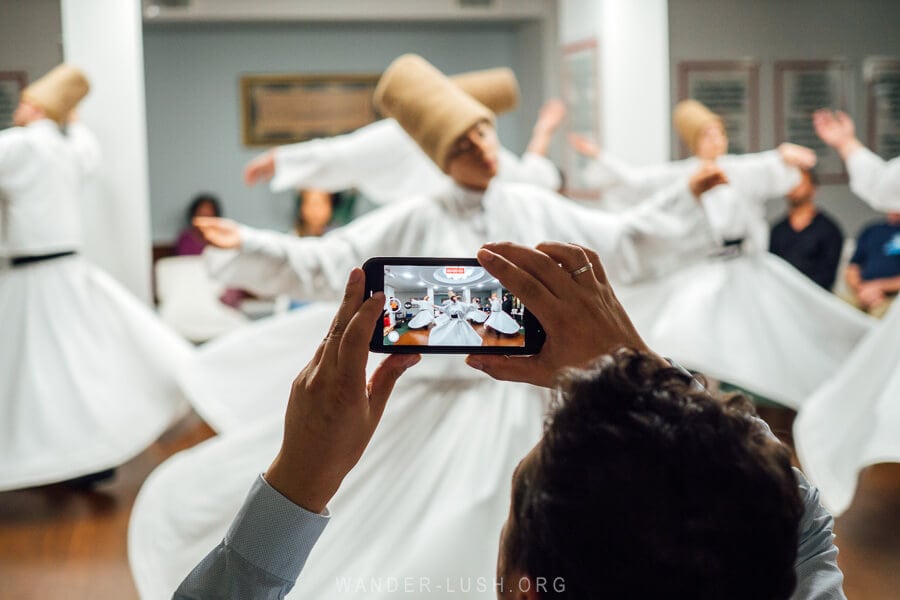
Where to stay in Istanbul
Budget: Hostel Le Banc (⭐ 9.5) – This popular hostel in Beyoglu is footsteps from the Galata Tower and Sishane metro station. It features air-conditioned rooms (private doubles and mixed/all-female 4 and 10-bed dorms), a shared lounge and a terrace.
Mid-range: 38 Hotel (⭐ 8.6) – Located in Sisli, close to Osmanbey metro station, this hotel has compact, tidy double rooms and suites.
Boutique: Hotel Empress Zoe (⭐ 9.2) – This gorgeous boutique hotel is decorated with heritage flourishes and boasts hammam-like ensuites and private internal terraces. The location in Fatih, minutes from Sultan Ahmet Mosque and the Blue Mosque, is very central yet the hotel still feels secluded.
Luxury: Ecole St. Pierre Hotel (⭐ 9.5) – Located in Beyoglu close to Galata Tower, this boutique-luxury hotel offers high-end suites with private courtyards and terraces. The building, an old Italian Dominican school with remnants of the 13th-century Galata walls inside its courtyard, is dripping with history.
Turkey essentials
Here are some of the websites and services I recommend for planning a trip to Turkey. Remember to check out my full list of travel resources for more tips.
FLIGHTS: Find affordable flights to Turkey using the Skyscanner website .
VISAS: Use iVisa to check if you need a tourist visa for Turkey and apply for an expedited visa online.
DOCUMENTATION: Use OneWayFly to obtain proof of onward travel/hotel reservation for your visa application.
TRAVEL INSURANCE: Insure your trip to Turkey with HeyMondo , my preferred provider for single-trip and annual travel insurance.
CAR HIRE: Use the Local Rent platform to hire a car from a local agent. Prices start from as little as 18€ per day.
ACCOMMODATION: Find the best Turkey hotel deals on Booking.com .
CITY TOURS & DAY TRIPS: Browse the Viator website to find the best itineraries and prices for Istanbul food tours, Cappadocia balloon rides and more!
More Istanbul travel resources
- 1-4 day Istanbul itinerary
- Istanbul travel budget
- The ultimate guide to eating out in Istanbul
- Tips for visiting Galata Tower for Istanbul city views
- The best Whirling Dervishes ceremony in Istanbul
- Guide to Arnavutkoy, Istanbul’s most beautiful district
- The best places to visit in Turkey
- Turkey in winter: Where to go plus travel tips
12 Comments
Detailed tips are super helpful, especially about the best time to visit and the ins and outs of public transport.
Thank you. Right now in Turkey with wife and kids. Following your steps and recommendations. Just one thing: booking asked for a price but the hotel converted the price to Liras and charged me much more for exactly the same booking and service! Thank you again,
I love your travel blog! Your vivid descriptions and stunning photographs make me feel like I’m right there with you. It’s inspiring to see someone embracing adventure and exploring new cultures. Keep the travel stories coming!
Excellent article and links for further information. I am planning a trip to Turkey in September with my wife and your articles a great start and support. Great job! Alejandro
This is very, very helpful. Thank you so much.
Early in your article you indicated that Booking.com does not work in Turkey, yet in the section, entitled “Turkey Essentials”, you direct us to that site for Hotels. Maybe I am missing something, but that appears to be contradictory. I found the article very helpful…..Thanks for the information.
Hi JB – I still recommend using Booking, only you have to reserve from outside of Turkey ie. before you arrive.
Thanks so much, this was really helpful. Lots of good to know stuff that I didn’t find mentioned elsewhere
it was very helpful thank you
Ha, I made the same mistake again and didn’t read through your info thoroughly. In Georgia, I paid more than I needed to for a SIM at the airport and this time, I could have saved a few lira on a bank withdrawal in Istanbul.
Already appreciating the smiles and kindness in Istanbul very much.
Love your work Emily.
Perhaps it’s different for Australian passport holders, but I found the VOA to be a better deal than the eVisa for Americans. Our eVisas were fast and easy to get, but cost $50 plus a 2 dollar service fee. We got them before traveling to Turkey last year, but went twice to make them a better value. This past month we got VOA (no lines) and paid 25 euros each. Both are valid for 6 months. Plus you get a little visa stamp in your passport!
Thanks Owen for the info – you’re right, VOA is more affordable for US passport holders, but not for us Aussies unfortunately! I would have loved a visa stamp. I’ll update that now. Cheers!
Leave a Reply Cancel reply
Your email address will not be published. Required fields are marked *
- Subscribe to future posts
- Hair Transplant
- Dental Health

- Your Healthcare Journey
Free Consultation
Fill out the form and we will contact you within 1 hour.
Featured Treatments
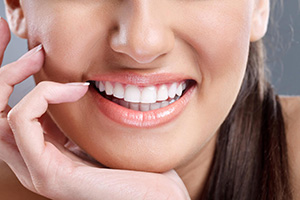
Contracted Institutions


Why Bilva Health
We are doing our best to arrive the proper treatment to you . we are with you in all process from the moment you leave your home., health consulting.
You can choose the most suitable treatment for you by consulting our team about the treatment process and planning.

When you decide to come to Turkey, we provide you a visa service.
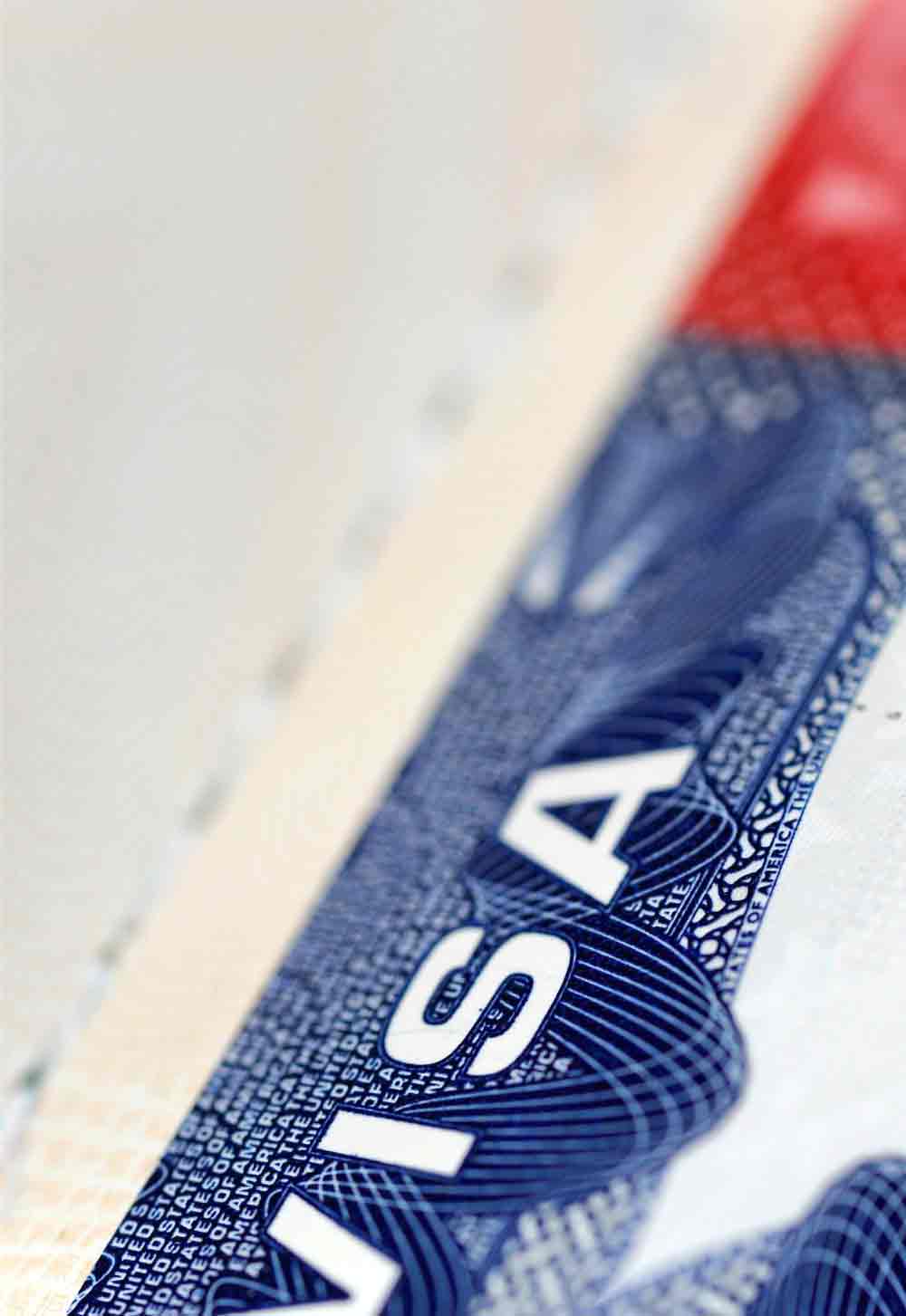
Flight Ticket
We handle all your preflight processes, including flight booking for you
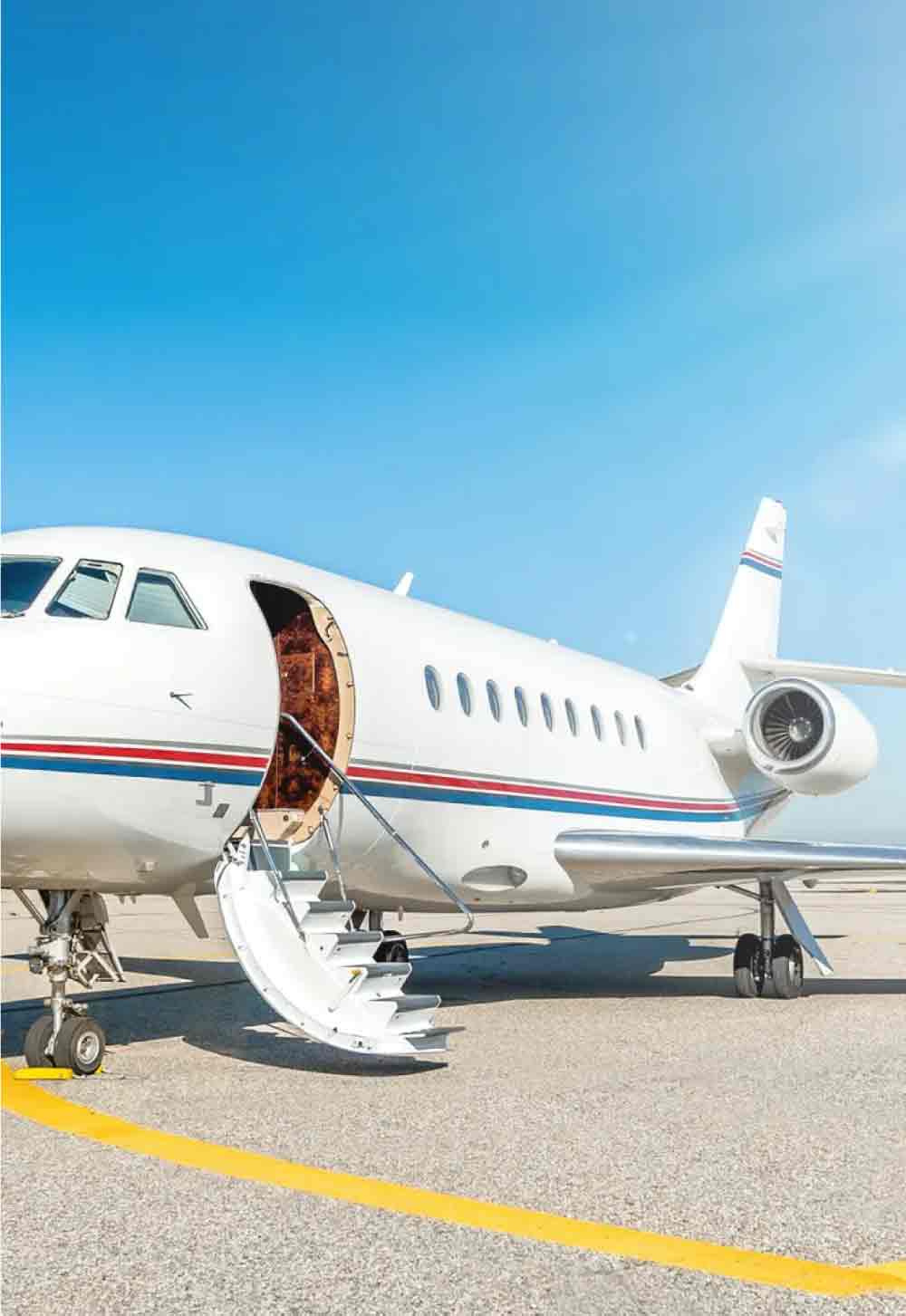
VIP Welcome and Transfer
When you arrive in Turkey we provide you a transportation service directly to your accommodation and to the hospital where you will be treated.
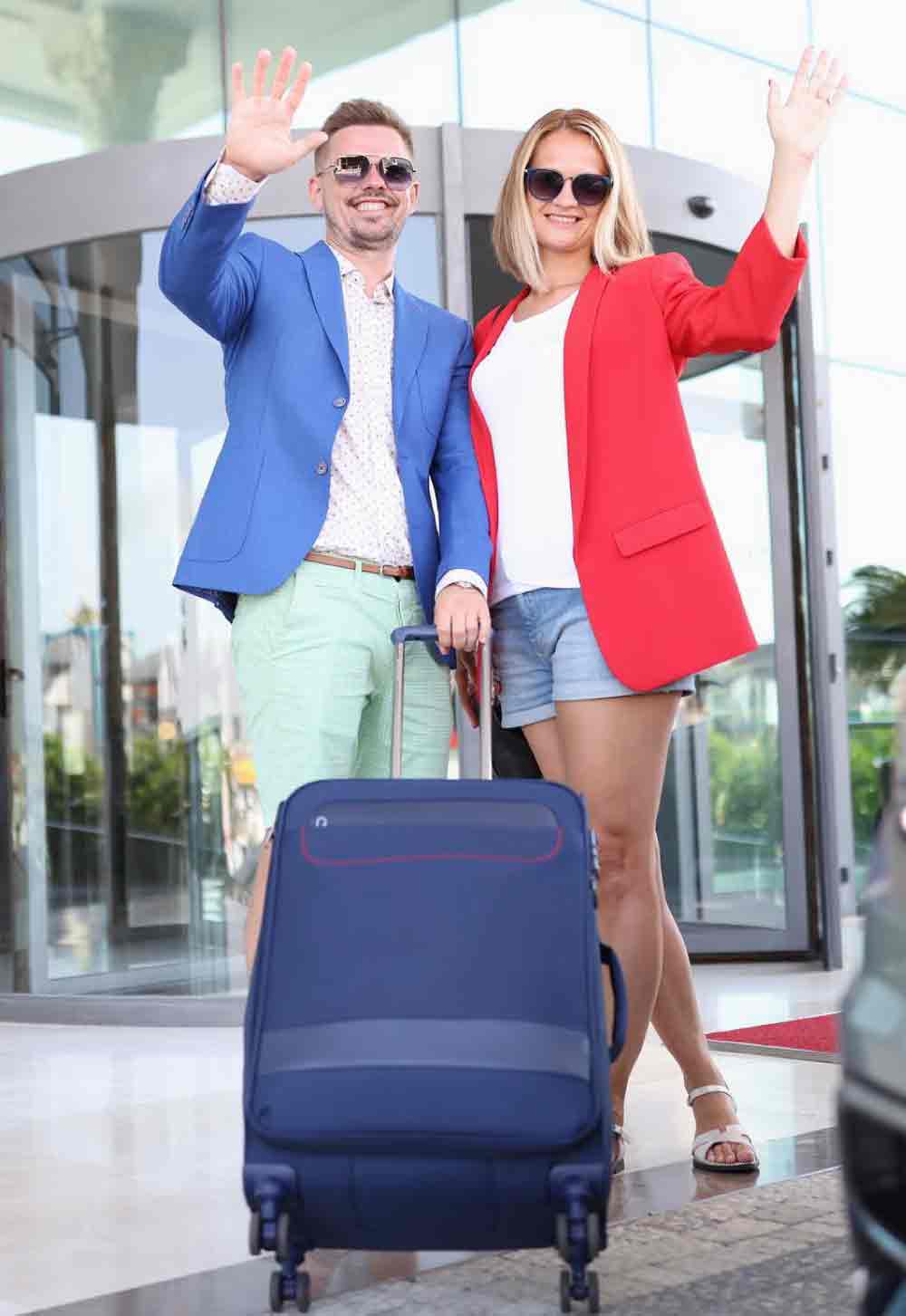
Interpreter Service
To avoid any language problem in Turkey, we dedicate you to an interpreter in your native language.

Accommodation
During your treatment process, we arrange your hotel booking and handle with the necessary process for you.

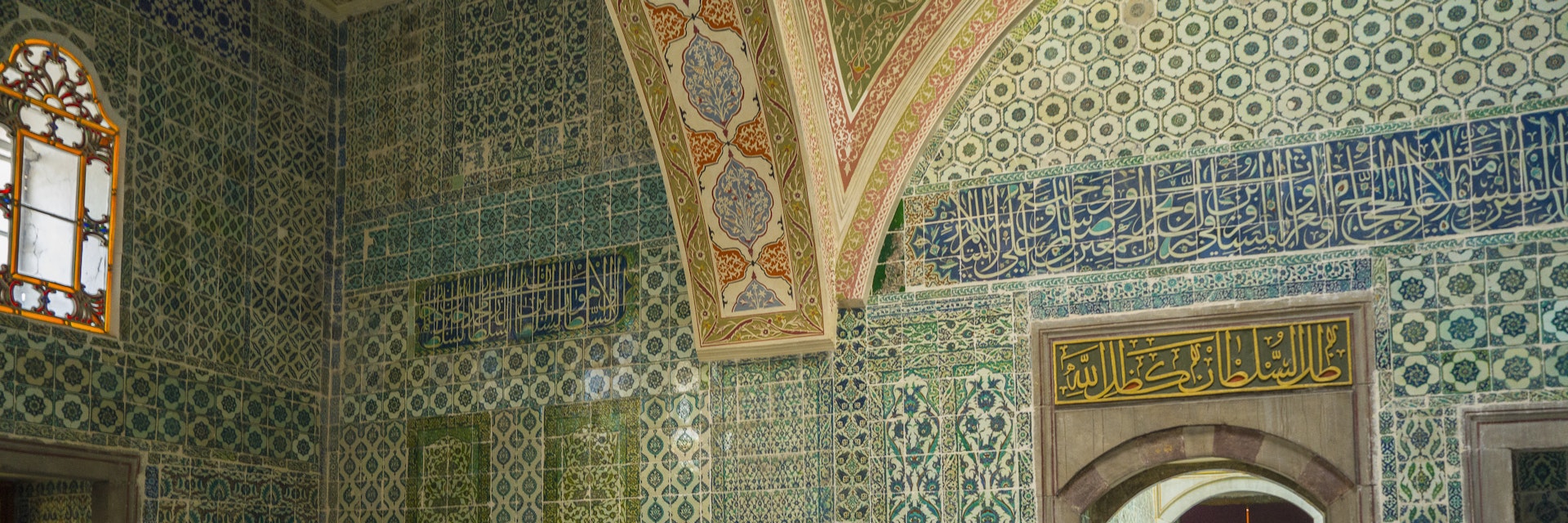
Getty Images
This magical meeting place straddling two continents has more top-notch attractions than it has minarets (and that's a lot).
Best Time to Visit
Best things to do, attractions, must-see attractions.
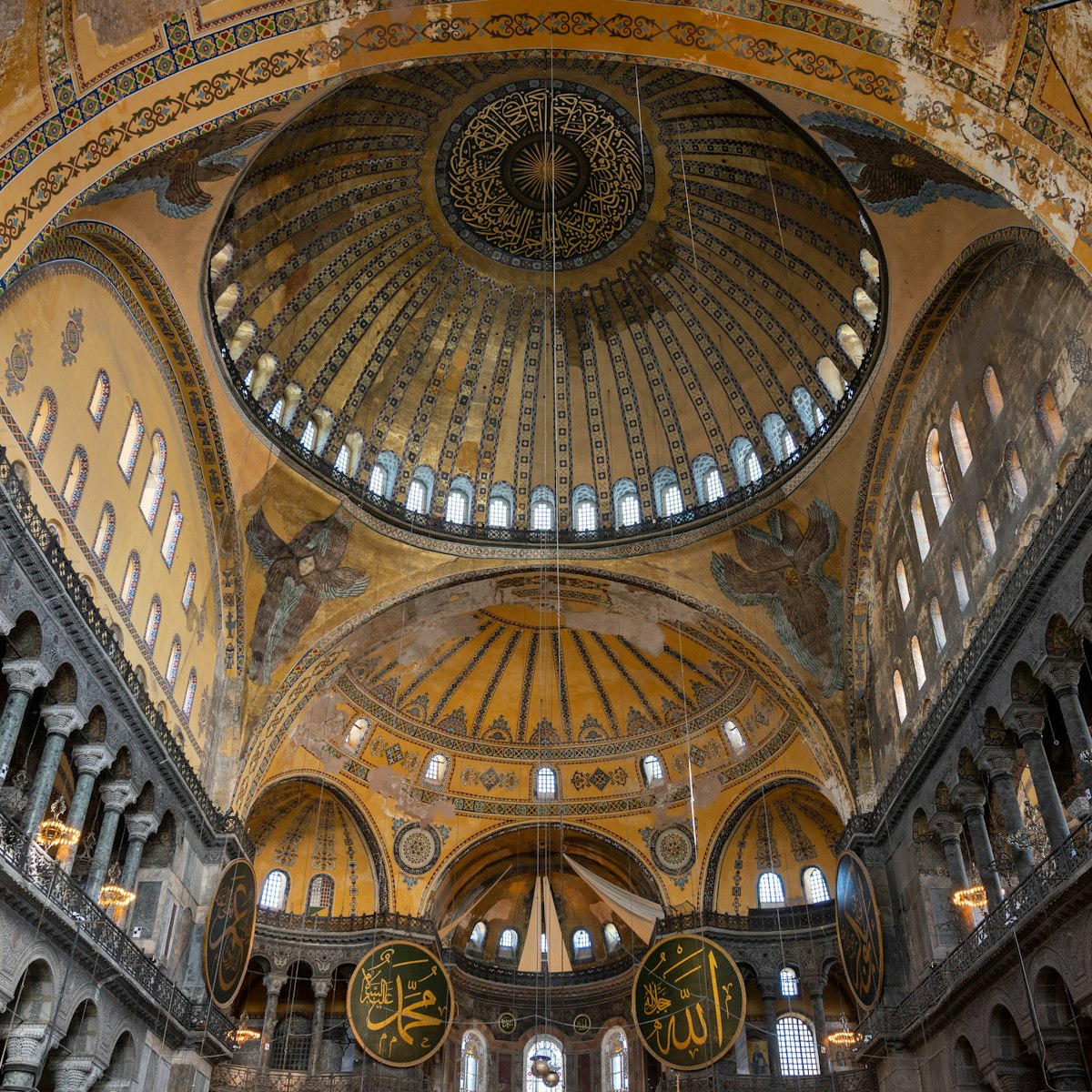
Hagia Sophia Grand Mosque
Sultanahmet
Right in the heart of İstanbul’s historic center, this sacred Byzantine building remains an important symbol of power.
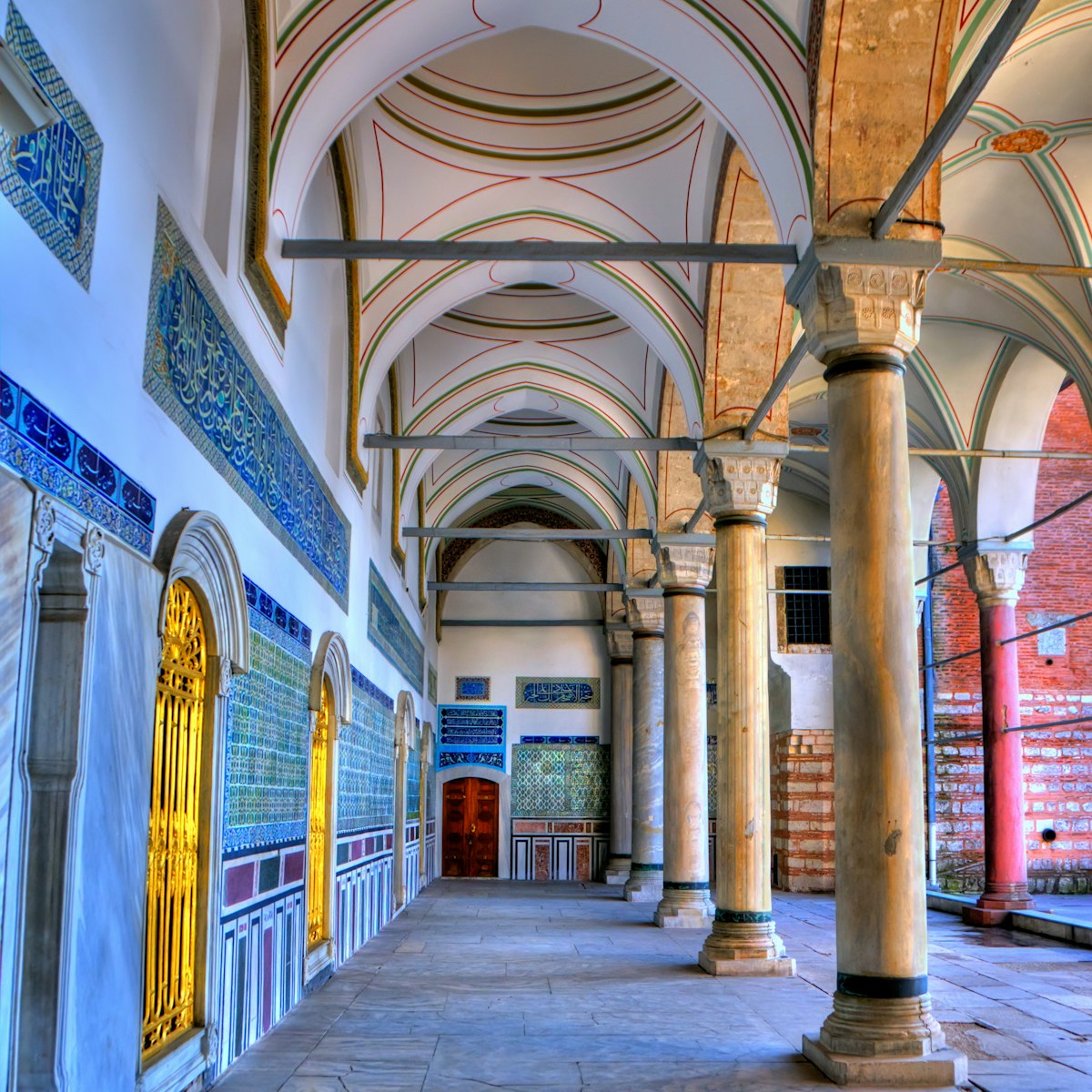
Topkapı Palace
Topkapı is the subject of more colourful stories than most of the world's museums put together. Libidinous sultans, ambitious courtiers, beautiful…
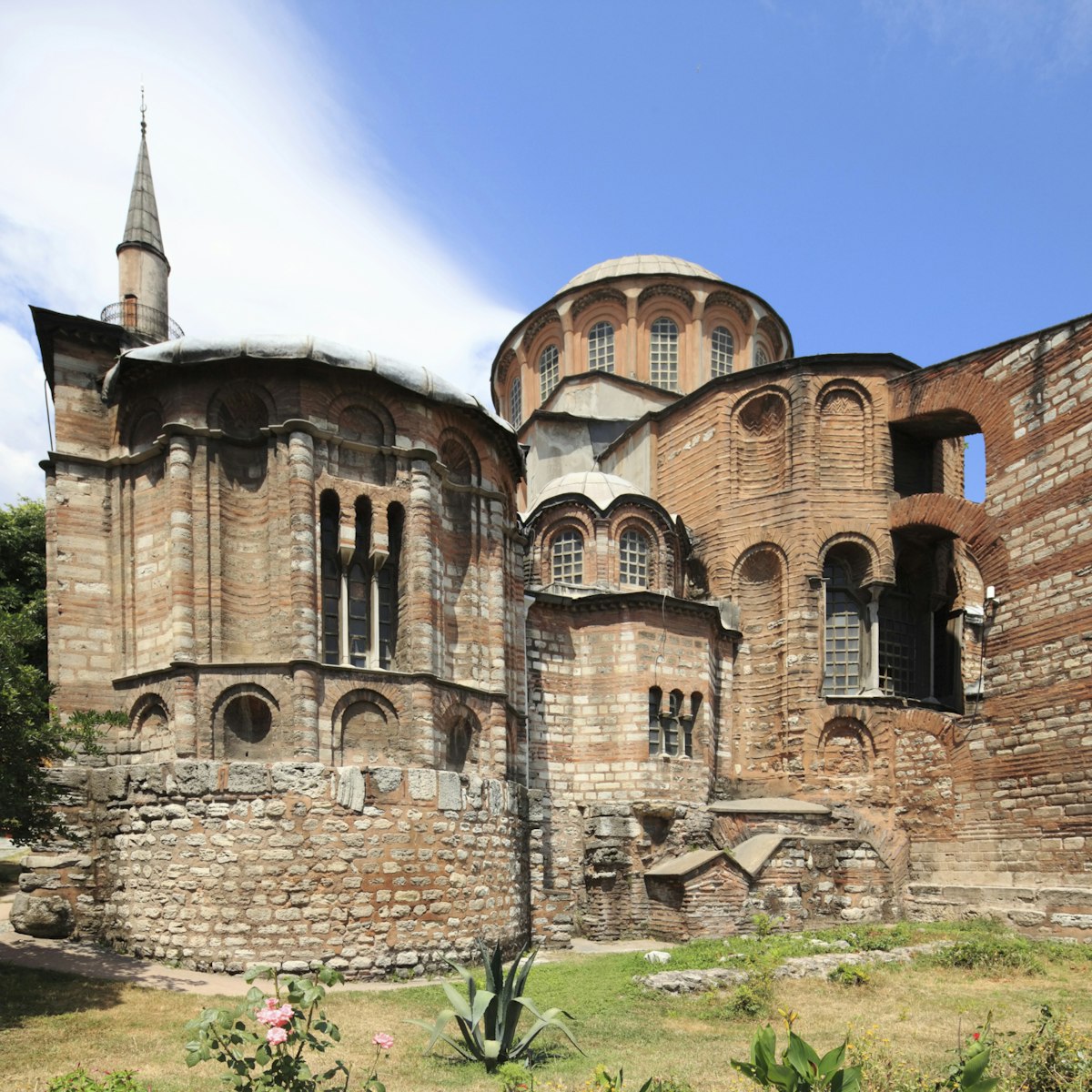
Kariye Mosque
İstanbul has more than its fair share of Byzantine monuments, but few are as drop-dead gorgeous as this mosaic- and fresco-laden church. Nestled in the…
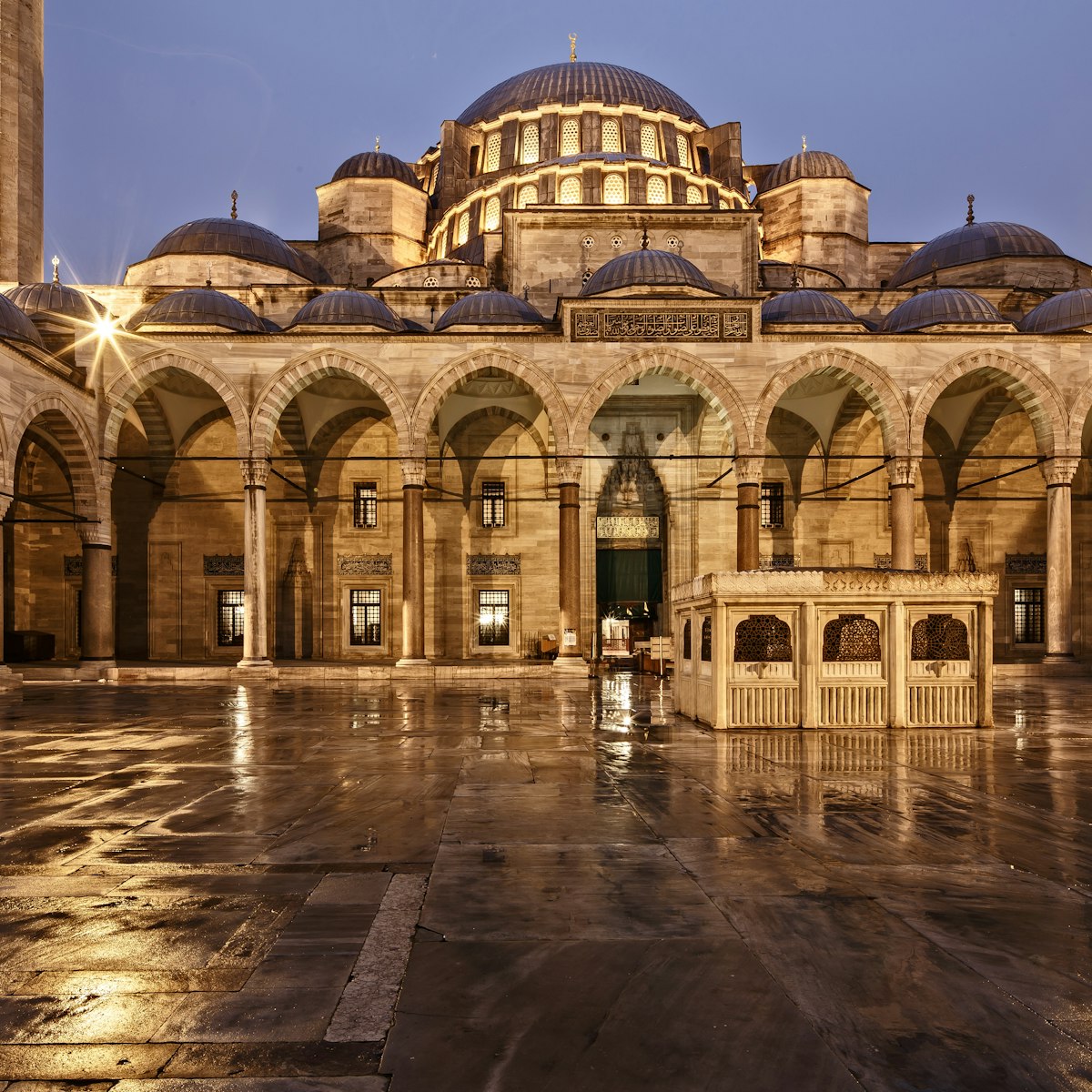
Süleymaniye Mosque
The Süleymaniye crowns one of İstanbul's seven hills and dominates the Golden Horn, providing a landmark for the entire city. Though it's not the largest…
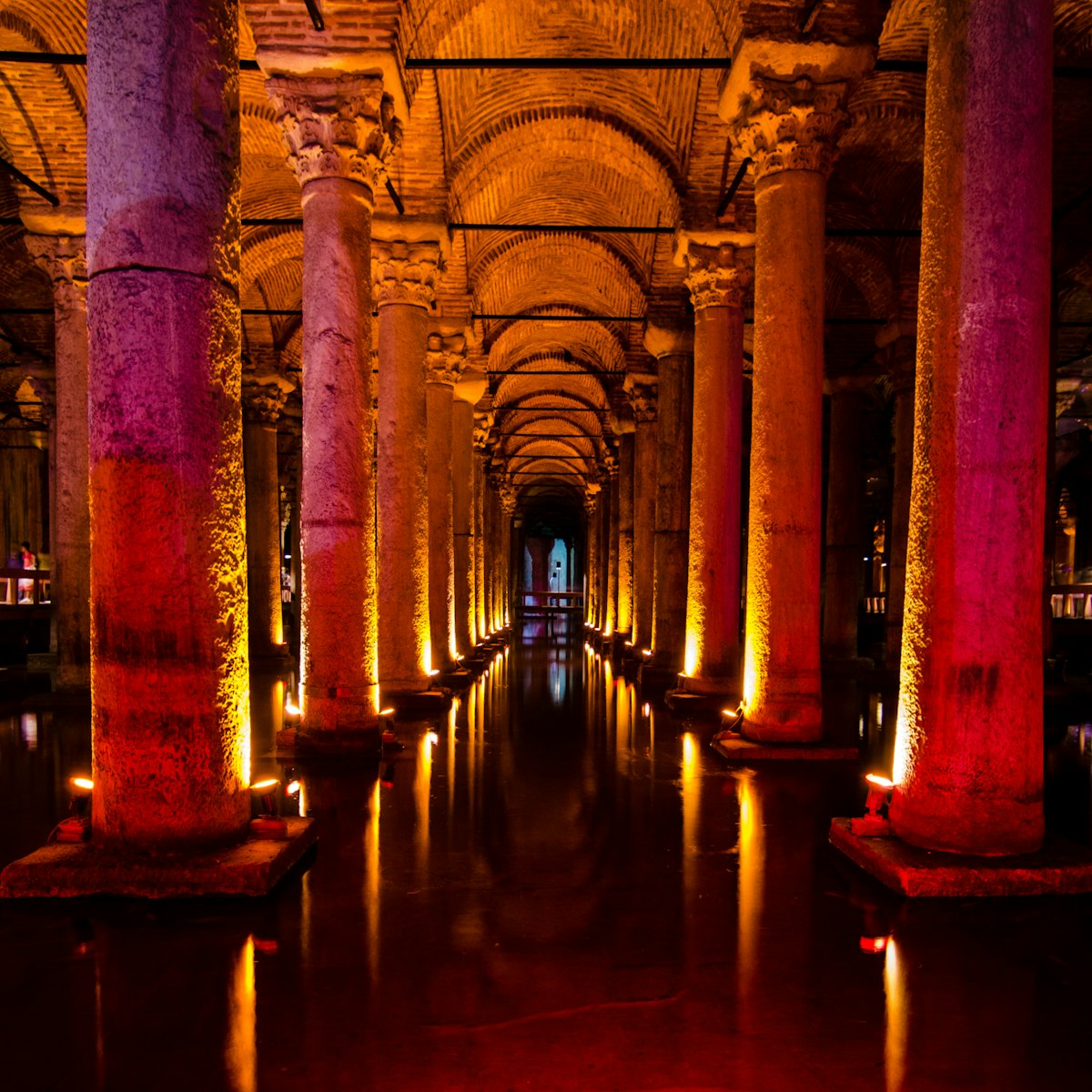
Basilica Cistern
This subterranean structure was commissioned by Emperor Justinian and built in 532. The largest surviving Byzantine cistern in İstanbul, it was…
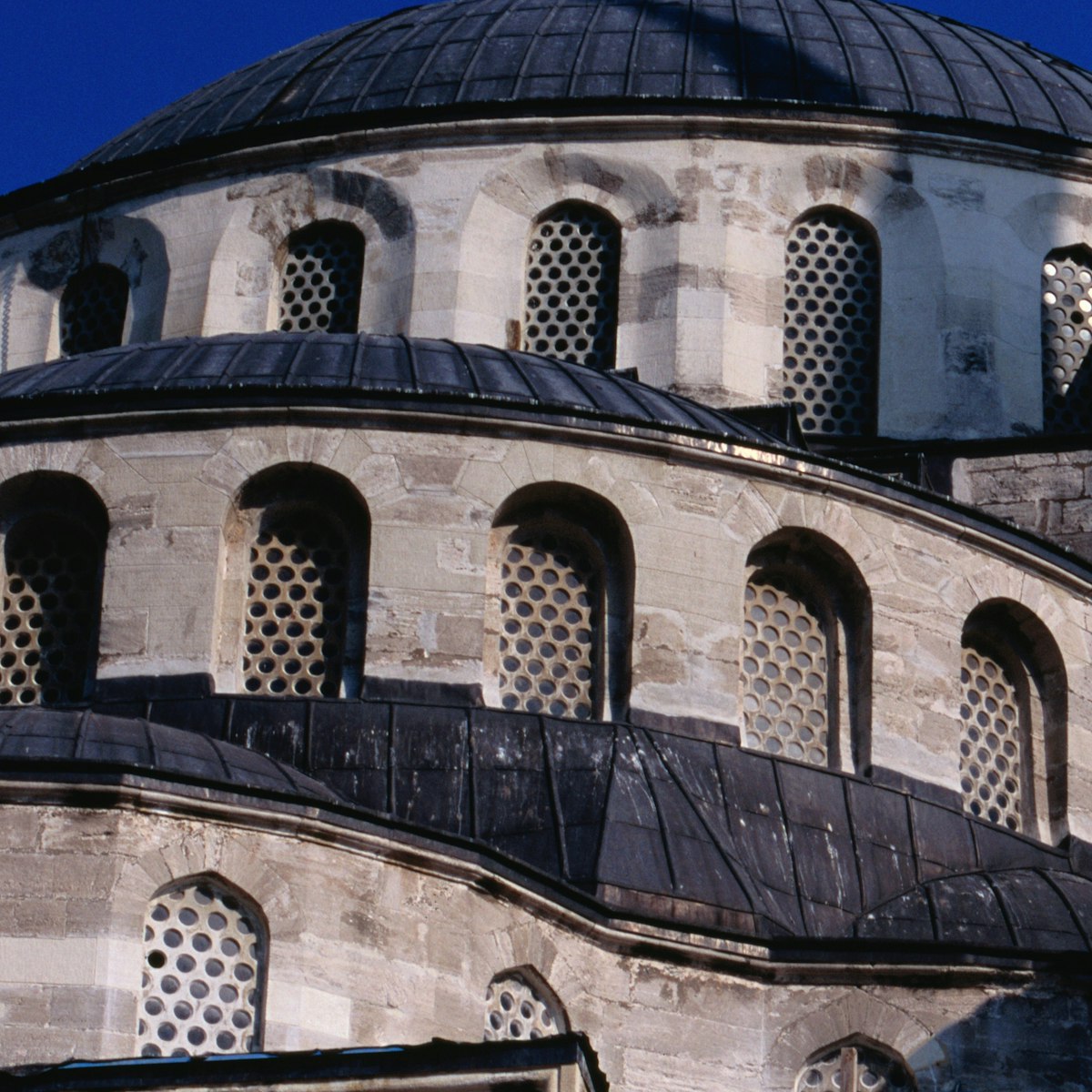
Blue Mosque
İstanbul's most photogenic building was the grand project of Sultan Ahmet I (r 1603–17), whose tomb is located on the north side of the site facing…
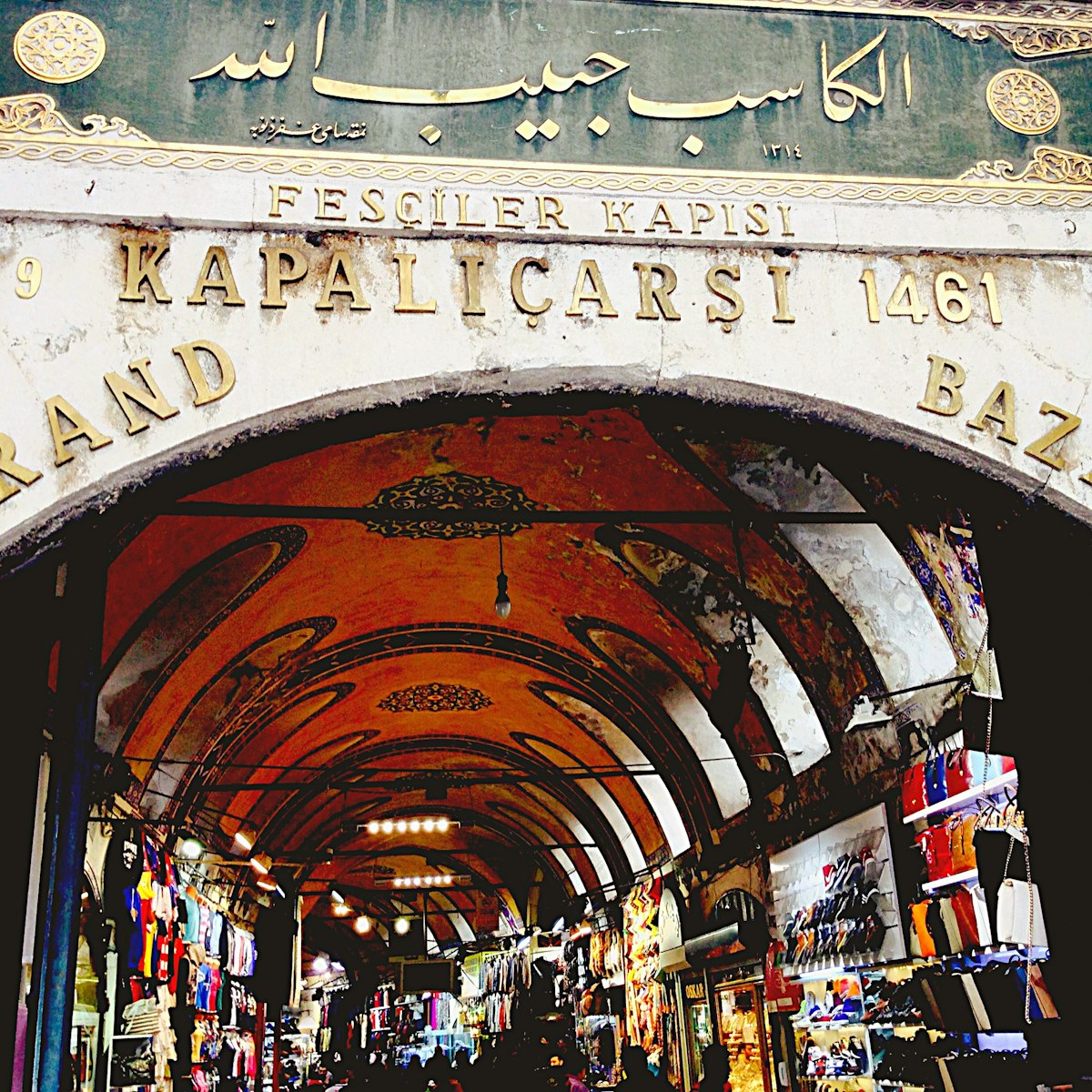
Grand Bazaar
The colourful and chaotic Grand Bazaar is the heart of İstanbul's Old City and has been so for centuries. Starting as a small vaulted bedesten (warehouse)…

Pera Museum
There's plenty to see at this impressive museum, but its major draw is undoubtedly the 2nd-floor exhibition of paintings featuring Turkish Orientalist…
Top picks from our travel experts
14 must-do things on your trip to istanbul.

Pierre Loti Café
Many visitors head to this hilltop cafe after visiting the Eyüp Sultan Mosque. Named for the famous French novelist who is said to have come here for…
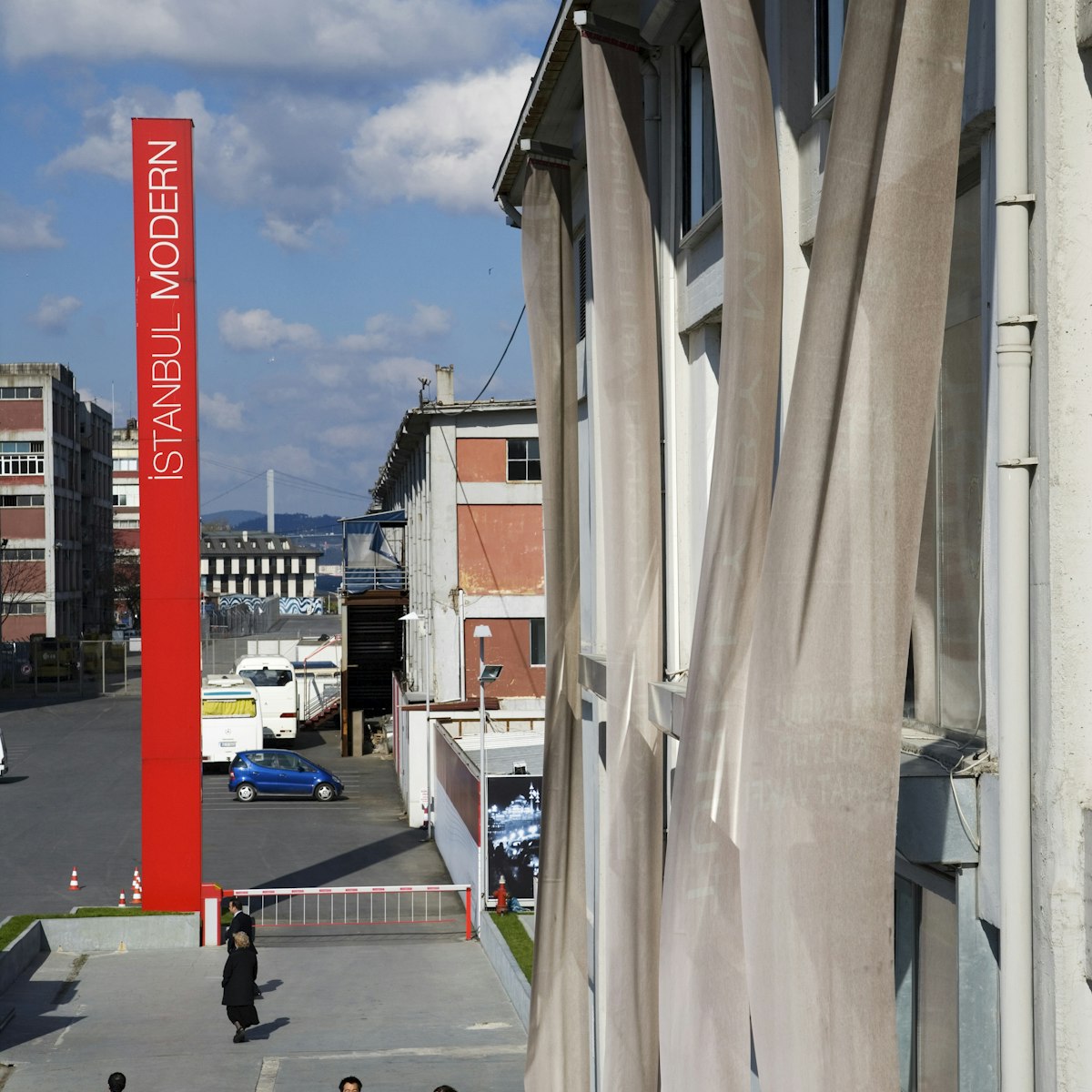
İstanbul Modern
This lavishly funded and innovative museum has an extensive collection of Turkish art and also stages a constantly changing and uniformly excellent…

SALT Beyoğlu
With a brief to explore critical and timely issues in visual and material culture, the İstiklal branch of the SALT cultural centre is one of the city's…
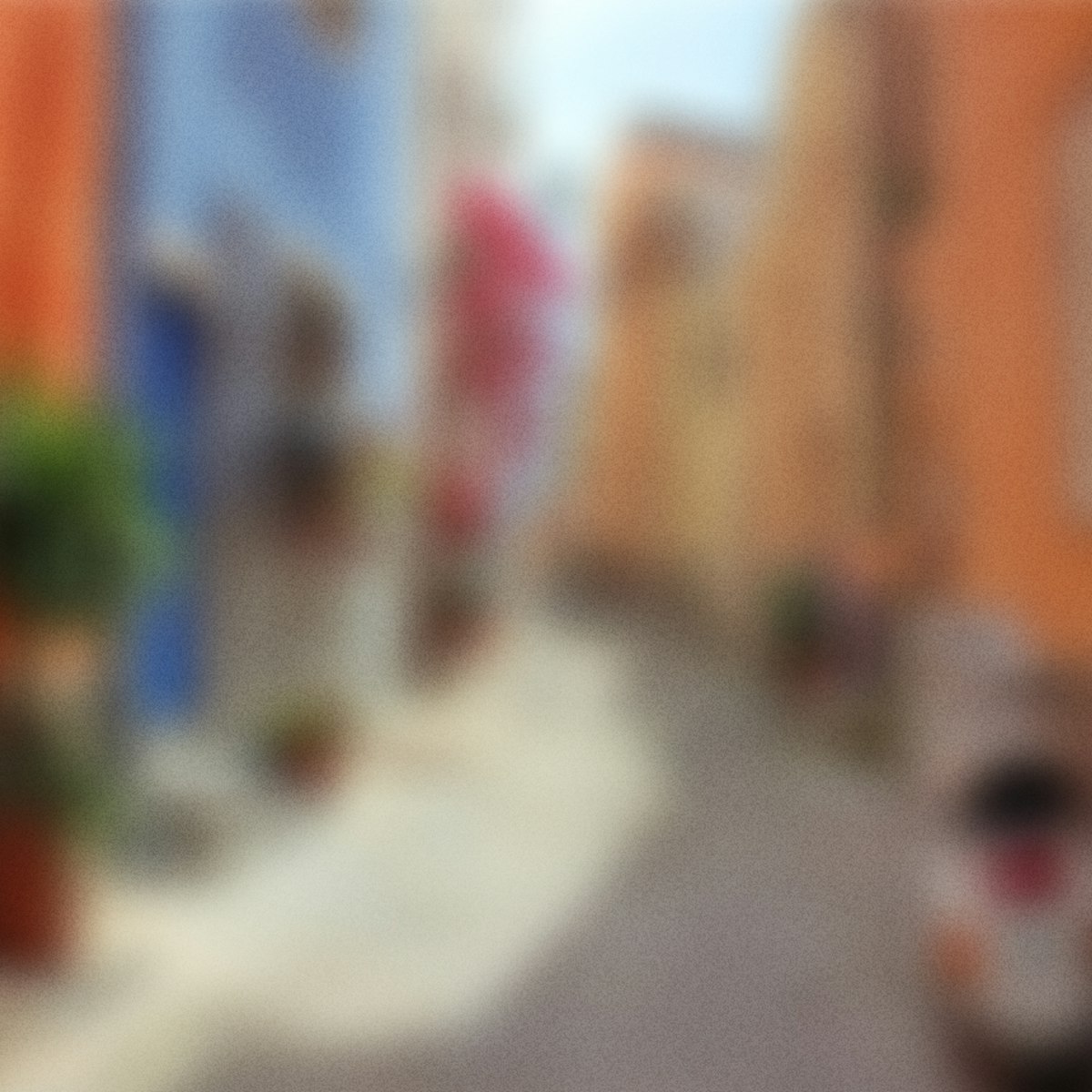
Kılıç Ali Paşa Hamamı
It took seven years to develop a conservation plan for this 1580 Mimar Sinan–designed building and complete the meticulous restoration. Fortunately, the…

Ayasofya Hürrem Sultan Hamamı
This meticulously restored twin hamam dating to 1556 offers the most luxurious traditional bath experience in the Old City. Designed by Mimar Sinan, it…
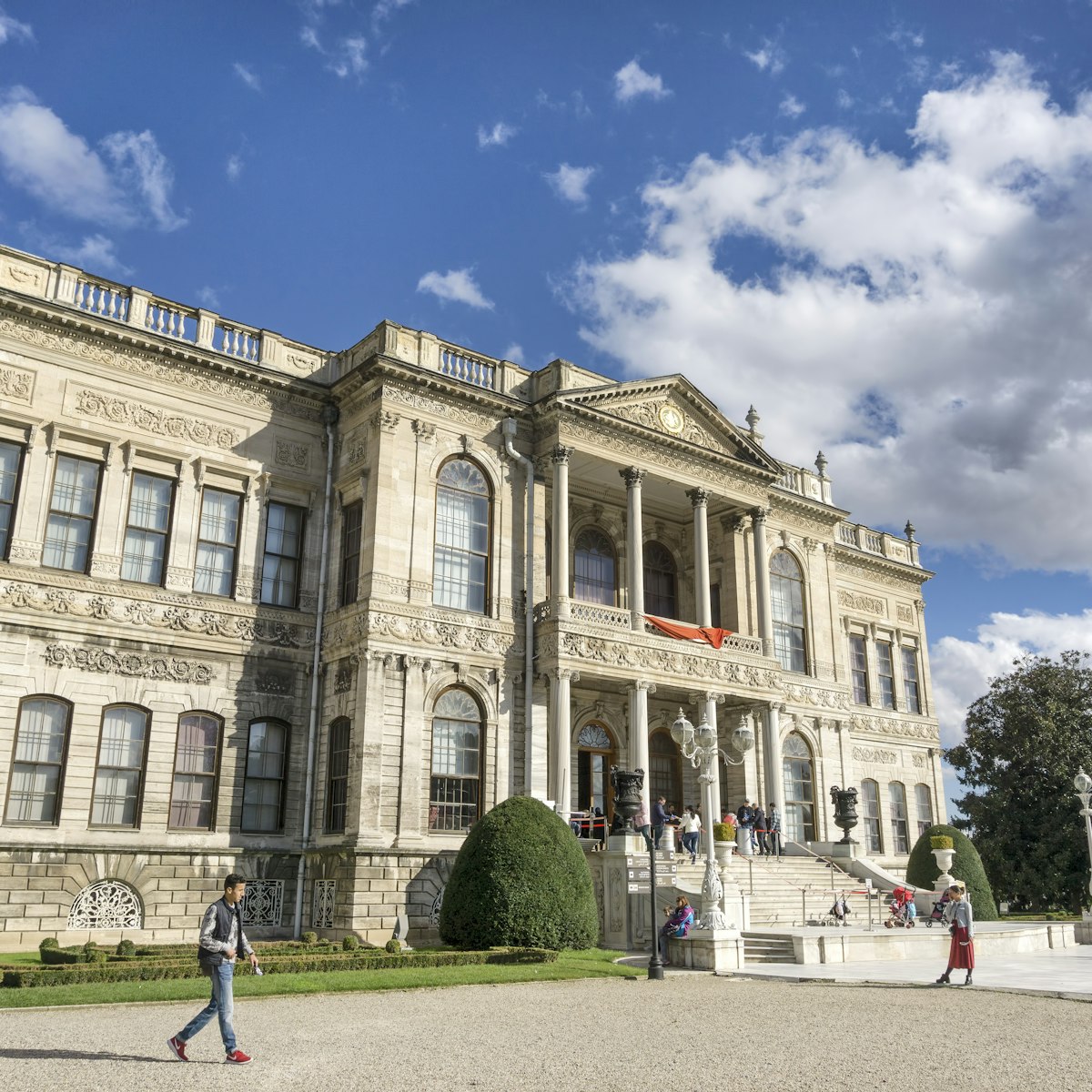
Dolmabahçe Palace
The Bosphorus Suburbs
These days it’s fashionable for architects and critics influenced by the less-is-more aesthetic of Bauhaus masters to sneer at buildings such as…

Beşiktaş Çarşı
The beating heart of Beşiktaş, this bustling backstreet area packed with shops, restaurants, bars, cafes – and the neighbourhood’s youthful crowd – is…
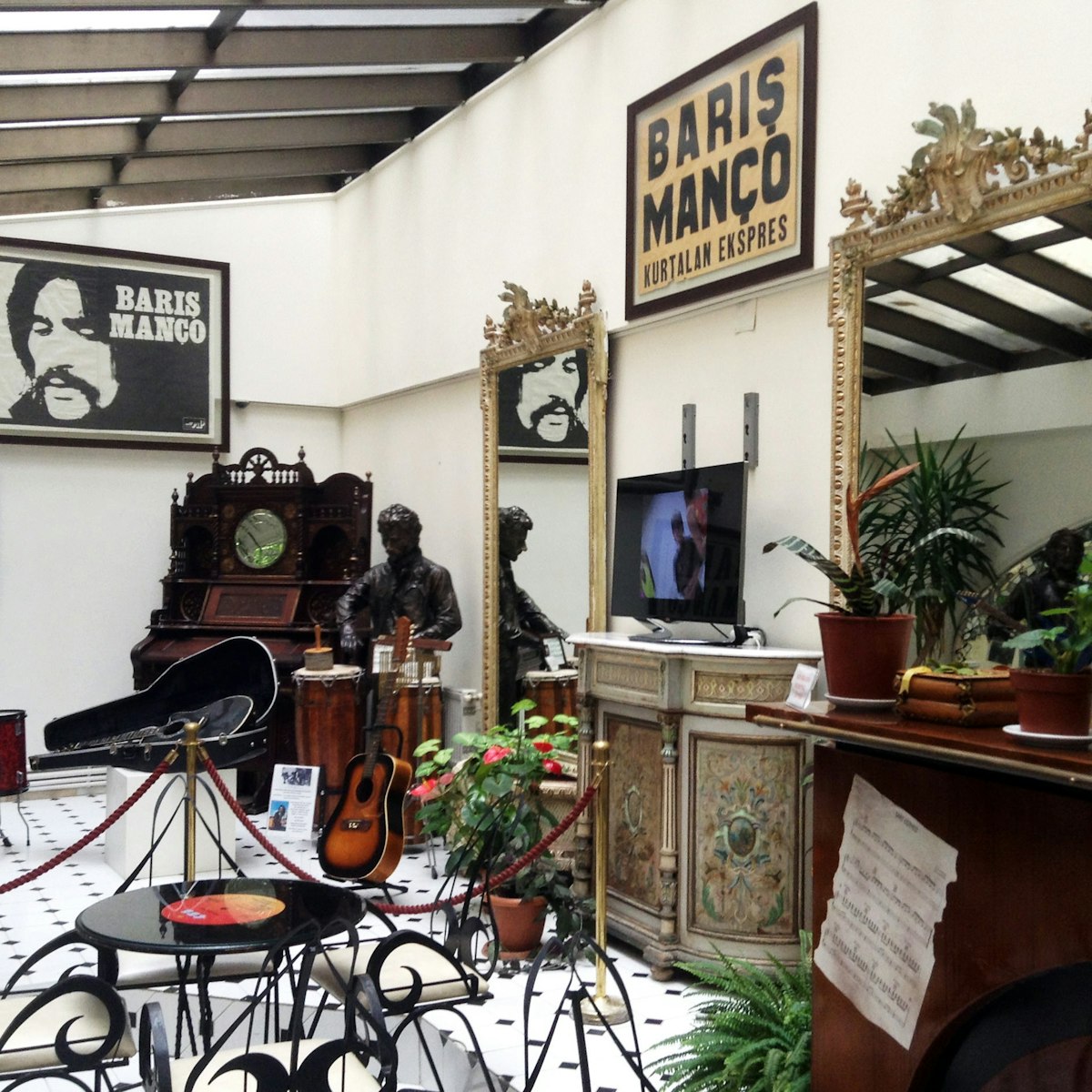
Barış Manço House
One of the pioneering musicians who mixed rock sounds with traditional Turkish folk music to establish the Anatolian rock genre in the 1960s and 1970s,…

İstiklal Caddesi
Once called the Grand Rue de Pera but renamed İstiklal (Independence) in the early years of the Republic, Beyoğlu's premier boulevard is a perfect…
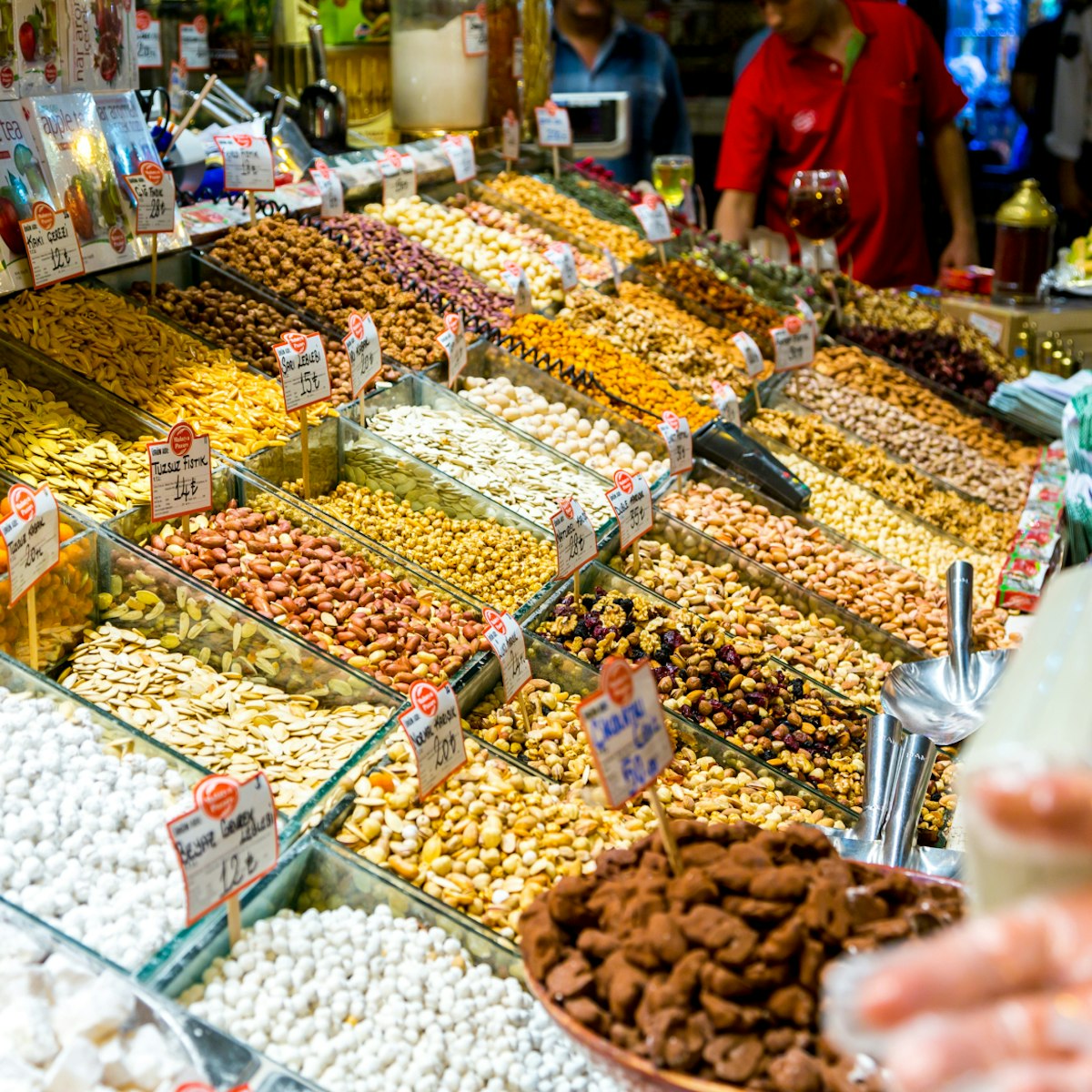
Kadıköy Produce Market
An aromatic, colourful and alluring showcase of the best fresh produce in the city, the Kadıköy Pazarı is foodie central for locals and is becoming an…

Meshur Dondurmacı Ali Usta
Weekend and summer-night saunters down Moda Caddesi wouldn't be the same without a cone of the dondurma (ice cream) produced by the five brothers who…
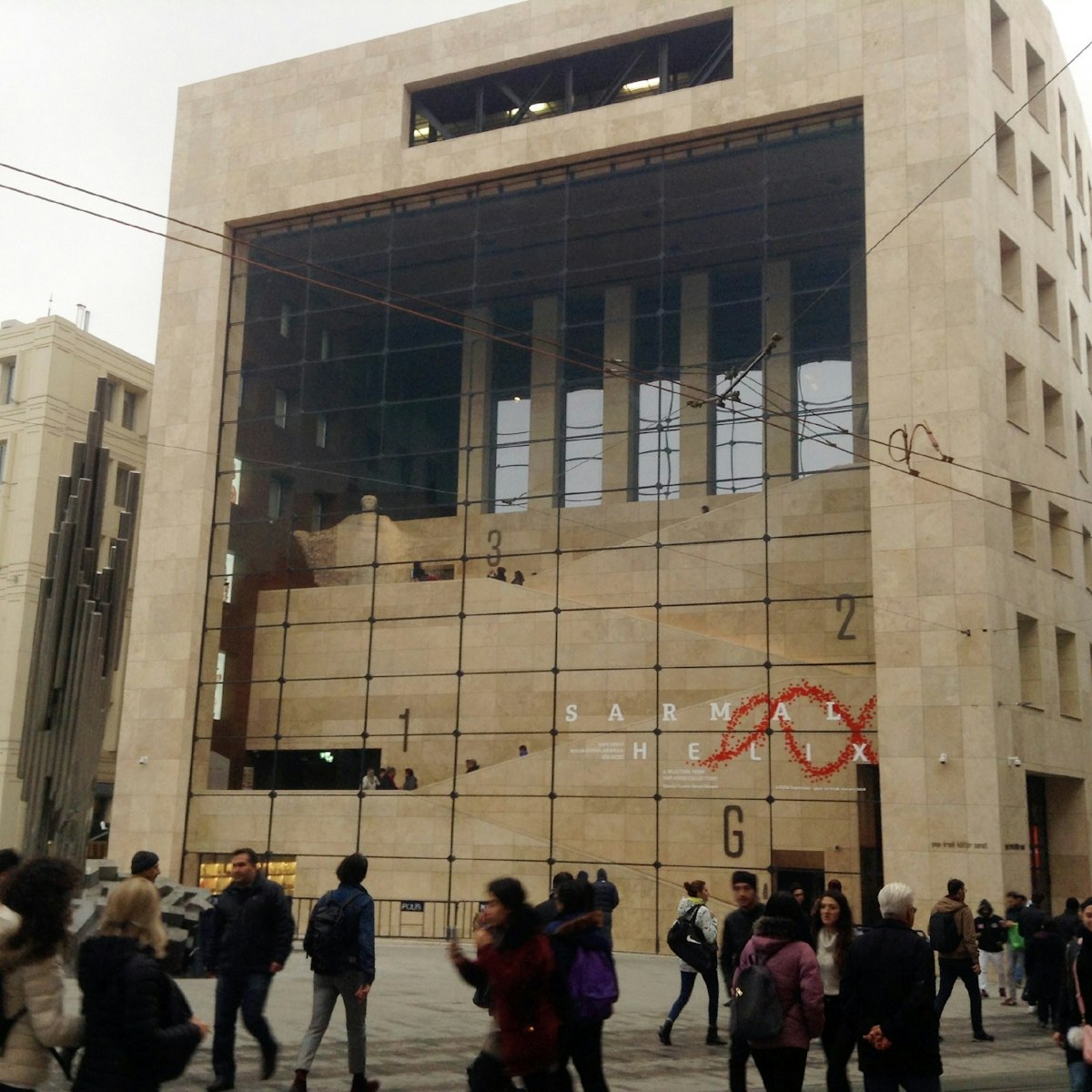
Yapı Kredi Kültür Sanat
Towering over Galatasaray Sq, this sleek cultural centre affiliated with a major Turkish bank stages art exhibitions, hosts classical-music concerts, and…

Spice Bazaar
Vividly coloured spices are displayed alongside jewel-like lokum (Turkish delight) at this Ottoman-era marketplace, providing eye candy for the thousands…
The 25 best things to do in Istanbul that don't cost a thing

Hünkâr Kasrı
Built over a grand archway attached to the New Mosque, this small kasrı (pavilion) or mahfili (loge) dates from the same period and functioned as a…
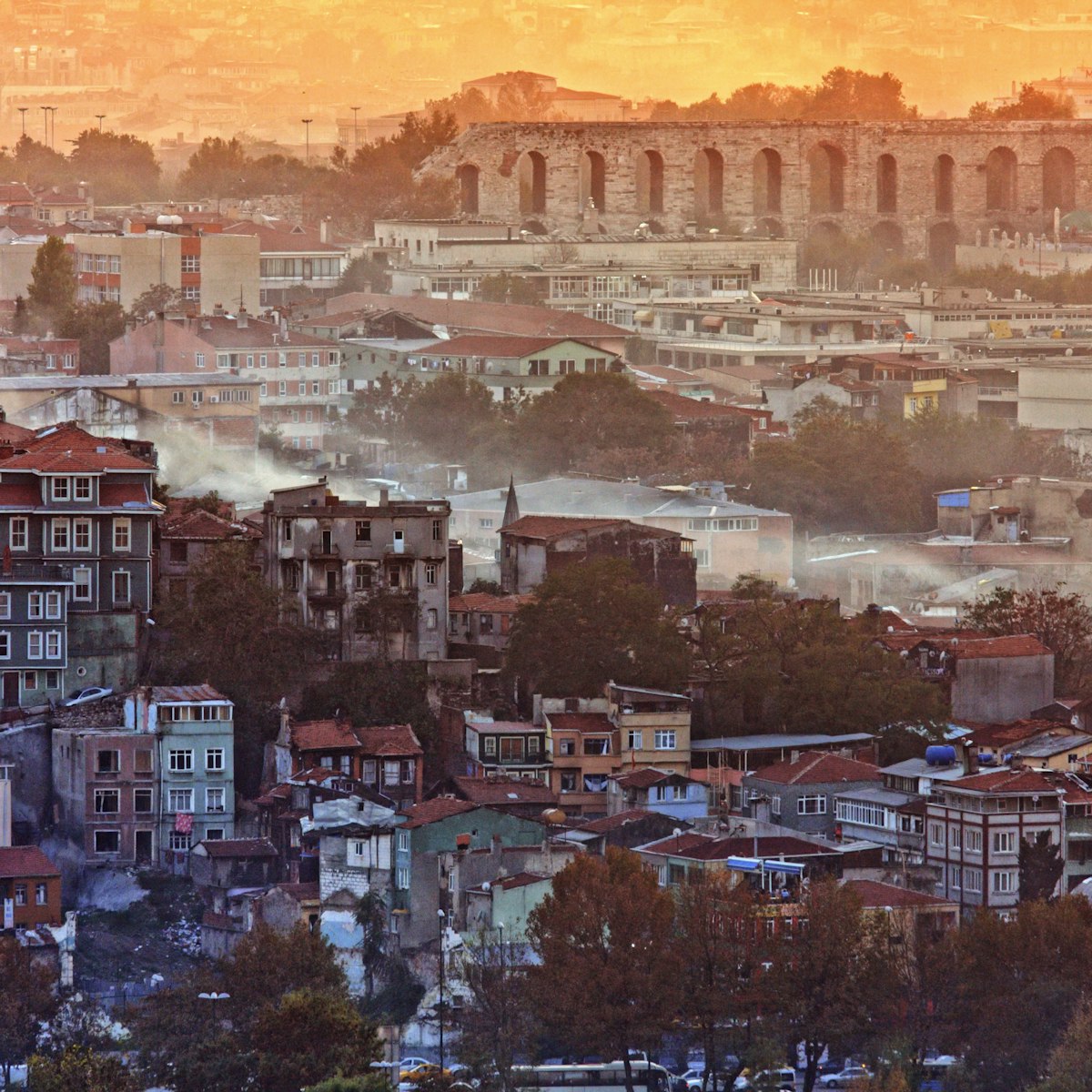
Aqueduct of Valens
Rising majestically over the traffic on busy Atatürk Bulvarı, this limestone aqueduct is one of the city's most distinctive landmarks. Commissioned by…
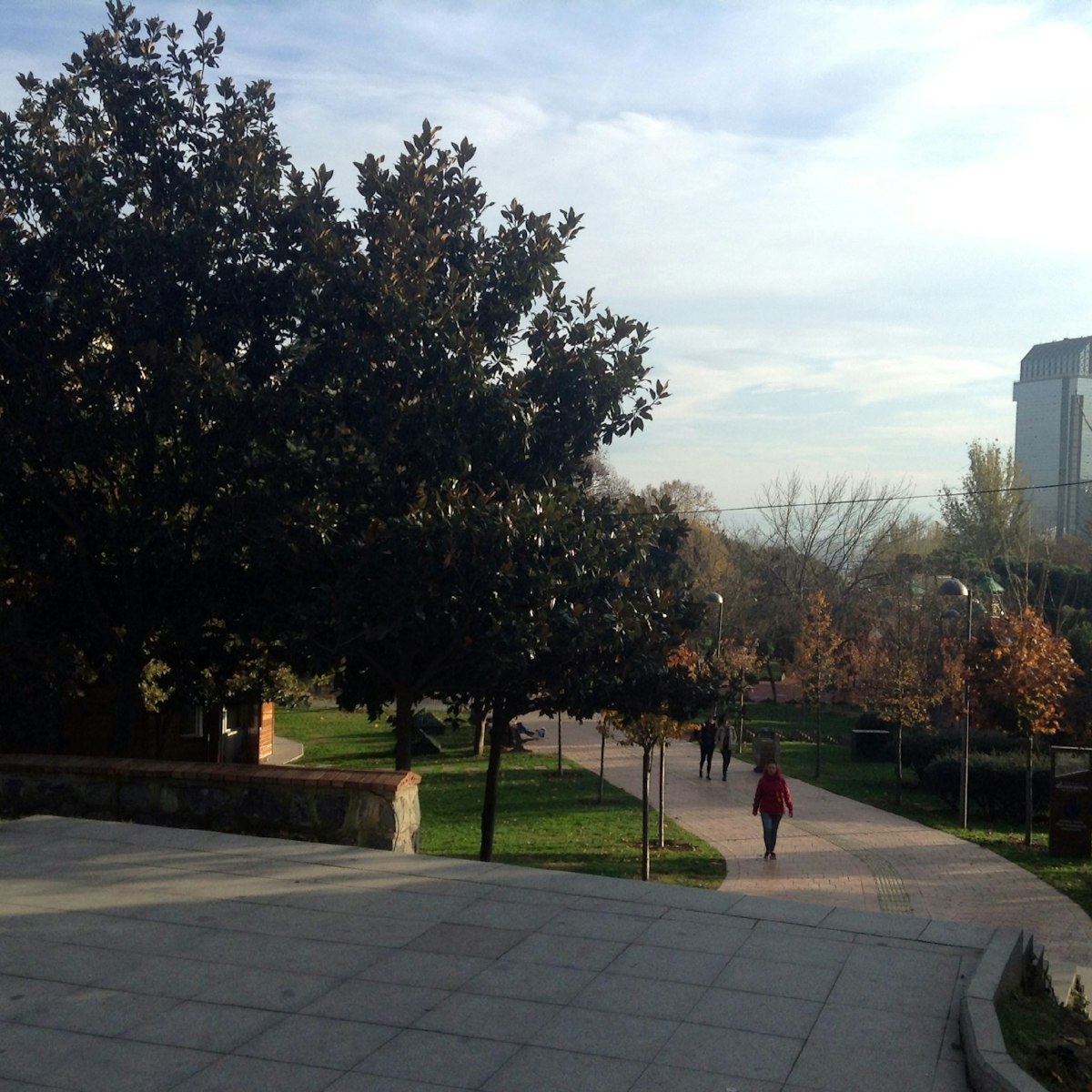
Nişantaşi, Bomonti & Harbiye
On a sunny weekend afternoon, you’ll find this slender green oasis in central İstanbul full of picnicking families, canoodling couples and slackline…

The Byzantine emperors loved nothing more than an afternoon at the chariot races, and this rectangular arena alongside Sultanahmet Park was their venue of…

Turkish Hamam Culture Museum
Constructed by order of the mother of Selim I and one of the wives of Beyazıt II, this now-decommissioned early-16th-century hamam is one of the largest…

SALT Galata
The descriptor 'cultural centre' is used a lot in İstanbul, but is often a misnomer. Here at SALT Galata it really does apply. Housed in a magnificent…

İstanbul Arastırmaları Enstitüsü
Associated with the nearby Pera Museum, this institution incorporates a publicly accessible research library focusing on the cultural and social history…

Beyazıt State Library
Occupying the former imaret (soup kitchen) and kervansaray (caravanserai) of the Beyazıt Mosque's külliye, this library has recently been the subject of a…

The only remaining built section of the Hippodrome hints at how monumental the arena was. The level of galleries that once topped this section was damaged…

Gülhane Park
Gülhane Park was once part of the grounds of Topkapı Palace, accessible only to the royal court. These days crowds of locals come here to picnic under the…
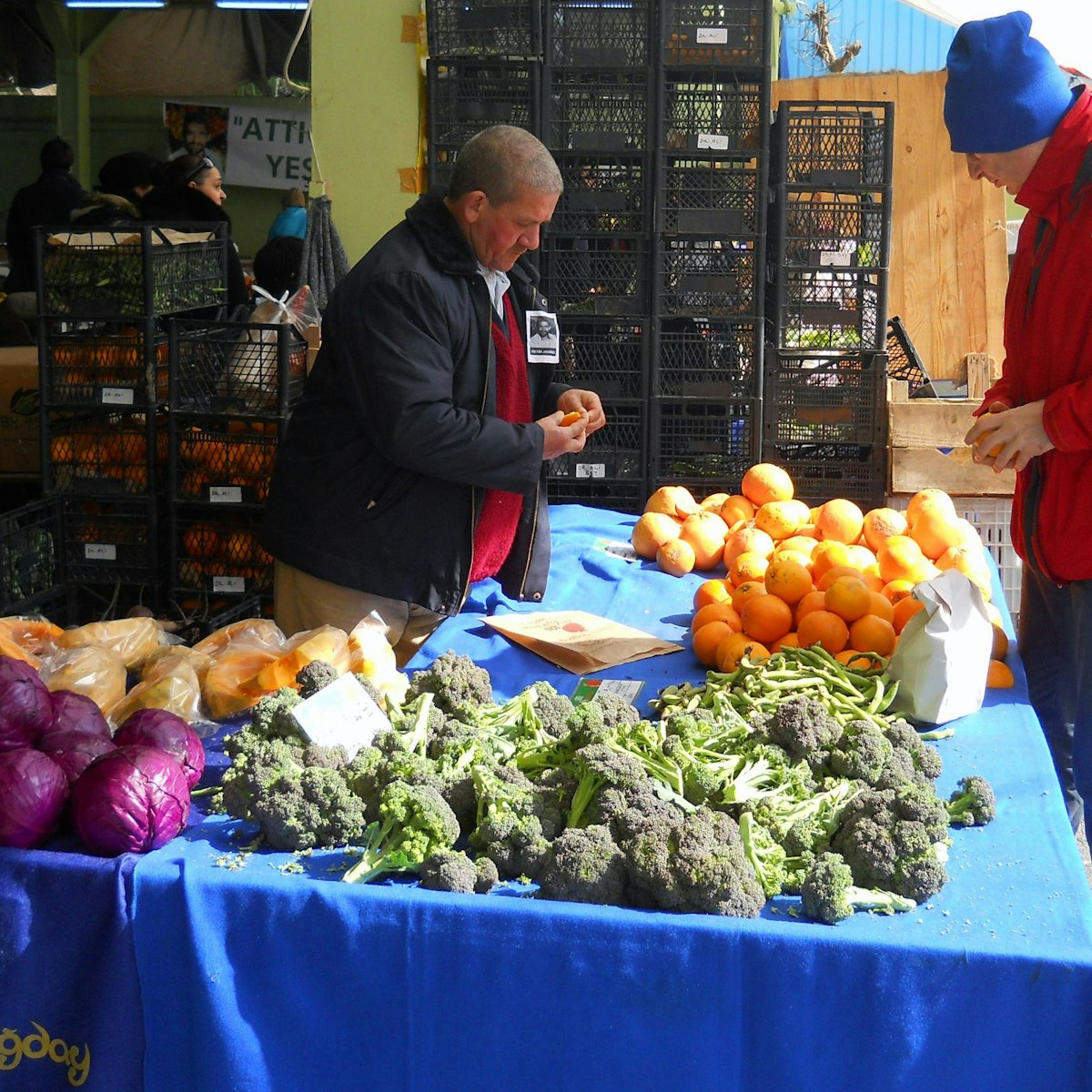
Feriköy Organic Market
Established in 2006 as Turkey’s first ‘100% ecological bazaar’, this bustling Saturday market is still going strong, with hundreds of colourful stalls…

Church of St Stephen of the Bulgars
Known as the 'Iron Church', this distinctive Gothic Revival–style building on the Golden Horn has an extremely beautiful interior, with its gilded iron…
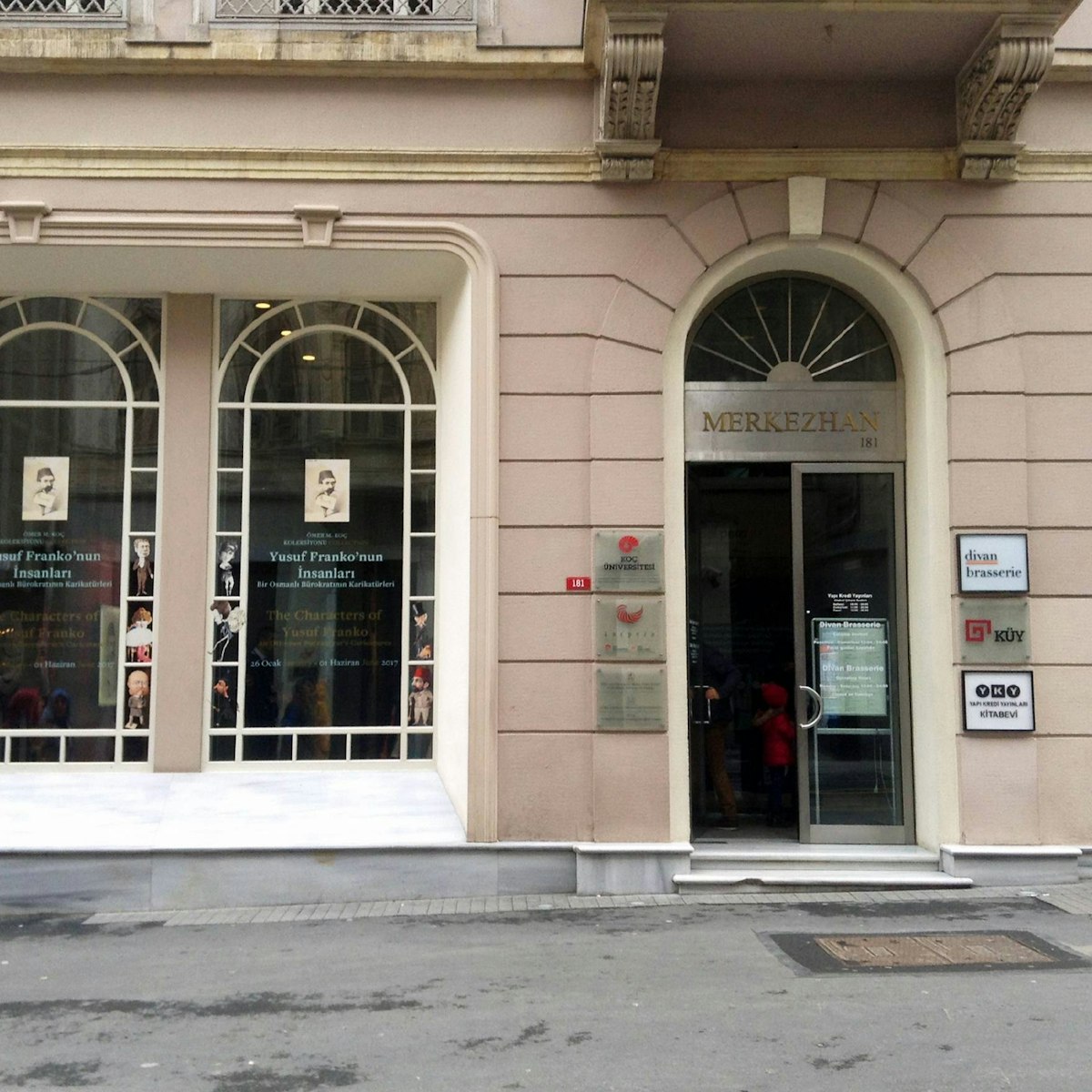
Koç University Research Centre for Anatolian Civilizations
With a wealth of scholarly knowledge and archival photos to draw on, the exhibitions regularly staged on the ground floor of this university-affiliated…

Occupying a former tobacco warehouse, this alternative space is operated by Anadolu Kültür (www.anadolukultur.org), a not-for-profit organisation that…
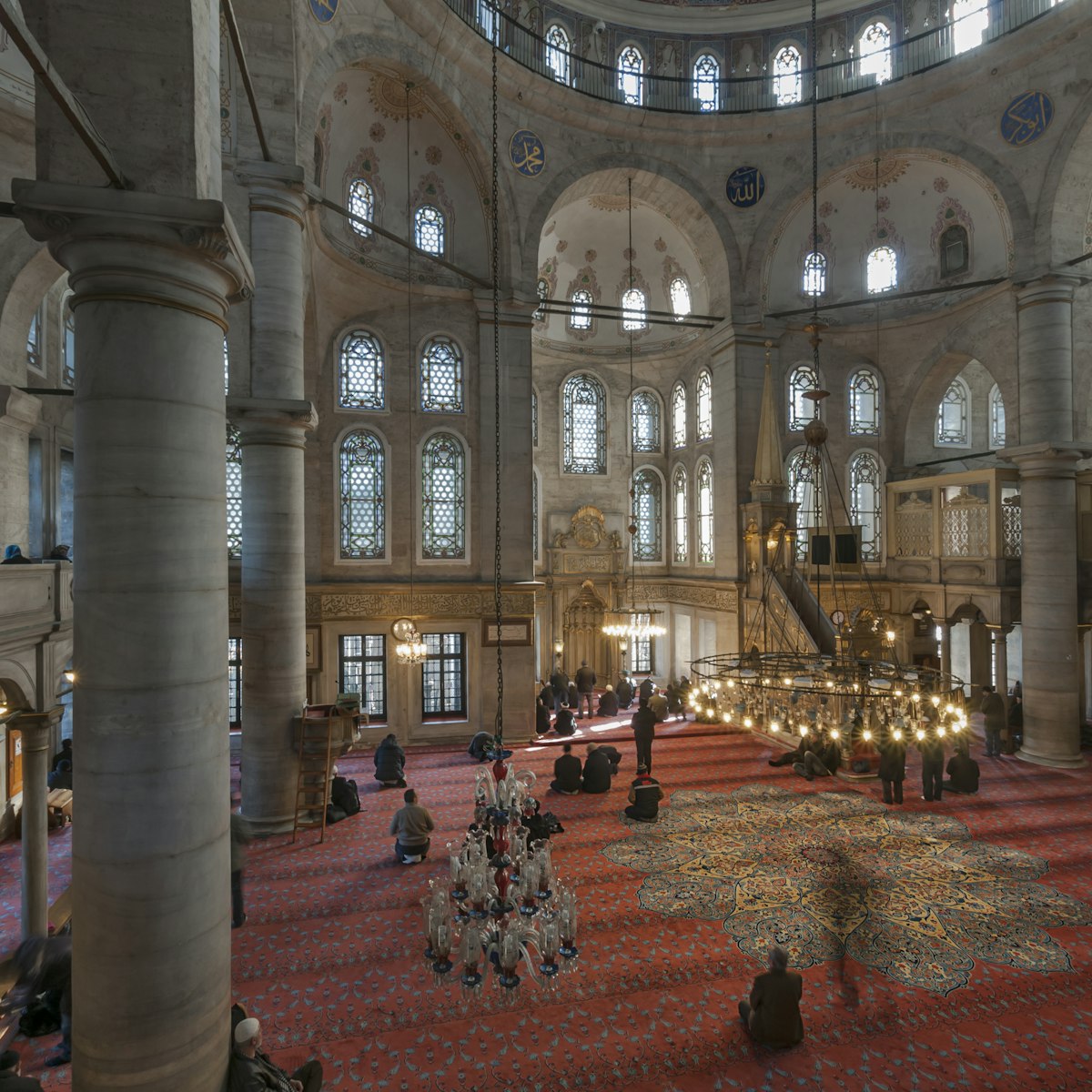
Eyüp Sultan Mosque
This important complex marks the supposed burial place of Ebu Eyüp el-Ensari, a friend of the Prophet who fell in battle outside the walls of…

Rüstem Paşa Mosque
Nestled in the middle of the busy Tahtakale shopping district, this diminutive mosque is a gem. Dating from 1560, it was designed by Sinan for Rüstem Paşa…

Aşiyan Museum
It’s quite a hike up to this small house-museum, named after the Turkish word for ‘bird’s nest’, but the stunning Bosphorus views may well inspire you to…

Women's Bazaar
Though it's a wonderful spot to observe local life, the vibrant Women's Bazaar isn't for the faint-hearted. Freshly slaughtered sheep carcasses swing in…

Akbank Art Centre
Turkey's big banks and philanthropic trusts vie to be seen as the greatest sponsor of the arts. İstiklal is a showcase for their generosity, and with this…

Yıldız Park
This large and leafy retreat is alive with birds, picnicking families and young couples strolling hand in hand. The best time to visit is in April, when…

Wednesday Market
This busy weekly market sells food, clothing and household goods. It's held in the streets behind and to the north of Fatih Mosque.
Planning Tools
Expert guidance to help you plan your trip.
Best Neighborhoods
Explore the distinct neighborhoods of Istanbul with this guide to what to expect in each one.
Take a break from the hustle and bustle of Istanbul with a day trip to nearby beaches, forests and sleepy towns.
Transportation
Istanbul's scale and traffic jams can be daunting to travelers but the city's compact center and transport options make it a breeze if you're in the know.
Free Things to Do
From mosques and markets to art galleries and monuments, some of Istanbul's best sites don't cost a thing.
Plan with a local
Experience the real Turkey
Let a local expert craft your dream trip.
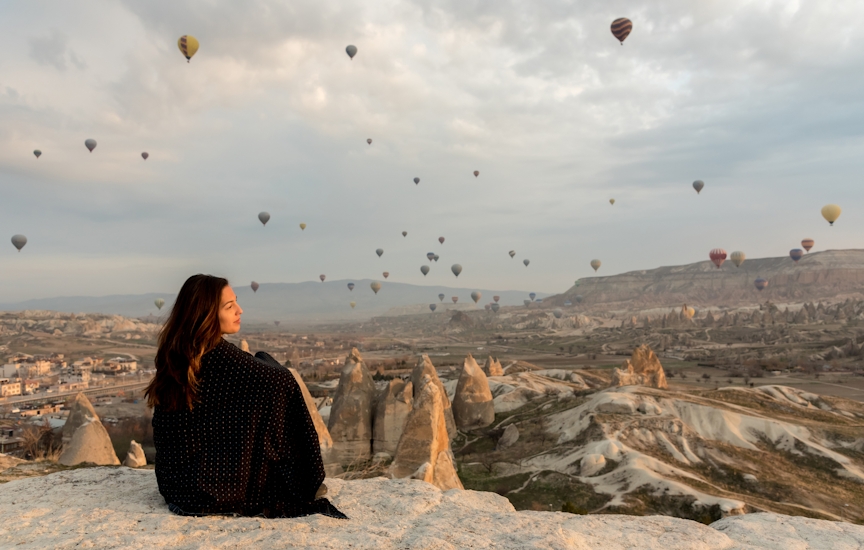
Latest stories from Istanbul
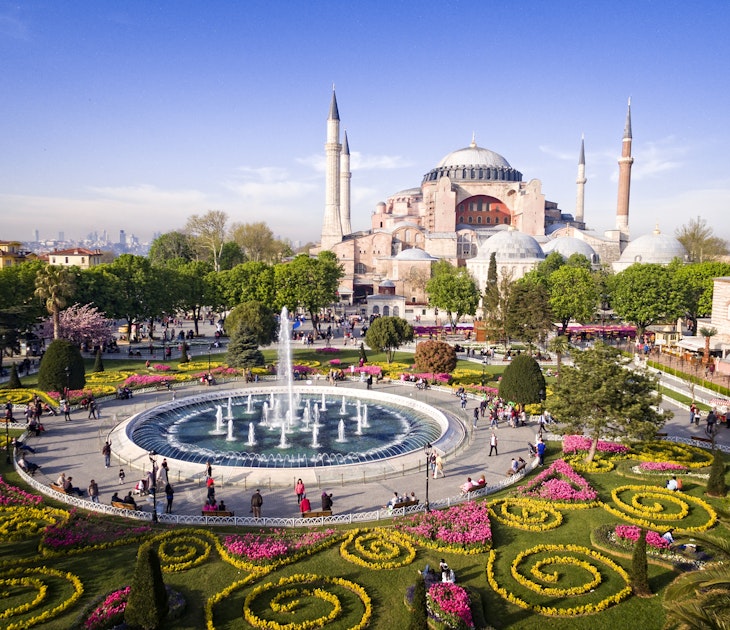
Neighborhoods
May 22, 2024 • 6 min read
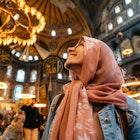
Feb 2, 2024 • 5 min read
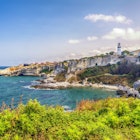
Nov 3, 2023 • 11 min read

Apr 18, 2023 • 8 min read
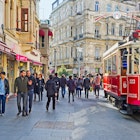
Apr 15, 2023 • 6 min read
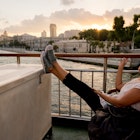
Feb 3, 2023 • 4 min read

Nov 22, 2022 • 2 min read
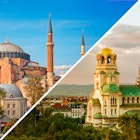
Nov 15, 2022 • 10 min read
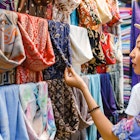
Mar 20, 2022 • 7 min read
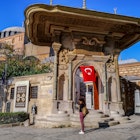
Dec 13, 2021 • 6 min read
in partnership with getyourguide
Book popular activities in Istanbul
Purchase our award-winning guidebooks.
Get to the heart of Istanbul with one of our in-depth, award-winning guidebooks, covering maps, itineraries, and expert guidance.
Istanbul and beyond
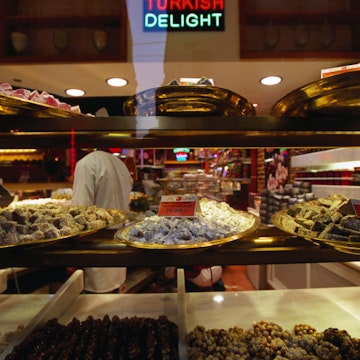
Security Alert May 17, 2024
Worldwide caution, update may 10, 2024, information for u.s. citizens in the middle east.
- Travel Advisories |
- Contact Us |
- MyTravelGov |
Find U.S. Embassies & Consulates
Travel.state.gov, congressional liaison, special issuance agency, u.s. passports, international travel, intercountry adoption, international parental child abduction, records and authentications, popular links, travel advisories, mytravelgov, stay connected, legal resources, legal information, info for u.s. law enforcement, replace or certify documents.
Share this page:
Turkey Travel Advisory
Travel advisory july 26, 2023, turkey - level 2: exercise increased caution.
Reissued with obsolete COVID-19 page links removed.
Exercise increased caution when traveling to Turkey due to terrorism and arbitrary detentions. Some areas have increased risk. Read the entire Travel Advisory.
Do Not Travel To:
- Sirnak province, Hakkari province, and any area within six miles (10 kilometers) of the Syrian border due to terrorism.
Country Summary: Terrorist groups continue plotting possible attacks in Turkey. Terrorists may attack with little or no warning, targeting tourist locations, transportation hubs, markets/shopping malls, local government facilities, hotels, clubs, restaurants, places of worship, parks, major sporting and cultural events, educational institutions, airports, and other public areas.
Security forces have detained tens of thousands of individuals, including U.S. citizens, for alleged affiliations with terrorist organizations based on scant or secret evidence and grounds that appear to be politically motivated. U.S. citizens have also been subject to travel bans that prevent them from departing Turkey. Participation in demonstrations not explicitly approved by the Government of Turkey, as well as criticism of the government (including on social media), can result in arrest.
Read the country information page for additional information on travel to Turkey.
If you decide to travel to Turkey:
- Stay alert in locations frequented by tourists.
- Avoid demonstrations and crowds.
- Stay at hotels with identifiable security measures.
- Monitor local media and be prepared to adjust your plans quickly.
- Enroll in the Smart Traveler Enrollment Program ( STEP ) to receive travel alerts and make it easier to locate you in an emergency.
- Follow the Department of State on Facebook and Twitter .
- Review the Country Security Report for Turkey.
- Visit the CDC page for the latest Travel Health Information related to your travel.
- Prepare a contingency plan for emergency situations. Review the Traveler’s Checklist .
Sirnak Province, Hakkari Province, and Any Area within six miles (ten kilometers) of the Syrian Border – Level 4: Do Not Travel
Do not travel to Sirnak province, Hakkari province, or any area within six miles (10 kilometers) of the Turkey/Syria border due to the continued threat of attacks by terrorist groups, armed conflict, and civil unrest. Terrorist attacks, including suicide bombings, ambushes, car bomb detonations, and improvised explosive devices, as well as shootings, and illegal roadblocks leading to violence have occurred in these areas. U.S. government employees are subject to travel restrictions in the entire provinces of Sirnak and Hakkari, and any areas within 10 km of the Syrian border.
Visit our website for Travel to High-Risk Areas .
Travel Advisory Levels
Assistance for u.s. citizens, search for travel advisories, external link.
You are about to leave travel.state.gov for an external website that is not maintained by the U.S. Department of State.
Links to external websites are provided as a convenience and should not be construed as an endorsement by the U.S. Department of State of the views or products contained therein. If you wish to remain on travel.state.gov, click the "cancel" message.
You are about to visit:

Search Smartraveller

Latest update
Exercise a high degree of caution in Türkiye overall due to the threat of terrorism.
Higher levels apply.
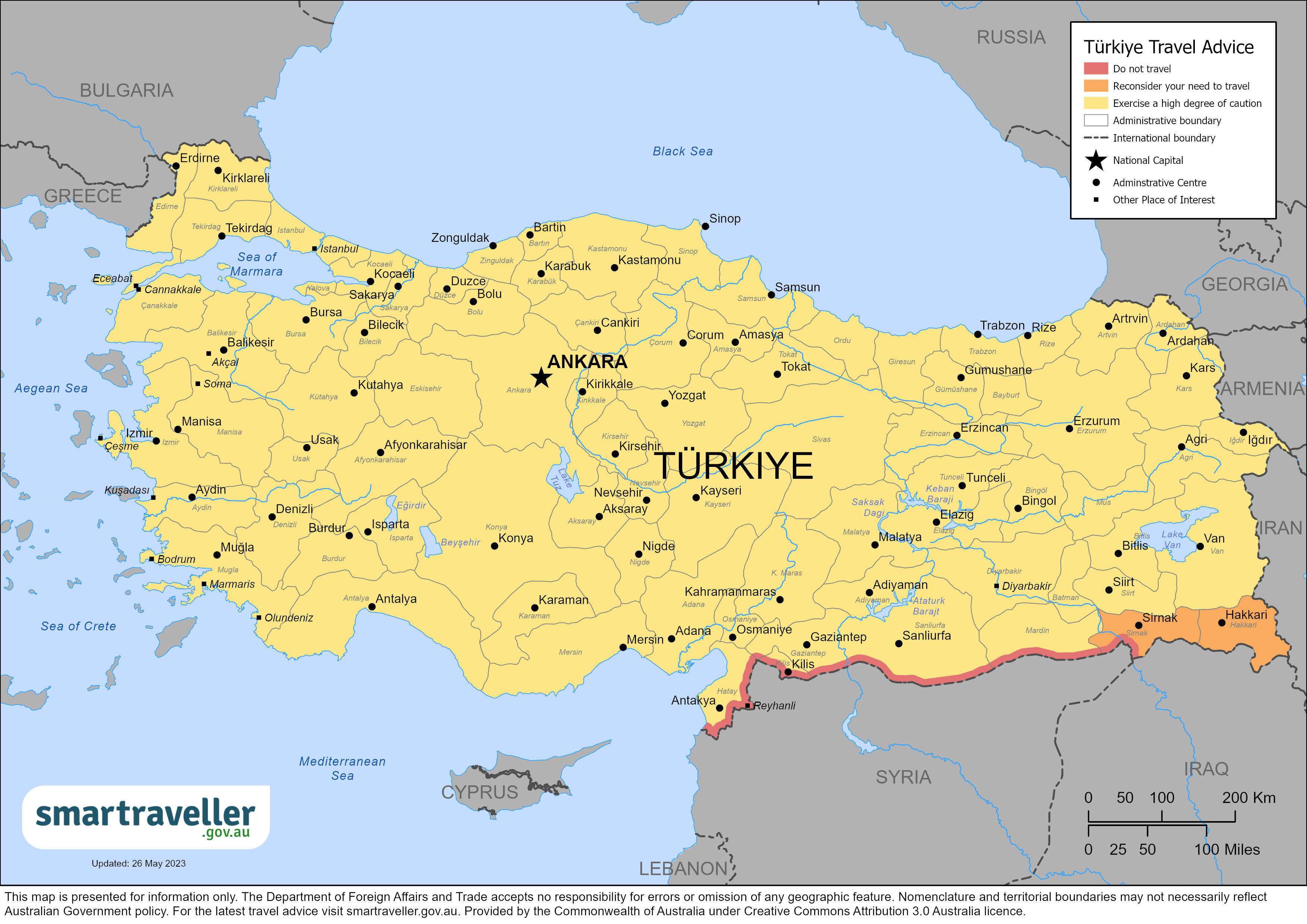
Turkiye (PDF 895.52 KB)
Europe (PDF 2.62 MB)
Local emergency contacts
Fire and rescue services, medical emergencies.
Call 112 or go to the nearest hospital.
In major cities, call 155. English speaking officers aren't always available.
In rural areas, call Jandarma on 156. English speaking officers are rarely available.
English-speaking officers may be available in police departments at:
In Istanbul, call the dedicated Tourist Police unit on (+90) 212 527 4503.
Advice levels
Exercise a high degree of caution in Türkiye overall.
Exercise a high degree of caution in Türkiye overall due to the threat of terrorism.
See Safety .
Do not travel to within 10km of the border with Syria.
Do not travel to within 10km of the border with Syria due to serious threat of terrorism, violence and acts of war in this area.
Reconsider your need to travel to the provinces of Hakkari and Sirnak.
Reconsider your need to travel to the provinces of Hakkari and Sirnak due to the unpredictable security situation.
- There's an ongoing high threat of terrorist attacks in Türkiye. Possible targets include tourist areas, transport networks, shopping malls, hotels, places of worship and diplomatic premises. Be alert to potential threats, especially in locations frequented by foreigners. Avoid crowds, keep a low profile and be aware of your surroundings. Monitor the media for updates and follow the advice of local authorities.
- Demonstrations and protests can occur and may turn violent. Avoid protests and large public gatherings. Monitor the media and follow the advice of local authorities.
- There is an ongoing risk of earthquake in parts of Türkiye. Know the dangers of a major earthquake in your area and where your local shelter is.
- There's an increased threat of military and terrorist attacks against Israel and Israeli interests across the region and ongoing military action in the Occupied Palestinian Territories could lead to increased tensions in other locations in the region. Demonstration and protest activity may occur, and localised security situations could deteriorate with little notice. Avoid all demonstrations and protests.
Full travel advice: Safety
- Malaria is a risk from May to October in Amikova, Çukurova Plain and the southeast. Consider taking anti-malarial medication. Other insect-borne diseases include leishmaniasis and Crimean-Congo haemorrhagic fever. Ensure your accommodation is insect-proof. Use insect repellent.
- Foodborne, waterborne and other infectious diseases include tuberculosis, typhoid, hepatitis, measles and rabies. Drink only boiled or bottled water. Avoid raw or undercooked foods.
- Alcoholic drinks could be mixed with toxic substances, including methanol. Drink only at reputable venues. Avoid homemade alcohol. Get medical help straight away if you suspect poisoning.
Full travel advice: Health
- Don't use or carry illegal drugs. Penalties for drug offences are severe and include long prison sentences.
- By law, you must always carry a photo ID. You should carry your passport with you at all times.
- It's illegal to 'insult' Türkiye, the Turkish flag, the President or government, and the country's founder, Mustafa Kemal Atatürk. Don't make insulting comments, including on social media.
- It's illegal to photograph military sites.
- Many parts of Türkiye have conservative dress and behaviour standards. Dress modestly, particularly at mosques and shrines. Respect religious and social traditions. Avoid public displays of affection.
Full travel advice: Local laws
You'll need an e-visa for tourism or business if you're staying for less than 90 days in a 180-day period.
- If you're travelling to Türkiye for medical services, you should apply for a medical visa through the HealthTürkiye online portal.
- Entry and exit conditions can change at short notice. Contact the nearest embassy or consulate of Türkiye for the latest details.
Full travel advice: Travel
Local contacts
- The Consular Services Charter details what the Australian Government can and can't do to help you overseas.
- For consular help, contact the Australian Embassy in Ankara , the Australian Consulate in Istanbul, or the Australian Consulate in Canakkale.
- To stay up to date with local information, follow the embassy’s social media accounts.
Full travel advice: Local contacts
Full advice
There's an ongoing high threat of terrorist attacks in Türkiye.
Most terrorist attacks have taken place in the southeast of the country, Ankara or Istanbul.
Attacks could take place anywhere and at any time, including in places visited by foreigners. Possible targets include:
- tourist sites
- public transport and transport hubs
- markets/shopping malls
- government facilities
- diplomatic premises
- hotels, clubs, restaurants
- places of worship
- courts and the judiciary
- political parties
- major sporting and cultural events
- educational institutions
Terrorists have also previously targeted Western interests and places associated with the Turkish security forces, such as military barracks and police vehicles.
Previous methods of attack have included armed assaults, suicide bombings, car bombings, rocket attacks, arson, and improvised explosive devices left in garbage bins, crowded areas, shops, and public transport.
To protect yourself:
- be alert to threats, especially in public places and around significant dates
- keep a low profile and be aware of your surroundings
- report suspicious activity or items to the police
- monitor the media for new and emerging threats
- take official warnings seriously
- follow the advice of local authorities
If there is an attack, leave the affected area immediately if it's safe to do so.
If you plan to travel to Türkiye to commemorate Anzac Day, understand the risks and plan ahead. Read our ' Travel overseas for Anzac Day' page for further information on attending the event.
Border regions
The threat of terrorist attacks, violence and acts of war is high along the borders with Syria and Iraq. In the past, rockets have been fired from Syria and Iraq into Turkish territory.
South-eastern provinces
The south-eastern and eastern provinces see occasional clashes, particularly between the Kurdistan Workers' Party (PKK) terrorist group and Turkish security forces.
Attacks by the PKK on government institutions, infrastructure and other sites have affected civilians.
More information:
Kidnapping occurs across the world with political, ideological and criminal motives. Foreigners, including Australians, have been kidnapped overseas while travelling. Kidnaps can happen anywhere, anytime, including in destinations that are typically at lower risk.
Terrorist groups operating in Syria and Iraq kidnap and murder westerners. These groups may extend their operations into Türkiye.
The Australian Government's longstanding policy is that it doesn't make payments or concessions to kidnappers.
More information:
- Kidnapping
Civil unrest and political tension
The security situation in the region remains unpredictable and could deteriorate with little or no warning.
Demonstrations and protests
Demonstrations occur regularly in major cities in response to:
- domestic events
- international events
- political developments
Events in Israel and the Occupied Palestinian Territories have led to heightened tensions in the region. Large demonstrations have been reported outside diplomatic missions connected to the conflict in major cities, particularly Israeli diplomatic missions in Ankara and Istanbul.
There are nearly 4 million Syrian and other refugees in Türkiye. Anti-refugee sentiment can be a source of tension and occasionally violence.
Demonstrations can happen without warning.
Extremists have targeted political protests.
Peaceful events can turn violent.
Protests in Istanbul have centred around:
- Taksim Square
- Istiklal Street
- streets surrounding Istikal as far as the Galata Tower and down to Karakoy
- Okmeydani on the European side
- Kadikoy on the Asian side
Protests in Ankara often centre around the Kizilay and Tunali areas. They have targeted diplomatic missions.
Protests also happen in other districts of Istanbul and Ankara and other cities and towns, including:
May Day rallies on 1 May can become violent, particularly in Ankara and Istanbul.
Mass rallies often occur during the Persian New Year, 20 - 21 March.
Police break up crowds using the following:
- water cannons
- plastic bullets
Tear gas can spread to surrounding areas.
Local authorities can ban events, such as public gatherings, celebrations, demonstrations and protests, with little warning.
They may also impose or extend curfews without warning.
To stay safe during periods of unrest:
- avoid political gatherings, protests and demonstrations
- obey curfews
- monitor the media and other sources
- be alert around key dates, such as 20 to 21 March and 1 May
- plan your activities to avoid possible unrest on significant dates
Be prepared to change your travel plans. Contact your airline, travel agent or insurer for help if there are transport disruptions.
- Demonstrations and civil unrest
Theft and assault
Common crimes include:
- pickpocketing
- bag snatching
Crime is especially common in the tourist areas of Istanbul, including:
- Sultanahmet
- the Grand Bazaar
- the Spice Bazaar
To stay safe, monitor local sources for information on crime and:
- pay close attention to your personal belongings, particularly on public transport and in crowded places
- avoid secluded parks and unlit areas
- avoid ATMs on the street, especially at night
- use ATMs in banks, shops and shopping centres
Drink and food spiking
Foreigners, including Australians, have been drugged by English-speaking strangers who steal their belongings and passports.
Drugs can be present in:
- chewing gum
- confectionery
These drugs can cause you to become disoriented and compliant. You may even become unconscious.
To reduce your risk of food or drink spiking:
- be wary of overly friendly strangers
- don't accept food, drinks, gum or cigarettes from strangers or new acquaintances
- never leave food or drinks unattended
Sexual assault
Women may experience physical and verbal harassment. This is more common in regional and conservative areas.
There's been an increase in violent sexual assaults against women travelling alone or in small groups. Assaults have happened in popular tourist areas, including Istanbul and coastal resorts like Antalya. The assailant is often a person the victim has just met.
There have been reports of sexual assaults on minors alone in public toilets.
If you're a woman:
- avoid travelling alone, especially after dark
- avoid isolated locations
- be wary of new friends and acquaintances
- stick with people you trust
If a child in your care needs to use a public toilet, go with them.
- Advice for women
- Sexual assault overseas
Scams commonly target travellers.
Friendly English-speaking locals may try to scam you out of thousands of dollars.
Typically, these scammers take you to a bar for food or drinks. You're then presented with an inflated bill, often thousands of dollars, and threatened with violence if you don't pay. These scams are regularly reported, particularly in Istanbul.
Scams involving inflated taxi prices or taxis taking longer routes than needed have also been reported. These are particularly common to and from airports in Istanbul.
Scams are also common among carpet traders.
To protect yourself from scams:
- insist your taxi driver uses the meter
- pay attention to your surroundings
- be wary of deals where your carpet trader arranges to send you goods by post
Tours and adventure activities
Transport and tour operators don't always follow safety and maintenance standards. This includes adventure activities such as diving and ballooning.
If you plan to do a tour or adventure activity :
- check if your travel insurance policy covers it
- ask about and insist on minimum safety requirements
- always use available safety gear, such as life jackets or seatbelts
- if proper safety equipment isn't available, use another provider
Cyber security
You may be at risk of cyber-based threats during overseas travel to any country. Digital identity theft is a growing concern. Your devices and personal data can be compromised, especially if you're connecting to Wi-Fi, using or connecting to shared or public computers, or Bluetooth.
Social media can also be risky in destinations where there are social or political tensions or laws that may seem unreasonable by Australian standards. Travellers have been arrested for things they have said on social media. Don't comment on local or political events on your social media.
More information:
- Cyber security when travelling overseas
Climate and natural disasters
Türkiye experiences natural disasters and severe weather , including:
- earthquakes
If there is a natural disaster or severe weather event:
- secure your passport in a safe, waterproof location
- keep in contact with friends and family
- monitor the media and other sources, such as the Global Disaster Alert and Coordination System
Bush and forest fires often occur during the summer months, from June to September. Conditions can change quickly. Monitor the local media and follow the advice of local authorities. Read our advice on what to do if you're overseas and there's a bushfire near you .
These are most common in heavily forested areas with high temperatures and low rainfall.
Fires have burned close to holiday areas, including:
- the Aegean coast
- the Mediterranean coast
- the Gallipoli peninsula
Earthquakes
Earthquakes are a constant risk in Türkiye. There have been major earthquakes in recent years, including in February 2023, when 2 earthquakes occurred in Kahramanmaras province, close to Gaziantep, causing mass fatalities.
The North Anatolian fault runs 20km south of Istanbul and is one of the world's most active. Know the dangers of a major earthquake in your area and where your local shelter is.
Large, damaging earthquakes could happen at any time. Aftershocks can continue for days or weeks.
When an earthquake happens, you should drop, cover and hold. If an earthquake is long or strong and you're near the coast or other large body of water, you should go to higher ground immediately.
If you're indoors during an earthquake:
- move no more than a few steps to a heavy, solid object you can get underneath, and hold onto it
- don't try to run outside
- stay indoors until the shaking stops
- stay away from windows, chimneys, and shelves with heavy objects
If you're in bed:
- hold onto the bed and stay where you are
- protect your head and body with a pillow and blankets
If you're outdoors:
- move to the nearest clear spot
- keep away from buildings, trees and power lines
- drop to the ground
If you're in a car:
- drive to a clear place away from buildings, trees and power lines
- stay in the car with your seatbelt on until the shaking stops
If you're in a lift:
- stop at the nearest floor and get out
After the earthquake finishes:
- be aware of possible tsunami risks
- prepare for travel delays
- reconfirm your travel arrangements
- check your accommodation with travel agents and tour operators
- let your family/friends know that you're safe
During a crisis, local authorities are responsible for helping people living or travelling within their jurisdictions.
More information
- Read our advice on earthquake risk and response .
Severe rainstorms can cause flooding and landslides across Türkiye. This can hamper overland travel and reduce the provision of essential services. Roads may become impassable and bridges damaged.
Severe drought conditions can affect the water supply to several cities.
Running water may not be available in many places, including hotels.
Travel insurance
Get comprehensive travel insurance before you leave.
Your policy needs to cover all overseas medical costs, including medical evacuation. The Australian Government won't pay for these costs.
If you can't afford travel insurance, you can't afford to travel. This applies to everyone, no matter how healthy and fit you are.
If you're not insured, you may have to pay many thousands of dollars up-front for medical care.
- what activities and care your policy covers
- that your insurance covers you for the whole time you'll be away
Physical and mental health
Consider your physical and mental health before you travel, especially if you have an existing medical condition.
See your doctor or travel clinic to:
- have a basic health check-up
- ask if your travel plans may affect your health
- plan any vaccinations you need
Do this at least 8 weeks before you leave.
If you have immediate concerns for your welfare or the welfare of another Australian call the 24-hour Consular Emergency Centre on +61 2 6261 3305 or contact your nearest Australian Embassy, High Commission or Consulate to discuss counselling hotlines and services available in your location .
- General health advice
- Healthy holiday tips (Healthdirect Australia)
Medications
Not all medications available over the counter or by prescription in Australia are available in other countries. Some may even be considered illegal or a controlled substance, even if prescribed by an Australian doctor.
If you plan to bring medication, check if it's legal in Türkiye. Take enough legal medication for your trip.
Carry a copy of your prescription or a letter from your doctor stating:
- what the medication is
- your required dosage
- that it's for personal use
Health risks
Medical tourism.
Each year, many Australians travel for medical tourism.
Unfortunately, things don't always go as planned. We're aware of several cases in recent years where Australians have experienced serious complications after their procedures in Türkiye.
If you're considering undertaking medical treatment in Türkiye, you should do your research including on whether your insurance will cover you. Read our advice on travelling overseas for medical tourism before you go.
The HealthTürkiye portal lists the medical providers authorised by the Turkish Ministry of Health . We can't provide recommendations or endorsements for any particular health providers. You should discuss your plans carefully with your Australian doctor, dentist or hospital specialist before committing to any procedure overseas.
- Health Services General Directorate
- Authorised Healthcare Providers
- International Health Services Call Center
Insect-borne diseases
Malaria is a risk from May to October in:
- Çukurova Plain
- the south-east
There's no malaria risk in the main tourist areas in the west and southwest of the country.
Other insect-borne diseases occur, including:
- leishmaniasis
- Crimean-Congo haemorrhagic fever (CCHF)
CCHF is common in:
- central Anatolia to the north
- east of Ankara
Seasonal summer outbreaks of CCHF have been fatal.
To protect yourself from disease:
- make sure your accommodation is insect-proof
- use insect repellent
- wear long, loose, light-coloured clothing
Consider taking medicine to prevent malaria.
Bird flu (avian influenza)
Human deaths from bird flu (avian influenza) have been confirmed in Türkiye.
Talk to your doctor about bird flu as part of your pre-travel health checks.
Measles cases routinely occur in Türkiye, with the country experiencing increased measles activity. Make sure your vaccinations are up-to-date before you travel.
- Measles Outbreaks 2019 (Department of Health and Aged Care)
- Measles immunisation service (Department of Health and Aged Care)
Other health risks
Waterborne, foodborne, and other infectious diseases occur, including:
- tuberculosis
Serious outbreaks sometimes occur
To protect yourself from illness:
- drink boiled water or bottled water with sealed lids
- avoid ice cubes
- avoid raw and undercooked food, such as salads
- avoid unpasteurised dairy products
- avoid contact with dogs and other mammals
If you're bitten or scratched by an animal, get medical help immediately.
Seek medical advice if you have a fever or are suffering from diarrhoea.
- Infectious diseases
Poisoning from alcoholic drinks
Locals and travellers have reported poisoning from alcoholic drinks. Drinks may be contaminated with harmful substances, including methanol.
Locals and travellers have become seriously ill after drinking contaminated alcohol.
Consider the risks when drinking alcoholic beverages, particularly drinks made with spirits.
Labels on bottles aren't always accurate.
To stay safe:
- drink only at reputable licensed premises
- avoid home-made alcoholic drinks
Symptoms of methanol poisoning can be similar to the effects of drinking too much. This includes fatigue, headaches and nausea.
If you suspect that you, or someone you're with, has been poisoned, get urgent medical attention. It could save you from permanent disability or death.
- Report suspected cases of methanol poisoning to the police.
Medical care
The standard of medical facilities in Türkiye varies.
Private hospitals with facilities comparable to those in Australia exist in major cities. Services can be limited outside of major cities.
Private hospitals usually need confirmation of insurance or a guarantee of payment before admitting a patient. Costs can be high.
Decompression chambers are available near popular dive sites and major cities in:
If you become seriously ill or injured, you may be able to receive treatment at a private or teaching hospital in Ankara or Istanbul. However, medical evacuation could be necessary. Medical evacuation can be very expensive. Ensure your travel insurance covers this.
Australians who reside in Türkiye for more than 12 months may have access to Türkiye's Universal Health Insurance (UHI).
- Republic of Türkiye Social Security Institution (in Turkish)
You're subject to all local laws and penalties, including those that may appear harsh by Australian standards. Research local laws before travelling.
If you're arrested or jailed, the Australian government will do what it can to help you under our Consular Services Charter . But we can't get you out of trouble or out of jail.
Following the end of a State of Emergency in 2018, local authorities continue to have increased legal powers.
Authorities have detained thousands of people suspected of having links to alleged terrorist groups. Detainees have limited rights.
Authorities may prevent foreigners and dual nationals from departing Türkiye.
Penalties for using or possessing drugs are severe. They include long jail sentences.
- Carrying or using drugs
Hiking Mount Ararat
Mount Ararat, between the eastern provinces of Agri and Igdir, is designated a 'special military zone'. You must hire the services of a locally licensed guide if you intend to hike in the area. A licensed company will obtain the necessary permits and assign you to a registered Mountaineer to accompany you throughout your hike. Visiting Mount Ararat without the Turkish government's permission is an offence that could incur severe penalties.
By law, you must always carry a photo ID. Carry your passport with you at all times.
Illegal activities could result in severe penalties including:
- taking photos of military installations
- searching for historical artefacts without authorisation
- defacing or destroying Turkish currency
- failing to comply with Turkish visa conditions or immigration regulations
- supporting terrorist organisations in Türkiye, including expressions of support on social media
It's also illegal to 'insult':
- the Turkish flag
- the Turkish President or Government
- the founder of Türkiye, Mustafa Kemal Atatürk
This includes making insulting comments on social media. Penalties can be severe.
Selling or exporting antiquities and cultural artefacts without a permit is also illegal. You'll need a receipt and an official certificate to export these goods legally.
If you're arrested or detained, you may be deported from Türkiye. This may happen after your court hearings or after completing your sentence. You may be deported even if you're not convicted.
If you're arrested, ask the local authorities to tell the nearest Australian embassy or consulate.
Australian laws
Some Australian criminal laws still apply when you're overseas. If you break these laws, you may face prosecution in Australia.
- Staying within the law and respecting customs
Dual citizenship
The Turkish government recognises dual citizenship.
However, Turkish-Australian dual nationals are treated as Turkish citizens in legal matters. If you're a dual citizen, this limits the consular services we can give if you're arrested or detained.
If you are a male Turkish-Australian dual national, you could be forced to complete military service when you arrive.
Check your obligations with an embassy or consulate of Türkiye before you travel.
- Dual nationals
Local customs
Standards of dress and behaviour are conservative in many parts of Türkiye. Some regions are more conservative than others.
Avoid offending locals by respecting religious and social traditions.
Dress modestly, particularly at mosques and religious shrines.
If in doubt, seek local advice.
The Islamic holiday month of Ramadan is observed in Türkiye. Respect religious and cultural customs and laws at this time.
During Ramadan, eating, drinking and smoking in public during the day may not be culturally appropriate in some areas. If you're not fasting, avoid these activities around people who are.
Some areas are more tolerant of travellers and locals who don't fast. Seek local advice to avoid offence.
Explore our Ramadan page to learn more, including dates for Ramadan.
LGBTQIA+ information
Same-sex relationships are legal but aren't widely accepted in Turkish society.
LGBTQIA+ events and gatherings may be subject to local government bans.
Avoid public displays of affection.
- Advice for LGBTQIA+ t ravellers
Visas and border measures
Every country or territory decides who can enter or leave through its borders. For specific information about the evidence you'll need to enter a foreign destination, check with the nearest embassy, consulate or immigration department of the destination you're entering.
Use the official Turkish government site to apply for an e-visa online.
Be wary of using unauthorised websites. They may charge for information on e-visas.
Apply for a medical visa through the HealthTürkiye online portal if you're travelling to Türkiye to seek medical services (see 'Health').
Different entry rules may apply when travelling with a temporary passport or an emergency travel document.
If you're not eligible for an e-visa, you'll need to arrange a visa through an embassy or consulate of Türkiye before you arrive. If you don't, authorities may refuse entry.
If you're a tourist and arrive by sea, visiting the surrounding areas for up to 72 hours without a visa might be possible. Check your visa requirements with your travel operator or local authorities at the port of entry, and make sure you get entry and exit stamps in your passport.
If you don't abide by your visa or permit terms, you may be fined, deported and banned from re-entering Türkiye.
Entry and exit conditions can change at short notice. Contact the nearest embassy or consulate for details about visas, currency, customs and quarantine rules.
- Turkish Ministry of Foreign Affairs
- Turkish Ministry of Tourism and Culture information on COVID-19
Entry into Türkiye
Before travelling to Türkiye, check if you'll be able to return to your country of origin or if you can travel onward to your next destination. Some countries may impose quarantine or other restrictions on travellers coming from Türkiye.
Travel with children
If you're travelling with a child aged under 18 years, you may need to provide proof that you're the legal parent or guardian. Check with the embassy or consulate of Türkiye before you travel.
Border Crossings
All border crossings from Syria are currently closed.
Crossing the border to or from Iraq is difficult. Military activity in the region is ongoing. The Turkish Government tightly controls entry and exit.
Other formalities
If you enter or leave Türkiye by land or sea borders, make sure immigration authorities process you correctly. This applies even for a short trip, such as visiting the Greek Islands.
Make sure your passport is stamped for every exit and arrival. If you don't, you could face difficulties when departing, including:
- possible fines
- future travel bans
- deportation
Some countries won't let you enter unless your passport is valid for 6 months after you plan to leave that country. This can apply even if you are just transiting or stopping over.
Some foreign governments and airlines apply the rule inconsistently. Travellers can receive conflicting advice from different sources.
You can end up stranded if your passport is not valid for more than 6 months.
The Australian Government does not set these rules. Check your passport's expiry date before you travel. If you are not sure it will be valid long enough, consider getting a new passport .
Lost or stolen passport
Your passport is a valuable document. It is attractive to people who may try to use your identity to commit crimes.
Some people may try to trick you into giving them your passport. Always keep it in a safe place.
If your passport is lost or stolen, tell the Australian Government as soon as possible:
- In Australia, contact the Australian Passport Information Service .
- If you're overseas, contact the nearest Australian embassy or consulate .
Passport with 'X' gender identifier
Although Australian passports comply with international standards for sex and gender, we can't guarantee that a passport showing an 'X' in the sex field will be accepted for entry or transit by another country. Contact the nearest embassy, high commission or consulate of your destination before you arrive at the border to confirm if authorities will accept passports with 'X' gender markers.
- LGBTQIA+ travellers
The local currency in Türkiye is the Lira (TRY).
Most services accept credit cards, but carry a small amount of cash just in case.
EFTPOS and ATMs are widely available.
Local travel
Anzac cove and gallipoli historical site.
The weather can change suddenly in the Gallipoli region.
Winter storms and heavy traffic seriously affect many coastal roads around Gallipoli. This includes roads in the Gallipoli Historical Site.
- be prepared for a range of weather conditions
- obey safety signs and directions
- don't wander off marked roads and tracks
- don't separate from your tour group
More information:
- Travel overseas for Anzac Day
Driving permit
You can drive in Türkiye for up to 6 months if you have a valid Australian driver's licence
You must get a Turkish driver's licence if you plan to drive for longer than 6 months after your arrival in Türkiye.
- Turkish Security Directorate (Turkish)
Road travel
Travelling at night on country roads can be hazardous due to poor lighting and local driving practices.
Drink-driving carries a minimum penalty of:
- an on-the-spot fine
- confiscation of your driver's licence
Get to know the local road rules and practices.
Check if your travel insurance will cover you before driving.
In the event of a car accident:
- For accidents with only vehicular damage, exchange insurance information, take photos of the accident before moving the vehicles, and depart if both sides agree. Turkish law requires drivers to fill out a Turkish-only form and provide pictures of the damage. Non-Turkish speakers should call and wait for the police.
- For accidents involving an injury or a disagreement, remain at the site of the accident. Do not move the vehicle – even out of the way – until the Traffic Police arrive. Report the accident to the Traffic Police (dial 155) or Jandarma (dial 156). Get a certified copy of the official report from the Traffic Police office (this can take several days).
- Driving or riding
Motorcycles
Avoid using motorcycles due to the poor standard of driving.
Check whether your travel insurance policy covers you for riding a motorbike, quad bike or similar vehicle.
Always wear a helmet.
Use only licensed taxis or reputable limousine services. Arrange these through your hotel.
Taxis in major cities are generally professional, metered and charge according to set rates.
Insist your taxi driver uses the meter.
In rural areas and small towns, you may need to negotiate rates.
Public transport
Türkiye has an extensive inter-city bus and train network.
- Transport and getting around safely
International and domestic flights fly out of the new Istanbul Airport instead of Ataturk Airport.
Turkish airports and commercial aircraft have been the subject of terrorist attacks. See Safety
Enhanced security measures are in place at major airports.
Airports are often crowded, and security checks can cause delays.
DFAT doesn't provide information on the safety of individual commercial airlines or flight paths.
Check Türkiye's air safety profile with the Aviation Safety Network.
Emergencies
Depending on what you need, contact your:
- family and friends
- travel agent
- insurance provider
Always get a police report when reporting a crime.
Your insurer should have a 24-hour emergency number.
Consular contacts
Read the Consular Services Charter for what the Australian Government can and can't do to help you overseas.
For consular assistance in Türkiye , contact the:
- Australian Embassy in Ankara
- Australian Consulate-General in Istanbul
- Australian Consulate in Çanakkale
You'll need to make an appointment in advance.
Australian Embassy, Ankara
88 Uğur Mumcu Caddesi Gaziosmanpaşa Ankara Phone: +90 312 459 9500 Website: turkey.embassy.gov.au Email: [email protected] Facebook: Australia in Türkiye X: @AusAmbTürkiye
Check the Embassy website for details about opening hours and any temporary closures.
Australian Consulate-General, Istanbul
Süzer Plaza (Ritz Carlton Hotel), Askerocaĝı Caddesi No. 15, Elmadağ Istanbul
Phone: +90 212 393 3300 Email: [email protected]
Australian Consulate, Çanakkale
Kolin Hotel Kepez 17100 Çanakkale
Phone: (+90 286) 218 1721 Email: [email protected]
24-hour Consular Emergency Centre
In a consular emergency, if you can't contact an embassy, call the 24-hour Consular Emergency Centre on:
- +61 2 6261 3305 from overseas
- 1300 555 135 in Australia

Travelling to Turkey?
Sign up to get the latest travel advice updates..
Be the first to know official government advice when travelling.
- Today's news
- Reviews and deals
- Climate change
- 2024 election
- Fall allergies
- Health news
- Mental health
- Sexual health
- Family health
- So mini ways
- Unapologetically
- Buying guides
Entertainment
- How to Watch
- My watchlist
- Stock market
- Biden economy
- Personal finance
- Stocks: most active
- Stocks: gainers
- Stocks: losers
- Trending tickers
- World indices
- US Treasury bonds
- Top mutual funds
- Highest open interest
- Highest implied volatility
- Currency converter
- Basic materials
- Communication services
- Consumer cyclical
- Consumer defensive
- Financial services
- Industrials
- Real estate
- Mutual funds
- Credit cards
- Balance transfer cards
- Cash back cards
- Rewards cards
- Travel cards
- Online checking
- High-yield savings
- Money market
- Home equity loan
- Personal loans
- Student loans
- Options pit
- Fantasy football
- Pro Pick 'Em
- College Pick 'Em
- Fantasy baseball
- Fantasy hockey
- Fantasy basketball
- Download the app
- Daily fantasy
- Scores and schedules
- GameChannel
- World Baseball Classic
- Premier League
- CONCACAF League
- Champions League
- Motorsports
- Horse racing
- Newsletters
New on Yahoo
- Privacy Dashboard
Insider tips for choosing the best location in Istanbul, Turkey
Sultanahmet beyoğlu kadıköy it depends on how long you're here for.
Over the past three years, Brent and I have spent four months living in Istanbul, Turkey. We think it’s one of the most interesting cities on Earth and we're here to share our insider tips on the best part of the city for your visit.
If you’re a Westerner planning a trip here, we recommend you stay in one of three different areas — based, in part, on how long you plan to stay.
One week or less? We recommend Sultanahmet , the city’s historic center and the location of its most famous tourist attractions.
One month or less? We recommend Beyoğlu , a vibrant neighborhood that’s a bit less touristy than Sultanahmet but still very close to the major attractions.
One month or more? We recommend Kadıköy , a trendy neighborhood popular with Westerners and expats, quieter than the other two, but with lots of great amenities.
Before we begin, a caveat: every traveler is different with varying backgrounds, interests, budgets, and fitness levels. If you have specific needs or interests, please do your due diligence.
Sultanahmet: One Week or Less
Sultanahmet is the historic center of Istanbul. This area was the ancient Greek city of Byzantium from the 7th century BCE until 330 CE, and until 1930, it was the slightly less ancient city of Constantinople.
Most of the city’s major tourist sights and attractions are either here or very nearby.
Where is it?
Sultanahmet sits at the southern end of the Istanbul Peninsula. Istanbul famously sits in both Europe and Asia, separated by the Bosporus Strait. Sultanahmet is on the European side and borders the Sea of Marmara and the Golden Horn.
It’s easily accessible by taxi, car, tram, ferry, and bus.
What’s here?
Sultanahmet is home to Hagia Sophia, the Blue Mosque, Topkapi Palace, Basilica Cistern, the Hippodrome, the Istanbul Archaeology Museums, and the Turkish and Islamic Arts Museum.
Technically, the Grand Bazaar and the Egyptian Spice Market are right outside this neighborhood, but they’re easily accessible by walking.
There are also an almost infinite number of hotels, restaurants, and cafes catering to tourists, not to mention rug stores, shops selling Turkish Delight, and other tourist amenities.
Most major tourist attractions are all within easy walking distance of each other. This whole area is full of historic buildings, plazas, and parks, and it’s all quite charming.
English is widely spoken here, which isn’t true in all parts of Istanbul.
This is by far the most touristy part of town, which can be trying in different ways. For example, everything is conveniently situated together, but that convenience costs: you’re going to pay the most here for everything, including hotel rooms, meals, and souvenirs.
Given that Istanbul is one of the most visited cities in the world, it isn’t surprising that this area gets very crowded. With all of the tourist attractions here, it’s best to go earlier in the day, and earlier in the season.
Istanbul’s high season is the summer, but July can be very hot. The Muslim holidays of Ramadan and Kurban Bayramı vary each year but are also considered peak tourist times.
Shoulder season is March to May and September to November, and the city will be cheapest in December. But it will also be cold and wet.
Disabled visitors should be aware that accessibility is bad in almost all of Istanbul, but given the narrow sidewalks and cobblestone streets, it’s especially bad here.
In Sultanahmet, you will see many local and visiting Muslim women wearing traditional clothing, including full burqas. There are also fewer women in general, and some people might find this uncomfortable. The mosques require all women to cover their hair and shoulders, and both men and women must dress modestly.
Finally, in this area of town, you will be approached by a lot of merchants — mostly rug dealers and restaurateurs. Our advice is to simply ignore them.
BONUS TIP: Buy your tickets for Basilica Cistern ahead of time here . Frankly, we thought that the smaller Theodosius Cistern was just as interesting as Basilica Cistern, but with a fantastic light show. It was also less crowded.
Beyoğlu: One to Four Weeks
The Beyoğlu district is less touristy than Sultanahmet but considerably more secular. The area is filled with lively restaurants and nightlife, and plenty of shopping.
Much of the district occupies a large hill divided into different neighborhoods, including Galata, Taksim, Cihangir, Kabataş, Çukurcuma , and Şişhane. These are the areas where most visitors would want to stay.
Beyoğlu lies directly across the Golden Horn from Sultanahmet, and it’s also bordered by the Bosporus Strait. Generally, the higher up the hill, the better off you’ll be, as that puts you closer to the main attractions and the better neighborhoods.
What's here?
Beyoğlu’s most famous attraction is probably the seven-hundred-year-old Galata Tower, an iconic, 66.9-meter structure that is widely visible throughout central Istanbul.
The tower has been a citadel, a prison, a look-out point, and — apocryphally — the spot where the world’s first recorded human flight began when, in 1638, a Turkish scientist named Hezârfen Ahmed Çelebi strapped wings on himself, jumped from the roof, and may have even flown across the Bosporus Strait into Asia.
Today, it’s a museum. But you can still climb to the top, and it offers great views of the city. (Note: Galata is currently closed due to ongoing renovations.)
Beyoğlu is also home to Istiklal Street, a fantastic, 1.3-kilometer-long pedestrian-only boulevard that runs along the top of the hill.
People come to Istiklal Street to shop, eat, and see and be seen. The street and its surrounding buildings and streets are packed with restaurants and shops of all kinds. Don’t miss the Turkish ice cream vendors who put on quite a show.
Other historical attractions in Beyoğlu include:
The Tünel, a historic funicular on Galata Hill that was the second fully underground urban railway in the world (after the London Underground).
Çiçek Pasajı, or the Flower Passage, an elegant former flower market that is now mostly restaurants.
Taksim Square, which is the culmination of Istiklal Street, and is known for its famous mosque, frequent political protests, and all the nearby nightclubs.
St. Anthony of Padua Church, the largest Catholic Church in Istanbul, where Pope John XXIII preached for ten years before being chosen as Pope.
Meanwhile, the neighborhoods surrounding Istiklal are a wonderful warren of cobblestone streets filled with restaurants and coffee shops, impressive street art, and a seemingly endless number of quirky boutiques.
Beyoğlu is centrally located with easy subway, bus, tram, and ferry access to the rest of the city. If you’re a walker like I am, you can easily amble down the hill, across Galata Bridge — always lined with fishermen — and then up into the Sultanahmet neighborhood and all of its attractions. It’s not even three kilometers.
Beyoğlu restaurant and lodging prices are slightly more affordable than in Sultanahmet. And given that it’s a larger area, there are more to choose from.
And unlike Sultanahmet, pubs, bars, and nightclubs are plentiful. This area has a much more liberal and secular vibe than Sultanahmet; women dress more comfortably and colorfully, and there are simply more women in general.
This area is less touristy than Sultanahmet, but it’s still pretty touristy! It can also be quite crowded, and all of that nightlife can be loud. And prices aren’t that much lower. After several years of sky-high inflation, Turkey is simply not the bargain for Westerners that it used to be.
Beyoğlu is very urban, which means there is a decided lack of green space. Also, for longer stays, the grocery store options are fairly limited. There are some outdoor markets and fruit and veg stands, but they’re not as plentiful as in other parts of the city.
Finally, this area is fairly gritty in places. Sometimes the elegant decay is interesting, but sometimes it’s just…decay.
Kadıköy: A Month or Longer
Both Sultanahmet and Beyoğlu are very urban: active and dense. Kadıköy is farther off the beaten path — home to both a busy commercial area, but also less frenetic residential neighborhoods. Many expats live here, along with members of Istanbul’s middle and professional class.
Kadıköy is on the Asian side of the Bosporus Strait, stretching along the northern half of the Sea of Marmara. The Princes Islands, a popular weekend getaway for many Istanbullar, are an hour’s ferry ride away to the south.
Kadıköy is a large district, but we recommend staying somewhere in the area circled above. The area around and above the small harbor with the ferry terminal is the busy commercial heart, while the opposite side of the peninsula is more residential.
Just up the hill from the ferry terminal, you’ll find the Kadıköy Fish Market, but don’t be fooled by the name. This large area of pedestrian-only streets is home to restaurants and shops selling produce, olives, cheese, meats, Turkish Delight, spices, and, yes, fish.
The area’s other notable attraction is the distinctive Haydarpaşa Train Station, which used to connect Istanbul to Baghdad. However, the station was closed in 2012 and is currently undergoing restoration.
Street art is also quite plentiful.
Kadıköy is an incredibly easy place for a Westerner to live: it’s home to many expats and long-term nomads (along with some professional and middle-class Istanbullars); it has plenty of amenities; it’s very liberal and even more young and secular than Beyoğlu; and English is widely spoken.
Kadıköy has more green space than much of the rest of Istanbul, something we found lacking during our time in other parts of the city.
We especially love the promenade that extends from the ferry terminal around the peninsula, eventually ending at Moda Sahil Park. There you can play tennis, bike, or just sit and take in the views.
The huge Nautilus Mall has a massive grocery store, a cinema, a food court, a gym, and pretty much everything else you could want.
Acibadem Hospital — one of the city’s best hospitals — has a first-rate facility in Kadıköy.
This is a desirable neighborhood, but it’s still cheaper than Sultanahmet or Beyoğlu. You’ll also probably get a newer building with more space and amenities.
Kadıköy isn’t the place you come to see how the average Istanbullar lives or to discover this city’s history or traditional culture.
Plus, since you’re on the Asian side of the city, you’re fairly far away from Istanbul’s top attractions (even if the view of them can be quite spectacular).
Public transportation is fine, with buses, ferries, and a fairly close subway stop. But you should still figure on about an hour’s travel time to reach other parts of the city.
No matter where you stay in Istanbul, we can almost guarantee you’ll love it.
Also, see our general Istanbul tourist recommendations here and our other Turkey coverage here .
We're a longtime couple who decided in 2017 to sell our house in Seattle and travel the world as “digital nomads.” Subscribe to our newsletter to come along to the places we’re going next!
Recommended Stories
'hides any mid-area flaws': amazon's mega-popular casual tee is on sale for $17.
Available in 42 colors and patterns, this T-shirt has more than 27,000 five-star shoppers obsessed.
Macy's Memorial Day sale 2024: Save up to 60% on Cuisinart, Shark, Michael Kors and more
On our shopping list: breathable bamboo sheets for just $37, a glittering tennis bracelet for $53 and a four-piece luggage set for $100.
The 15 best Memorial Day beauty sales to shop this weekend: Save up to 65% on skin care, makeup and more
EltaMD, L'Oreal, Shiseido: From a foot mask that banishes dry skin to our favorite tinted SPF, these are the deals worth scooping up.
'I can't live without this': This anti-aging eye cream has over 14,000 Amazon fans — it's on sale for just $20
Loved by over 14,000 reviewers, the Baebody formula — targets dark under-eye circles, puffiness and wrinkles.
'Long enough for 67-year-old legs': These Hanes French terry shorts are on sale for only $13
Just the right length for staying cool while keeping things covered — at just the right price.
How Maven’s AI-run ‘serendipity network’ can make social media interesting again
Kenneth Stanley, a former OpenAI researcher and co-founder of a new social media platform called Maven, has been preaching for years that this method of thinking is counterproductive, if not outright harmful. Instead of prioritizing objectives, Stanley says we should be prioritizing serendipity. “Sometimes, in order to find those stepping stones that will lead to the things we care about, we have to get off the path of the objective and onto the path of the interesting,” Stanley told TechCrunch in a video interview.
I find fashion deals for a living — these are the top Memorial Day sales I've discovered at Amazon, Walmart and more
Save up to 70% on staples like flattering swimsuits, fan-favorite shorts, top-selling sneakers and a breezy cooling bra.
Someone made a Flappy Bird tribute for the Playdate that lets you use the crank to fly
FlappyBird by Chibisuke is a Flappy Bird tribute game made for the Playdate handheld. You can control the bird using either the up or A button, or the crank to add more difficulty. It's available on itch.io.
'Like sleeping on a cloud': Save up to $700 on Tuft & Needle's bestselling mattresses for Memorial Day
The popular mail-order bedding brand slashed prices on sheets, pillows, toppers, quilts and more.
Voters historically have short memories about the economy. Inflation might be different.
The Biden campaign is hoping voters' minds aren't fully set as it wrestles with a polling deficit and dismal economic ratings. But inflation could test those hopes.
- Skip to main content
- Skip to "About this site"
Language selection
Search travel.gc.ca.
Help us to improve our website. Take our survey !
COVID-19: travel health notice for all travellers
Türkiye travel advice
Latest updates: The Need help? section was updated.
Last updated: May 24, 2024 08:02 ET
On this page
Safety and security, entry and exit requirements, laws and culture, natural disasters and climate, türkiye - exercise a high degree of caution.
Exercise a high degree of caution in Türkiye due to the threat of terrorist attacks and the possibility of demonstrations throughout the country.
Border region with Syria - Avoid all travel
Avoid all travel to within 10 km of the border with Syria, due to a deteriorating security situation.
Earthquake-affected provinces - Avoid non-essential travel
- Kahramanmaraş
Southeastern provinces - Avoid non-essential travel
- Bingöl
Back to top
Protests related to the situation in Israel, the West Bank and the Gaza Strip
Since October 17, 2023, protests have been taking place throughout Türkiye due to the ongoing situation in Israel, the West Bank and the Gaza Strip. Some protesters have targeted and vandalized popular Western-branded businesses and foreign diplomatic missions in Ankara, Istanbul and Adana, especially those of the United States and Israel. The protests have led to confrontations between protesters and security forces, road closures and traffic disruptions.
Additional protests at various locations cannot be ruled out and could pose a risk to your safety, regardless of your nationality.
Turkish authorities have employed enhanced measures to respond to demonstrations, including:
- deploying additional security forces
- using crowd dispersal methods
If you are near an affected area:
- exercise caution and be aware of your surroundings at all times
- expect heightened security measures
- avoid all demonstrations and gatherings
- follow the instructions of local authorities
- plan and use alternative routes
Armed attacks
Turkish authorities remain on alert following armed attacks in Istanbul at the Italian Santa Maria Catholic Church on January 28, 2024 and the Caglayan Courthouse on February 6, 2024.
If you are in Istanbul, you should:
- exercise increased caution
- expect a heightened security presence
- monitor local media
Border with Syria
Extremist groups have carried out attacks at border crossings and other locations in Syria close to the Turkish border. The Turkish government has declared some areas in villages along the border with Syria special security zones as part of cross-border military operations. Expect a heightened military presence and movement restrictions in these areas.
The security situation remains unpredictable.
- Exercise extreme caution
- Review your security measures regularly
- Monitor these events very closely
Southeast region
Terrorist groups have launched deadly terrorist attacks against Turkish security personnel in several cities and regions in the south and southeast of the country.
- Remain vigilant
- Follow the instructions of local authorities
- Monitor local and international media
There is a risk, particularly to foreigners, of kidnapping in the area (see Kidnapping, below). Maintain a high level of vigilance at all times.
Avoid overland travel. If you must, drive during the day and stay on major roads. Don’t use public transportation.
There is an ongoing threat of terrorism from domestic and international terrorist groups in Türkiye. Many attacks have occurred throughout the country. Although most have occurred in the south and east, some also took place in major cities like Istanbul and Ankara.
Attacks have targeted:
- Turkish military and government facilities
- places of worship
- tourist attractions and popular public places
- nightclubs and entertainment venues
- public transportation
Further attacks may occur, and terrorists may also target:
- crowded places
- places with high pedestrian traffic and where foreigners may gather
- commercial establishments
- local government offices
- public transit stations
- busy streets
- long queues at tourist attractions
Turkish security officials may set up roadblocks or close streets when they receive reports on specific threats. It is common to have a proactive police presence.
- Be aware of your surroundings at all times in public places
- Avoid large crowds
- Follow the instructions of local authorities at all times
Mountaineering and hiking
Mount Ararat, between the eastern provinces of Agri and Igdir, is designated a special military zone. You must hire the services of a locally licensed guide agency if you intend to hike in the area. A licensed company will obtain the necessary permits and assign you a registered Mountaineer to accompany you throughout your hike.
If you intend on engaging in mountaineering or hiking:
- never do so alone and always hire an experienced guide from a reputable company
- buy travel insurance that includes helicopter rescue and medical evacuation
- ensure that your physical condition is good enough to meet the challenges of your activity
- ensure that you’re properly equipped and well informed about weather and other conditions that may pose a hazard
- inform a family member or friend of your itinerary, including when you expect to be back to camp
- know the symptoms of acute altitude sickness, which can be fatal
- obtain detailed information on trekking routes or ski slopes before setting out and do not venture off marked trails
Accurate information on mountain conditions can be difficult to obtain. Weather in mountainous areas can also be unpredictable.
Identification
Random ID checks and roadblocks may take place in large cities and on intercity roads.
Cooperate during ID checks and always carry your passport and visa or residence permit. Failure to produce these documents or non-compliance with Turkish officials during identity checks could result in fines, detainment or deportation.
Turkish authorities have detained and prosecuted large numbers of people over social media posts criticizing the government, state officials, president, military operations, etc. You could be subject to scrutiny if you posted similar comments, even if a post was published years ago or outside of Türkiye.
- Keep in mind the sensitivities
- Think twice before posting or reacting to online content criticizing the government
- Restrain and limit your social media footprint
There is a threat of kidnapping-for-ransom along Türkiye’s borders with Syria and Iraq. Extremist groups take advantage of porous borders and an unpredictable security situation to carry out operations and use kidnapping as a means of raising funds.
They may target the local population, foreigners and even foreign aid workers.
Demonstrations
Demonstrations may occur. Even peaceful demonstrations can turn violent at any time. They can also lead to disruptions to traffic and public transportation.
- Avoid areas where demonstrations and large gatherings are taking place
- Monitor local media for information on ongoing demonstrations
Mass gatherings (large-scale events)
Petty crime, such as pickpocketing and purse snatching, can occur throughout Türkiye.
- Avoid showing signs of affluence
- Ensure that your belongings, passports and other travel documents are secure at all times
- If travelling by car, keep valuable belongings out of sight, windows closed and doors locked
Muggings, assaults and sexual assaults occur.
Spiked food and drinks
Never leave food or drinks unattended or in the care of strangers. Be wary of accepting snacks, beverages, gum or cigarettes from new acquaintances. These items may contain drugs that could put you at risk of sexual assault and robbery. Do not accept food and drinks from strangers, even if the wrapping or container appears intact.
Don’t go to down-market bars and neighbourhoods. One scam, particularly common in Istanbul, involves locals inviting tourists to bars for food and drinks and then forcing them to pay a steep bill.
Don’t accept letters, parcels or other items from strangers. Drug traffickers sometimes attempt to convince foreigners to deliver packages and messages into and out of Türkiye.
Credit card and ATM fraud occurs. Be cautious when using debit or credit cards:
- pay careful attention when your cards are being handled by others
- use ATMs located in well-lit public areas or inside a bank or business
- avoid using card readers with an irregular or unusual feature
- cover the keypad with one hand when entering your PIN
- check for any unauthorized transactions on your account statements
If you’re travelling to Türkiye to meet someone you’ve only met online, or the person in Türkiye asks to wire money, you may be the victim of a scam. Don’t send money to someone you have never met in person.
Overseas fraud
Women’s safety
There is a risk of sexual assault.
Women travelling alone may be subject to some forms of harassment and verbal abuse. Be aware of your surroundings.
Dress conservatively, especially in areas outside major cities and coastal resorts.
Advice for women travellers
Stray animals
There are numerous stray dogs and cats in Türkiye. Dogs often travel in packs and could attack pedestrians and joggers.
Don’t attempt to feed or pet stray animals.
Road safety
Türkiye has a modern road network. However, uneven surfaces and poorly marked lane changes near construction zones, are common.
Exercise caution, especially when driving in the rain. Severe weather conditions may seriously affect road conditions.
Ensure that your vehicle is in good repair. Avoid driving after dark outside of major cities or major roads.
Accidents are common. You may face the following hazards when driving in the country:
- reckless driving
- vehicle breakdown due to poor maintenance practices
- dangerous road conditions
- inadequate lighting
- poor signage
- high-volume traffic congestion
If you come across an accident, don’t slow down or stop to observe.
If you are involved in an accident, lock your doors and windows and call 112 to notify the police.
Don’t move your vehicle until advised to do so by the police, even if your accident results in:
- blocked traffic routes
- injuries to those involved
- a disagreement
- a crowd starting to form
You may be permitted to move your vehicle after communicating with the police if you are on a busy road, once you have taken pictures of the scene.
Although pedestrians officially have the right of way, it may not be the case in practice.
General Directorate of Highways
We do not make assessments on the compliance of foreign domestic airlines with international safety standards.
Information about foreign domestic airlines
Every country or territory decides who can enter or exit through its borders. The Government of Canada cannot intervene on your behalf if you do not meet your destination’s entry or exit requirements.
We have obtained the information on this page from Turkish authorities. It can, however, change at any time.
Verify this information with the Foreign Representatives in Canada .
Entry requirements vary depending on the type of passport you use for travel.
Before you travel, check with your transportation company about passport requirements. Its rules on passport validity may be more stringent than the country’s entry rules.
Regular Canadian passport
Your passport must be valid for at least 6 months beyond the duration of stay indicated on your visa, e-Visa, visa exemption or residence permit.
Passport for official travel
Different entry rules may apply.
Official travel
Passport with “X” gender identifier
While the Government of Canada issues passports with an “X” gender identifier, it cannot guarantee your entry or transit through other countries. You might face entry restrictions in countries that do not recognize the “X” gender identifier. Before you leave, check with the closest foreign representative for your destination.
Other travel documents
Different entry rules may apply when travelling with a temporary passport or an emergency travel document. Before you leave, check with the closest foreign representative for your destination.
Useful links
- Foreign Representatives in Canada
- Canadian passports
Work visa: required Tourism visa: not required for stays of up to 90 days in a 180-day period Business visa: required Student visa: required Medical visa: required
If you are travelling to Türkiye to seek medical services, apply for a medical visa through the HealthTürkiye online portal. You should also consult our advice on medical tourism under the Health section before applying for a medical visa.
If you are travelling to Türkiye and need a visa, use the official Turkish government site to apply online and purchase an e-visa before entering the country. Be cautious of third-party websites that offer help in getting any type of visa, as they charge additional fees to provide information and submit applications for you. They are not operating on behalf of the Government of Türkiye.
If you plan to study or work in Türkiye, you must obtain a visa at a Turkish embassy or consulate before arriving in Türkiye.
To qualify for a subsequent visa-exempted entry for a 90-day period in Turkiye, you must leave the country for at least 90 days before being allowed to re-enter for another 90 days.
If you wish to remain in Türkiye for longer than 90 consecutive days, you must obtain a residence permit from the Provincial Directorate of Migration Management in the province in which you reside. If you overstay, you might be fined, deported or banned from future travel to Türkiye for a specific period of time.
- E-visa application system – Ministry of Foreign Affairs of the Republic of Türkiye
- Residency permit applications – Ministry of Interior of the Republic of Türkiye
- HealthTürkiye online portal – Ministry of Health of the Republic of Türkiye
Entry stamp
Ensure Turkish immigration officials stamp your passport on arrival. Failure to produce a stamped passport is punishable by a fine, detention and deportation, and can lead to significant delays at departure.
Dual citizenship
Dual Turkish-Canadian citizens must present a valid Turkish passport or piece of identification to enter the country.
Children and travel
Learn more about travelling with children .
Yellow fever
Learn about potential entry requirements related to yellow fever (vaccines section).
Relevant Travel Health Notices
- Global Measles Notice - 13 March, 2024
- COVID-19 and International Travel - 13 March, 2024
This section contains information on possible health risks and restrictions regularly found or ongoing in the destination. Follow this advice to lower your risk of becoming ill while travelling. Not all risks are listed below.
Consult a health care professional or visit a travel health clinic preferably 6 weeks before you travel to get personalized health advice and recommendations.
Routine vaccines
Be sure that your routine vaccinations , as per your province or territory , are up-to-date before travelling, regardless of your destination.
Some of these vaccinations include measles-mumps-rubella (MMR), diphtheria, tetanus, pertussis, polio, varicella (chickenpox), influenza and others.
Pre-travel vaccines and medications
You may be at risk for preventable diseases while travelling in this destination. Talk to a travel health professional about which medications or vaccines may be right for you, based on your destination and itinerary.
Yellow fever is a disease caused by a flavivirus from the bite of an infected mosquito.
Travellers get vaccinated either because it is required to enter a country or because it is recommended for their protection.
- There is no risk of yellow fever in this country.
Country Entry Requirement*
- Proof of vaccination is not required to enter this country.
Recommendation
- Vaccination is not recommended.
* It is important to note that country entry requirements may not reflect your risk of yellow fever at your destination. It is recommended that you contact the nearest diplomatic or consular office of the destination(s) you will be visiting to verify any additional entry requirements.
About Yellow Fever
Yellow Fever Vaccination Centres in Canada
There is a risk of hepatitis A in this destination. It is a disease of the liver. People can get hepatitis A if they ingest contaminated food or water, eat foods prepared by an infectious person, or if they have close physical contact (such as oral-anal sex) with an infectious person, although casual contact among people does not spread the virus.
Practise safe food and water precautions and wash your hands often. Vaccination is recommended for all travellers to areas where hepatitis A is present.
Tick-borne encephalitis (TBE) is a risk in some areas of this destination. It is a viral disease that affects the central nervous system (brain and spinal cord). It is spread to humans by the bite of infected ticks or occasionally when unpasteurized milk products are consumed.
Travellers to areas where TBE is found may be at higher risk during April to November, and the risk is highest for people who hike or camp in forested areas.
Protect yourself from tick bites . The vaccine is not available in Canada. It may be available in the destination you are travelling to.
In this destination, rabies is commonly carried by dogs and some wildlife, including bats. Rabies is a deadly disease that spreads to humans primarily through bites or scratches from an infected animal. While travelling, take precautions , including keeping your distance from animals (including free-roaming dogs), and closely supervising children.
If you are bitten or scratched by a dog or other animal while travelling, immediately wash the wound with soap and clean water and see a health care professional. In this destination, rabies treatment may be limited or may not be available, therefore you may need to return to Canada for treatment.
Before travel, discuss rabies vaccination with a health care professional. It may be recommended for travellers who are at high risk of exposure (e.g., occupational risk such as veterinarians and wildlife workers, children, adventure travellers and spelunkers, and others in close contact with animals).
Measles is a highly contagious viral disease. It can spread quickly from person to person by direct contact and through droplets in the air.
Anyone who is not protected against measles is at risk of being infected with it when travelling internationally.
Regardless of where you are going, talk to a health care professional before travelling to make sure you are fully protected against measles.
Hepatitis B is a risk in every destination. It is a viral liver disease that is easily transmitted from one person to another through exposure to blood and body fluids containing the hepatitis B virus. Travellers who may be exposed to blood or other bodily fluids (e.g., through sexual contact, medical treatment, sharing needles, tattooing, acupuncture or occupational exposure) are at higher risk of getting hepatitis B.
Hepatitis B vaccination is recommended for all travellers. Prevent hepatitis B infection by practicing safe sex, only using new and sterile drug equipment, and only getting tattoos and piercings in settings that follow public health regulations and standards.
Coronavirus disease (COVID-19) is an infectious viral disease. It can spread from person to person by direct contact and through droplets in the air.
It is recommended that all eligible travellers complete a COVID-19 vaccine series along with any additional recommended doses in Canada before travelling. Evidence shows that vaccines are very effective at preventing severe illness, hospitalization and death from COVID-19. While vaccination provides better protection against serious illness, you may still be at risk of infection from the virus that causes COVID-19. Anyone who has not completed a vaccine series is at increased risk of being infected with the virus that causes COVID-19 and is at greater risk for severe disease when travelling internationally.
Before travelling, verify your destination’s COVID-19 vaccination entry/exit requirements. Regardless of where you are going, talk to a health care professional before travelling to make sure you are adequately protected against COVID-19.
The best way to protect yourself from seasonal influenza (flu) is to get vaccinated every year. Get the flu shot at least 2 weeks before travelling.
The flu occurs worldwide.
- In the Northern Hemisphere, the flu season usually runs from November to April.
- In the Southern Hemisphere, the flu season usually runs between April and October.
- In the tropics, there is flu activity year round.
The flu vaccine available in one hemisphere may only offer partial protection against the flu in the other hemisphere.
The flu virus spreads from person to person when they cough or sneeze or by touching objects and surfaces that have been contaminated with the virus. Clean your hands often and wear a mask if you have a fever or respiratory symptoms.
Safe food and water precautions
Many illnesses can be caused by eating food or drinking beverages contaminated by bacteria, parasites, toxins, or viruses, or by swimming or bathing in contaminated water.
- Learn more about food and water precautions to take to avoid getting sick by visiting our eat and drink safely abroad page. Remember: Boil it, cook it, peel it, or leave it!
- Avoid getting water into your eyes, mouth or nose when swimming or participating in activities in freshwater (streams, canals, lakes), particularly after flooding or heavy rain. Water may look clean but could still be polluted or contaminated.
- Avoid inhaling or swallowing water while bathing, showering, or swimming in pools or hot tubs.
Travellers' diarrhea is the most common illness affecting travellers. It is spread from eating or drinking contaminated food or water.
Risk of developing travellers' diarrhea increases when travelling in regions with poor standards of hygiene and sanitation. Practise safe food and water precautions.
The most important treatment for travellers' diarrhea is rehydration (drinking lots of fluids). Carry oral rehydration salts when travelling.
Typhoid is a bacterial infection spread by contaminated food or water. Risk is higher among children, travellers going to rural areas, travellers visiting friends and relatives or those travelling for a long period of time.
Travellers visiting regions with a risk of typhoid, especially those exposed to places with poor sanitation, should speak to a health care professional about vaccination.
Insect bite prevention
Many diseases are spread by the bites of infected insects such as mosquitoes, ticks, fleas or flies. When travelling to areas where infected insects may be present:
- Use insect repellent (bug spray) on exposed skin
- Cover up with light-coloured, loose clothes made of tightly woven materials such as nylon or polyester
- Minimize exposure to insects
- Use mosquito netting when sleeping outdoors or in buildings that are not fully enclosed
To learn more about how you can reduce your risk of infection and disease caused by bites, both at home and abroad, visit our insect bite prevention page.
Find out what types of insects are present where you’re travelling, when they’re most active, and the symptoms of the diseases they spread.
Crimean-Congo haemorrhagic fever is a viral disease that can cause fever, pain and bleeding under the skin. In some cases, it can be fatal. It spreads to humans through contact with infected animal blood or tissues, or from the bite of an infected tick. Risk is generally low for most travellers. Protect yourself from tick bites and avoid animals, particularly livestock. There is no vaccine available for Crimean-Congo haemorrhagic fever.
Animal precautions
Some infections, such as rabies and influenza, can be shared between humans and animals. Certain types of activities may increase your chance of contact with animals, such as travelling in rural or forested areas, camping, hiking, and visiting wet markets (places where live animals are slaughtered and sold) or caves.
Travellers are cautioned to avoid contact with animals, including dogs, livestock (pigs, cows), monkeys, snakes, rodents, birds, and bats, and to avoid eating undercooked wild game.
Closely supervise children, as they are more likely to come in contact with animals.
Human cases of avian influenza have been reported in this destination. Avian influenza is a viral infection that can spread quickly and easily among birds and in rare cases it can infect mammals, including people. The risk is low for most travellers.
Avoid contact with birds, including wild, farm, and backyard birds (alive or dead) and surfaces that may have bird droppings on them. Ensure all poultry dishes, including eggs and wild game, are properly cooked.
Travellers with a higher risk of exposure include those:
- visiting live bird/animal markets or poultry farms
- working with poultry (such as chickens, turkeys, domestic ducks)
- hunting, de-feathering, field dressing and butchering wild birds and wild mammals
- working with wild birds for activities such as research, conservation, or rehabilitation
- working with wild mammals, especially those that eat wild birds (e.g., foxes)
All eligible people are encouraged to get the seasonal influenza shot, which will protect them against human influenza viruses. While the seasonal influenza shot does not prevent infection with avian influenza, it can reduce the chance of getting sick with human and avian influenza viruses at the same time.
Person-to-person infections
Stay home if you’re sick and practise proper cough and sneeze etiquette , which includes coughing or sneezing into a tissue or the bend of your arm, not your hand. Reduce your risk of colds, the flu and other illnesses by:
- washing your hands often
- avoiding or limiting the amount of time spent in closed spaces, crowded places, or at large-scale events (concerts, sporting events, rallies)
- avoiding close physical contact with people who may be showing symptoms of illness
Sexually transmitted infections (STIs) , HIV , and mpox are spread through blood and bodily fluids; use condoms, practise safe sex, and limit your number of sexual partners. Check with your local public health authority pre-travel to determine your eligibility for mpox vaccine.
Medical tourism
Medical tourism is common in Türkiye. Canadian travellers have had serious health complications following surgeries abroad. The Turkish government recommends that all travellers seeking medical services select healthcare providers authorized by the Turkish Ministry of Health.
Before leaving for medical travel, you should do your research, especially on:
- the health and financial risks
- medical facilities performing the intended procedure
- language barriers, which can lead to misunderstandings about your medical care and conditions
- travel insurance that includes coverage for the type of medical procedure you will be undergoing
The Turkish authorities established the HealthTürkiye online portal, which provides information to foreigners about medical tourism in Türkiye.
You should discuss your medical plans with your primary healthcare provider in Canada before travelling.
- Make sure that the healthcare providers you choose are authorized by the Turkish health authorities.
- Ask to see the credentials of the healthcare providers
- Obtain a written agreement detailing the proposed treatment or procedure.
- Receiving medical care outside Canada
- If you become sick or injured while travelling outside Canada or after your return
- Authorized healthcare providers - Ministry of Health of the Republic of Türkiye (In Turkish)
- International Health Services Call Center - Ministry of Health of the Republic of Türkiye
- HealthTürkiye – Ministry of Health of the Republic of Türkiye
Medical services and facilities
Modern medical care is available in major cities but may not be in remote areas. Immediate cash payment is often required.
Most provincial and territorial health care programs are extremely limited in the coverage offered abroad.
Make sure you get travel insurance that includes coverage for medical evacuation and hospital stays.
Travel health and safety
Universal health coverage
Foreigners with residency permits must register for universal health coverage under Turkish Social Security (SGK). Although Canadian citizens are exempt, you may enroll if you have no other coverage and you have been a resident in Türkiye for at least one year.
Universal Health Insurance - Türkiye's social Security Institution
Keep in Mind...
The decision to travel is the sole responsibility of the traveller. The traveller is also responsible for his or her own personal safety.
Be prepared. Do not expect medical services to be the same as in Canada. Pack a travel health kit , especially if you will be travelling away from major city centres.
You must abide by local laws.
Learn about what you should do and how we can help if you are arrested or detained abroad .
Authorities can request to see your ID at any time. If you fail to present valid identification documents upon request, you could face:
- deportation
- entry ban for future travel into Türkiye
During your stay:
- carry the original version (not only photocopies or digital versions) of a valid government-issued ID, such as your passport, at all times.
- keep a digital copy of your ID and travel documents in case it is seized or lost
- follow the instructions of the local authorities requesting the documents
If you are temporarily in Türkiye, you should carry a valid passport that contains a Turkish entry stamp and a valid visa.
If you reside in Türkiye, you should carry your Turkish resident ID (Kimlik and/or Ikamet) and a valid passport that contains a Turkish entry stamp and a valid visa.
The use of illegal drugs is prohibited. Penalties for possession, use or trafficking of illegal drugs are severe. Convicted offenders can expect lengthy jail sentences and heavy fines.
Don't agree to carry any baggage that is not yours.
Drugs, alcohol and travel
Lèse-majesté
It is illegal to denigrate, desecrate or insult the following:
- the name or image of Mustafa Kemal Atatürk, the founder of the Republic of Türkiye
- the president of the Republic of Türkiye
- the Turkish flag and the national anthem
- Turkish currency
- State organs and institutions and its judicial bodies
- the police and the military
Religious proselytism
Although religious proselytism is not illegal, some activities may be considered illegal and could lead to detention.
Political discussions
Avoid discussions (including on social media) on historical and religious issues as well as on politics.
- Restrain/limit your social media footprint.
Online activities
Turkish authorities have detained and prosecuted people over social media posts criticizing the government, state officials, president, military operations. You could be subject to scrutiny even if a post was published years ago or outside of Türkiye.
Authorities have also targeted people and groups for:
- publishing statements
- organizing news conferences
- organizing or participating in nonviolent activities
- critical writing and online activism protesting the government, its policies, decisions and actions
Even if a case does not go to trial or ends in acquittal, people can be labelled as terrorism suspects and face adverse consequences due to investigations and criminal proceedings, including possible loss of employment and social exclusion.
Photography
It is forbidden to photograph military or public installations. Avoid photographing public demonstrations or members of police or security forces. Cameras may be confiscated. Do not photograph people without their permission.
Turkish antiquities and other cultural artifacts that are considered of historical value or of national importance cannot be exported. Seek advice from Turkish authorities prior to departure from Türkiye. If the item can be exported, you will require a sales receipt and the official museum export certificate issued by the Turkish customs office.
2SLGBTQI+ travellers
Turkish law does not prohibit sexual acts between individuals of the same sex. However, homosexuality is not widely socially accepted.
Travel and your sexual orientation, gender identity, gender expression and sex characteristics
Dual citizenship is legally recognized in Türkiye.
If you are a Canadian citizen, but also a citizen of Türkiye, our ability to offer you consular services may be limited while you're there. You may also be subject to different entry/exit requirements .
Travellers with dual citizenship
International Child Abduction
The Hague Convention on the Civil Aspects of International Child Abduction is an international treaty. It can help parents with the return of children who have been removed to or retained in certain countries in violation of custody rights. The convention applies between Canada and Türkiye.
If your child was wrongfully taken to, or is being held in Türkiye, and if the applicable conditions are met, you may apply for the return of your child to the Turkish court.
If you are in this situation:
- act as quickly as you can
- contact the Central Authority for your province or territory of residence for information on starting an application under The Hague Convention
- consult a lawyer in Canada and in Türkiye to explore all the legal options for the return of your child
- report the situation to the nearest Canadian government office abroad or to the Vulnerable Children’s Consular Unit at Global Affairs Canada by calling the Emergency Watch and Response Centre
If your child was removed from a country other than Canada, consult a lawyer to determine if The Hague Convention applies.
Be aware that Canadian consular officials cannot interfere in private legal matters or in another country’s judicial affairs.
- List of Canadian Central Authorities for the Hague Convention
- International Child Abduction: A Guidebook for Left-Behind Parents
- Travelling with children
- The Hague Convention - Hague Conference on Private International Law
- Canadian embassies and consulates by destination
- Emergency Watch and Response Centre
You should carry an international driving permit.
International Driving Permit
Dress and behaviour
Islamic practices and beliefs are closely adhered to in many parts of the country.
In all places of worship, women should cover their head with a scarf and all visitors should cover their arms and legs.
- Dress conservatively, especially in areas outside major cities and coastal resorts
- Behave discreetly
- Respect religious and social traditions to avoid offending local sensitivities
In 2025, the lunar month of Ramadan is expected to begin on or around February 28.
In public, between sunrise and sunset, be discreet when:
The currency of Türkiye is the Turkish lira (TRY).
Earthquakes
In February 2023, severe earthquakes struck several provinces in southeastern Türkiye resulting in tens of thousands of casualties and significant damage to critical infrastructure, buildings and private houses. There are reports indicating that most of the affected local populations live in temporary shelters or settlements awaiting reconstruction.
The authorities revoked the state of emergency on May 9, 2023. Recovery work is underway, but the situation remains precarious in the following southern provinces affected by the earthquakes:
If you are in the affected area, you can expect:
- continued telecommunication and electricity disruptions
- frequent aftershocks
- limited food, water and hygiene options
- limited accommodations
- extremely limited transportation options from the disaster area
If you are planning to travel near an affected area despite this advisory:
- monitor local media for the latest developments
Avoid non-essential travel to the provinces affected by the earthquakes as our ability to provide consular assistance to Canadians in that area is severely limited. If you need assistance, call the Embassy of Canada in Ankara: 90 (312) 409-2700.
Türkiye is located in an active seismic zone. Landslides are possible in affected areas, and strong aftershocks may occur after the initial earthquake.
Earthquakes - What to Do?
Severe rainstorms occur in various regions around Türkiye, especially in the Black Sea region and coastal areas. Heavy rainfall can cause severe flooding and landslides, resulting in extensive damage to infrastructure and hampering the provision of essential services in the affected areas. Roads may become impassable and bridges damaged.
Droughts and snowstorms can also delay travel and disrupt essential services.
Forest fires often occur during the summer months, particularly in provinces on the Mediterranean and Aegean coasts of Türkiye.
The air quality in areas near active fires may deteriorate due to heavy smoke.
In case of major fire:
- stay away from the affected areas, especially if you suffer from respiratory ailments
- follow the instructions of local authorities, including evacuation orders
- monitor local media for up-to-date information on the situation
Local services
Dial 112 for emergency assistance.
Consular assistance
Azerbaijan, Georgia. Offering consular services to Canadians in Iran.
For emergency consular assistance, call the Embassy of Canada to Türkiye, in Ankara, or the Consulate General of Canada to Türkiye, in Istanbul, and follow the instructions. At any time, you may also contact the Emergency Watch and Response Centre in Ottawa.
The decision to travel is your choice and you are responsible for your personal safety abroad. We take the safety and security of Canadians abroad very seriously and provide credible and timely information in our Travel Advice to enable you to make well-informed decisions regarding your travel abroad.
The content on this page is provided for information only. While we make every effort to give you correct information, it is provided on an "as is" basis without warranty of any kind, expressed or implied. The Government of Canada does not assume responsibility and will not be liable for any damages in connection to the information provided.
If you need consular assistance while abroad, we will make every effort to help you. However, there may be constraints that will limit the ability of the Government of Canada to provide services.
Learn more about consular services .
Risk Levels
take normal security precautions.
Take similar precautions to those you would take in Canada.
Exercise a high degree of caution
There are certain safety and security concerns or the situation could change quickly. Be very cautious at all times, monitor local media and follow the instructions of local authorities.
IMPORTANT: The two levels below are official Government of Canada Travel Advisories and are issued when the safety and security of Canadians travelling or living in the country or region may be at risk.
Avoid non-essential travel
Your safety and security could be at risk. You should think about your need to travel to this country, territory or region based on family or business requirements, knowledge of or familiarity with the region, and other factors. If you are already there, think about whether you really need to be there. If you do not need to be there, you should think about leaving.
Avoid all travel
You should not travel to this country, territory or region. Your personal safety and security are at great risk. If you are already there, you should think about leaving if it is safe to do so.
- Payment Plans
- Login for Professionals
- English (US)

- Healthy Travelling
- Special travelers
- Health risks
- Vaccinations
Ask a specialist
Health advice for travellers swiss expert committee for travel medicine.

Our Purpose
Healthy and safe travel - our main aim is that you can enjoy your trip in good health and that it becomes an unforgettable experience! We are at your assistance, whether with information for optimal travel preparation, vaccination recommendations, maps, tips in case of illness and much more! All information can be compiled and saved individually. The site is under construction and will be continuously expanded with additional content and updates.
Before Travel
During travel, after travel, latest news, morocco: alarming rise in measles cases.
According to the media in Marrakech, measles infections are spreading rapidly in Lala Aziza in the Chichaoua region, affecting all age groups, including children, adolescents, pregnant women and older adults.
17 May 2024
Lebanon: Hepatitis A outbreak
The Lebanese Ministry of Health reports a hepatitis A outbreak with 40 confirmed cases from the West Beqaa region in the east of the country.
Saudi Arabia: Hajj and Umrah pilgrimages
The Hajj, the annual pilgrimage to Mecca in the Kingdom of Saudi Arabia (KSA), is one of the largest events of its kind in the world. This year, the Hajj will begin on June 14, 2024. As a rule, around three million Muslims from all over the world gather in Mecca every year for the Hajj. The Umrah is a shorter, non-compulsory pilgrimage for Muslims that is performed as part of the Hajj ritual, but can also be undertaken at any time.
We are at your service! Here you can find specialists in your area who have experience in travel and tropical medicine. Make an appointment!

Dengue vaccination - Statement of the EKRM
Two vaccines exist for dengue fever: Dengvaxia® and Qdenga®. The ERKM advises against Qdenga® vaccination for those without prior dengue infection but may recommend it for certain travelers. ECTM Statement
22 March 2024
Updates - Entry Requirements
Country list on yellow fever vaccination and entry requirements, including entry requirements for polio, measles and others can be found in the Pro Version on www.healthytravel.ch .
12 April 2024
Country list with the malaria risk and prevention measures
In the PRO version of HealthyTravel, the country list with the malaria risk and prevention measures per country according to the 2023 update is available in the documents for health professionals.
30 January 2024
Worldwide: Polio vaccination recommendations updated
The Swiss Expert Committee has updated the polio vaccination recommendations on the country pages. Please pay attention to the changes!
Updates - Flyer
The following flyers are now available on the PRO version of www.healthytravel.ch:
- Flyer Diarrhea
- Travel first-aid kit flyer
10 December 2023
Update of the malaria flyers for counselling
In the Malaria Flyers, the world map with the updated malaria risk areas and the corresponding prevention recommendations were added. The flyers can be found in the Malaria section under "Documents for health professionals" in the PRO version of www.healthytravel.ch.
24 July 2023
Malaria Update 2023
The Swiss Expert Committee has updated the malaria prevention recommendations as well as the malaria maps on the country pages.
More From Forbes
6 types of health and wellness retreats to help recharge.
- Share to Facebook
- Share to Twitter
- Share to Linkedin
Travelers can experience a wide array of wellness retreats.
The global wellness tourism industry continues to grow by leaps and bounds and is predicted to be worth around $1.4 trillion in 2027. This shows an increase of more than 100% on the market size from 2022, which stood at just over $650 billion, according to Statista .
In order to accommodate travelers who are seeking a physical, spiritual or mental recharge, hotels, resorts and destination spas offer a wide array of wellness retreats.
Out-Of-The-Ordinary Wellness Retreats
Imagine Antarctica itself as a personal cryotherapy chamber.
Escape the ordinary and embark on an unconventional wellness adventure with Abercrombie & Kent's Antarctica, South Georgia, Falkland Islands Holiday Voyage . Imagine Antarctica itself as a personal cryotherapy chamber, enhancing guests' well-being in the most pristine environment. This luxurious expedition cruise offers a unique blend of traditional self-care and unparalleled wellness experiences. Onboard "Le Lyrial" guests will have access to a state-of-the-art Wellness Area with a full fitness center and spa. Beyond pampering, guests can discover deep relaxation and a renewed perspective through enriching lectures by onboard experts. Guests can hike across otherworldly landscapes and connect with fellow travelers, fostering social connections proven to boost overall well-being. This is wellness redefined serving as an unforgettable journey that nourishes a traveler's mind, body and soul.
Over-The-Top Wellness Retreats
Guests can find peace and seclusion at Amanyara.
Travelers looking to relax, rejuvenate and restore their mind, body and spirit can find peace and seclusion at Amanyara , a Caribbean oasis in the Turks & Caicos. Perfect for all travelers, recently renovated villas offer spacious accommodations, some with upgraded facilities, such as the five-bedroom Artists Villa with a new private fitness and wellness center. Wellness Manager Aga Niestoj oversees all wellness programming at Amanyara. Annually Amanyara welcomes a roster of wellness specialists such as Scott Beven, Lindsay and Laura Mensen and Ainara Valera-Pino who bring their expertise in various disciplines to enhance the resort's commitment to wellness.
A Curated City Retreat
Guests can rejuvenate at the expansive indoor pool.
Not everyone has time to take a full retreat, but The Guerlain Spa at Raffles Boston is a perfect haven for locals and guests alike to take a break from the city. Guests are invited to unwind by the expansive indoor pool or energize in the state-of-the-art gym, all boasting stunning city views. The spa menu features treatments inspired by Boston's vibrant energy, while private treatment rooms with hydrotherapy baths, saunas, steam rooms and ice showers promise ultimate relaxation. Guests have a dedicated Raffles Butler who can assist in curating a personalized wellness journey to suit their every need. Whether seeking deep relaxation or an invigorating experience, they can arrange beauty treatments, massages and private training sessions. They can even transform your room into a wellness haven with personalized workout equipment, nutritious snacks, sleep kits and luxurious bath soaks.
The 83 Best Memorial Day Sales According To Our Deal Savvy Editors
The best beers in canada according to the canadian brewing awards, nyt ‘strands’ #84 hints, spangram and answers for sunday, may 26th, men’s mental health retreats.
Men’s Mental Health Month is recognized throughout June.
With Men’s Mental Health Month (June) just around the corner, it’s now more important than ever to shed light and encourage men to speak up and seek help for mental health issues. Supporting this ever growing travel sector, Miraval Resorts continues to extend immersive experiences to break the stigma surrounding men’s mental health and promote a culture of openness and support.
Miraval Austin Resort & Spa , TX, embraces its location and pristine natural environment. Private sessions such as Voice of the Soul are led by Spiritual Guide James Gossett, aimed to embody the frequency of divine consciousness through personal and transformative experiences. Miraval Berkshires Resort & Spa , MA, promotes a profound feeling of well-being with intentional experiences ranging from culinary to wellbeing and fitness. The golf course at Wyndhurst combines spectacular views with challenging golf for its Mindful Golf program, which focuses on encouraging players to shift their mindset, slow down and dial into the details. Miraval Arizona Resort & Spa , AZ, has pioneered the wellness space for 30 years. Miraval Arizona’s approach to men’s well-being is immersive and experiential, with signature offerings such as Master Your Mind to Heal Your Body and private sessions from trauma-specialist Brent Baum.
Nature-Based Retreats
Espíritu Spa offers a wellness journey with healing treatments.
Guests can experience the coastal charm of the 550-acre Puerta Cortés complex, Mexico, with the inauguration of the Hotel Indigo La Paz Puerta Cortés , part of IHG Hotels & Resorts’ luxury collection. The hotel’s Espíritu Spa offers a wellness journey with healing treatments, relaxing massages and revitalizing facials. Visitors can balance body and soul with two of their signature rituals: Espíritu Ritual: An ancestral experience that provides inner peace and harmony. It includes energy cleansing, lemon and flower balm massage and chakra balancing. Reiki Ritual: Traditional energy therapy that restores physical, mental and spiritual balance.
Sustainable Retreats
Cayo Levantado Resort offers guests a feeling of seclusion.
Cayo Levantado Resort is the Dominican Republic’s first all-inclusive luxury wellness resort. Located on a serene private island off the coast of Samaná, the resort opened in June 2023 and features 218 spacious guest rooms and villas perfectly appointed to harmonize with the island’s vibrant hues. The resort’s philosophy is based on three pillars: wellness immersion, local culture and sustainability. Offering four distinct Wellness Paths – Refresh, Restore, Relax, and Renew – Cayo Levantado provides access to a team of world-class experts, including clinical and sports nutritionists, spiritual and holistic practitioners and highly-qualified trainers. Daily wellness programming includes everything from chakra meditation sessions to sound healing to aerial yoga.
- Editorial Standards
- Reprints & Permissions
Join The Conversation
One Community. Many Voices. Create a free account to share your thoughts.
Forbes Community Guidelines
Our community is about connecting people through open and thoughtful conversations. We want our readers to share their views and exchange ideas and facts in a safe space.
In order to do so, please follow the posting rules in our site's Terms of Service. We've summarized some of those key rules below. Simply put, keep it civil.
Your post will be rejected if we notice that it seems to contain:
- False or intentionally out-of-context or misleading information
- Insults, profanity, incoherent, obscene or inflammatory language or threats of any kind
- Attacks on the identity of other commenters or the article's author
- Content that otherwise violates our site's terms.
User accounts will be blocked if we notice or believe that users are engaged in:
- Continuous attempts to re-post comments that have been previously moderated/rejected
- Racist, sexist, homophobic or other discriminatory comments
- Attempts or tactics that put the site security at risk
- Actions that otherwise violate our site's terms.
So, how can you be a power user?
- Stay on topic and share your insights
- Feel free to be clear and thoughtful to get your point across
- ‘Like’ or ‘Dislike’ to show your point of view.
- Protect your community.
- Use the report tool to alert us when someone breaks the rules.
Thanks for reading our community guidelines. Please read the full list of posting rules found in our site's Terms of Service.

- The Star ePaper
- Subscriptions
- Manage Profile
- Change Password
- Manage Logins
- Manage Subscription
- Transaction History
- Manage Billing Info
- Manage For You
- Manage Bookmarks
- Package & Pricing
Stressed about flying? Pet a dog before you fly at Istanbul Airport
Thursday, 23 May 2024
Related News

It’s mind over matter for golfer Daeng as he deals with pain of wrist injury
Quickcheck: is it true that each tentacle of an octopus has a mind of their own, sustainable travel weighs on the minds of holidaymakers.
Passengers play with Alita before they catch their flight out of Istanbul Airport – an interaction that will hopefully relieve some of the stresses of travelling. — AFP
Six-year-old Kuki and one-and-a-half-year-old Alita recently joined the staff of Istanbul Airport in Turkiye – one of the busiest in the world – with a mission to provide solace for stressed travellers.
At international departures just before passport control, the two dogs welcome passengers: some who are in a hurry, some feeling the tug of anxiety and some hanging around to say goodbye to loved ones.
Ali Bahtiyari, who was travelling outside his native Iran for the first time, was amazed as soon as he saw Kuki – a playful, dark brown Lagotto Romagnolo breed with thick curly fur, and Alita – a black and white Border Collie with expressive eyes.
“I’ve been in Istanbul for three to four days. I walked a lot. I was physically exhausted.
“But seeing these dogs here produced too much endorphins.
“I’m not tired at all,” the 31-year-old said, petting the two dogs before catching his flight back to Tehran.
“It’s a really good scene and it’s really nice to pet these dogs. I’m so happy that they are here.”
The two dogs – part of five-member team – and their handlers have, for the past two months (April and May 2024), been roaming certain spots, mingling with passengers awaiting flights at the mega airport, a global hub that served more than 76 million passengers last year (2023).
“We implemented the therapy dog project to provide our guests with a better flight experience and to reduce any flight stress,” said Dr Volkan Arslan, a veterinarian who is coordinating the project.
Doggie work schedule
Five dogs, including Kuki and Alita, went through serious training, roaming the domestic and international terminals.
Two more dogs will join them once they’re done with their tutoring.
The dogs are the only canines permanently stationed at the airport, which only otherwise has sniffer dogs when police are summoned by customs agents.
They have been working for five days on rotation for a maximum three hours a day.
Their schedules depend on their breed.
“A Border Collie, Alita is very energetic, loves spending time with our guests, so we keep her schedule a little longer,” Dr Arslan said.
“Kuki, on the other hand, wants to rest and is unwilling to put in too much effort, so we keep his schedule shorter.”
Kuki’s trainer, Ismail Seyhan, said schedules also change according to the dogs’ health and psychology.
“The one who works today rests the next day,” he said.
While walking to the passport control in a rush, Fatima Bouzerda swiftly changes her direction having established eye contact with Kuki, finding it hard to disguise her surprise.
“It’s the first time I see something like that.
“I heard about cat cafes, but like this in airports, I’ve never seen that,” she said while playing with Kuki.
Bouzerda, who lives in Paris, said that travel could sometimes be stressful in large airports like Istanbul.
“So when we see something like this, it’s so cute and it makes us less stressed,” she said.
Positive interactions
Istanbul Airport customer experience manager Abdulkadir Demirtas said the feedback from the guests were all positive.
“What pleases me the most is that children and families who are hesitant to approach the dog at first can interact with them within seconds,” he said.
“This is actually the moment that makes us very happy and is exactly what we want to see.”
Alita’s trainer Volkan Gul shared an anecdote from one of the moments at the airport.
“One day, we saw a passenger crying and then make eye contact with the dog, and I told her she can pet her.
“She was still in tears, but after a while, she touched her, and while leaving, she had a smile,” he said.
Dozens of airports in the United States have therapy dog programmes – a concept that originated after the 9/11 attacks, with the goal of providing comfort and relief for passengers dealing with the anxieties of air travel.
Apart from airports, therapy or service dogs are also trained to interact with people in hospitals, libraries and schools.
Dr Arslan said the new canine colleagues were already making a difference at the bustling airport.
“That really motivates us.
“We have guests who not only have flight stress, but also dog phobia.
“They take the first step in overcoming this phobia with us,” he said. – AFP Relaxnews
Related stories:
Tags / Keywords: Mental health , travel , dogs , airport
Found a mistake in this article?
Report it to us.
Thank you for your report!

SUPERCHARGING BUSINESSES WITH INTEGRATED CONNECTIVITY SERVICES
Next in health.

Trending in Lifestyle
Air pollutant index, highest api readings, select state and location to view the latest api reading.
- Select Location
Source: Department of Environment, Malaysia
Others Also Read
Best viewed on Chrome browsers.

We would love to keep you posted on the latest promotion. Kindly fill the form below
Thank you for downloading.
We hope you enjoy this feature!

IMAGES
VIDEO
COMMENTS
Last updated on April 13, 2024. Medical and health tourism is growing very fast across global markets in the recent years. Turkey also invests millions of dollars to support the increase in this demand with long-term strategies and so Istanbul is already working hard to take place on top for the race. For the ones who are interested in taking ...
Dental Treatments. One of the most popular reasons that people travel to Istanbul for medical work is on their teeth. You've no doubt heard of the fact that dental work, including implants and veneers, is much cheaper in Turkey than anywhere else. Depending upon the procedure and how much extra work may be required, you can expect to pay around $500 - $750, which is a huge 70% cheaper than ...
Istanbul's Health Tourism. Istanbul is a major worldwide destination and medical tourism hub in Europe and Asia, thanks to its world-class hospitals, cutting-edge technology, outstanding service at affordable rates, as well as high-quality hotels, accommodations, convenient transit, and tourist possibilities.
Foreign patients are drawn to Istanbul, Turkey's main medical hub, since it holds the highest concentration of JCI-accredited health care facilities, wide variety of high quality medical treatments and best availability for medical professionals to provide sophisticated treatments to international visitors. Why Istanbul for Medical Travel.
Then you're in the right place. We provide top-quality cosmetic and surgical operation services, with affordable prices, in Istanbul, Turkey. Go through cosmetic surgery, mouth & dental operations, and hair transplantation procedures done by experts with many years of experience, also providing you with great advice.
The same entry requirements apply to Istanbul as to the rest of the country. You will either need a negative Covid-19-PCR-Test, a negative rapid antigen test, proof of vaccination, or a documentation of recovery from COVID-19 to enter Istanbul.; PCR and antigen testing is available 24/7 at the testing center of Sabiha Gökcen and Istanbul Airport for all passengers for a fee of 250 TL.
Travel Arrangements. If you decide to proceed with recommended course of action, you will need to make travel arrangements. Healthcare facility located in Istanbul will help you with travel logistics, including flights, accommodation, transportation, and any necessary visa requirements. It's important to ensure that your travel arrangements ...
As Joyful Health Travel Agency, we provide services to patients from foreign countries at the contracted hospitals and medical centers in Istanbul; We support our customers with our services in the fields of eye treatments, hair transplantation and dental treatments. We offer the most advanced technologies, the best hospitals, the most ...
Istanbul, which has hosted many different civilizations such as Greeks, Romans, and Ottomans from the past to the present, has a magnificent history worthy of the magnificence of the city. Thanks to this historical background, Istanbul also brings together different religions, cultures, and other structures such as palaces, mosques, churches ...
Health & Tourism. Turkey has recently become one of the world's favorite health Country. Especially in Istanbul, Experienced doctors, well-equipped hospitals and research centers, natural beauty, deep-rooted history and the blend of cultures between east and west make Istanbul a special health center. Located between two continents, Asia and ...
Find the latest information on Turkey's Health Structure and Fight Against COVID-19 from official Turkey Tourism Promotion & Development Agency website. Check the Turkish Airline's Coronavirus Travel Info page for the flights. Check IATA's COVID-19 Travel Regulations Map to see the worldwide restrictions. UK travelers can find the latest ...
One of the world's most popular healthcare destinations: Istanbul. Contact. Plastic Surgery. We provide the most appropriate service in the fields of face, body and breast aesthetics at affordable costs. Dental Surgery. All analyzes are carried out using modern equipment. Oncology. Services are provided for the treatment of many types of cancer.
Turkey has recently become one of the world's favorite health Country. Especially in Istanbul, Experienced doctors, well-equipped hospitals and research centers, natural beauty, deep-rooted history and the blend of cultures between east and west make Istanbul a special health center. Located between two continents, Asia and Europe, Istanbul offers an impressive atmosphere to all people,
View All. Istanbul is a major destination and medical tourism hub worldwide, with its world-class hospitals, cutting-edge technology, outstanding service at affordable rates, as well as high-quality hotels, accommodations, convenient transit, and tourist possibilities. Find an Expert.
Hepatitis B. Recommended for unvaccinated travelers younger than 60 years old traveling to Turkey. Unvaccinated travelers 60 years and older may get vaccinated before traveling to Turkey. Hepatitis B - CDC Yellow Book. Dosing info - Hep B. Measles. Cases of measles are on the rise worldwide.
What It's Like to Visit Istanbul Now. Pack your mask, get your HES code, and the rest might feel like business as usual. Ortakoy Mosque and the Bosphorus Bridge at sunrise. Cagan Koc is an ...
Healthcare in Istanbul. Medical tourism has been one of the fastest-growing industries in recent decades. borders have lost their significance as the globe has become more globalized, and healthcare has benefitted greatly from this shift. people from all over the globe may now benefit from superior care at a lower cost thanks to the growth of medical tourism and treatment abroad alternatives ...
Istanbul Health Travel, Sisli. 154 likes · 1 talking about this · 5 were here. Health Travel in Turkey
TravelMEDI is a medical tourism company, founded by doctors and travel consultants to give a different understanding to the field of health tourism.. Our partner and co-founder Dr. Oyku Celen is a dermatologist and one of the well-known doctors of Turkey.. TravelMEDI is the one and only medical tourism company that possesses the certification of American MTQUA (Medical Travel Quality Alliance).
4. Travel insurance is a must. Travel insurance is mandatory for all foreign visitors to Turkey. Again, you might not be asked to show proof of insurance if you're travelling on an e-visa (I haven't), but rules are rules nonetheless. Istanbul is generally regarded as a safe city, but pickpocketing and crime do occur.
Bilva Health Travel. Aesthetic. Hair Transplant. Dental Health. Obesity. IVF. 7/24 Call Center +90 544 931 46 55. previous next.
İstanbul's most photogenic building was the grand project of Sultan Ahmet I (r 1603-17), whose tomb is located on the north side of the site facing… The 25 best things to do in Istanbul that don't cost a thing
Exercise increased caution when traveling to Turkey due to terrorism and arbitrary detentions. Some areas have increased risk. Read the entire Travel Advisory. Do Not Travel To: Sirnak province, Hakkari province, and any area within six miles (10 kilometers) of the Syrian border due to terrorism. Country Summary: Terrorist groups continue ...
In Istanbul, call the dedicated Tourist Police unit on (+90) 212 527 4503. Latest update. ... Talk to your doctor about bird flu as part of your pre-travel health checks. Measles. Measles cases routinely occur in Türkiye, with the country experiencing increased measles activity. Make sure your vaccinations are up-to-date before you travel.
Taksim Square, which is the culmination of Istiklal Street, and is known for its famous mosque, frequent political protests, and all the nearby nightclubs. St. Anthony of Padua Church, the largest ...
One scam, particularly common in Istanbul, involves locals inviting tourists to bars for food and drinks and then forcing them to pay a steep bill. Don't accept letters, parcels or other items from strangers. ... Consult a health care professional or visit a travel health clinic preferably 6 weeks before you travel to get personalized health ...
Practical Information: Everything you need to know about health, safety, local customs, communication, upcoming events, and More… Don't just visit Istanbul, experience it! Grab your copy of " Istanbul Travel Guide 2024 (Updated)" today and embark on a journey that will leave you breathless.
Our Purpose. Healthy and safe travel - our main aim is that you can enjoy your trip in good health and that it becomes an unforgettable experience! We are at your assistance, whether with information for optimal travel preparation, vaccination recommendations, maps, tips in case of illness and much more! All information can be compiled and ...
Discover 6 types of health and wellness retreats designed to help you recharge and rejuvenate. Find the perfect retreat to boost your well-being and vitality. ... I write about travel, design and ...
Six-year-old Kuki and one-and-a-half-year-old Alita recently joined the staff of Istanbul Airport in Turkiye - one of the busiest in the world - with a mission to provide solace for stressed ...